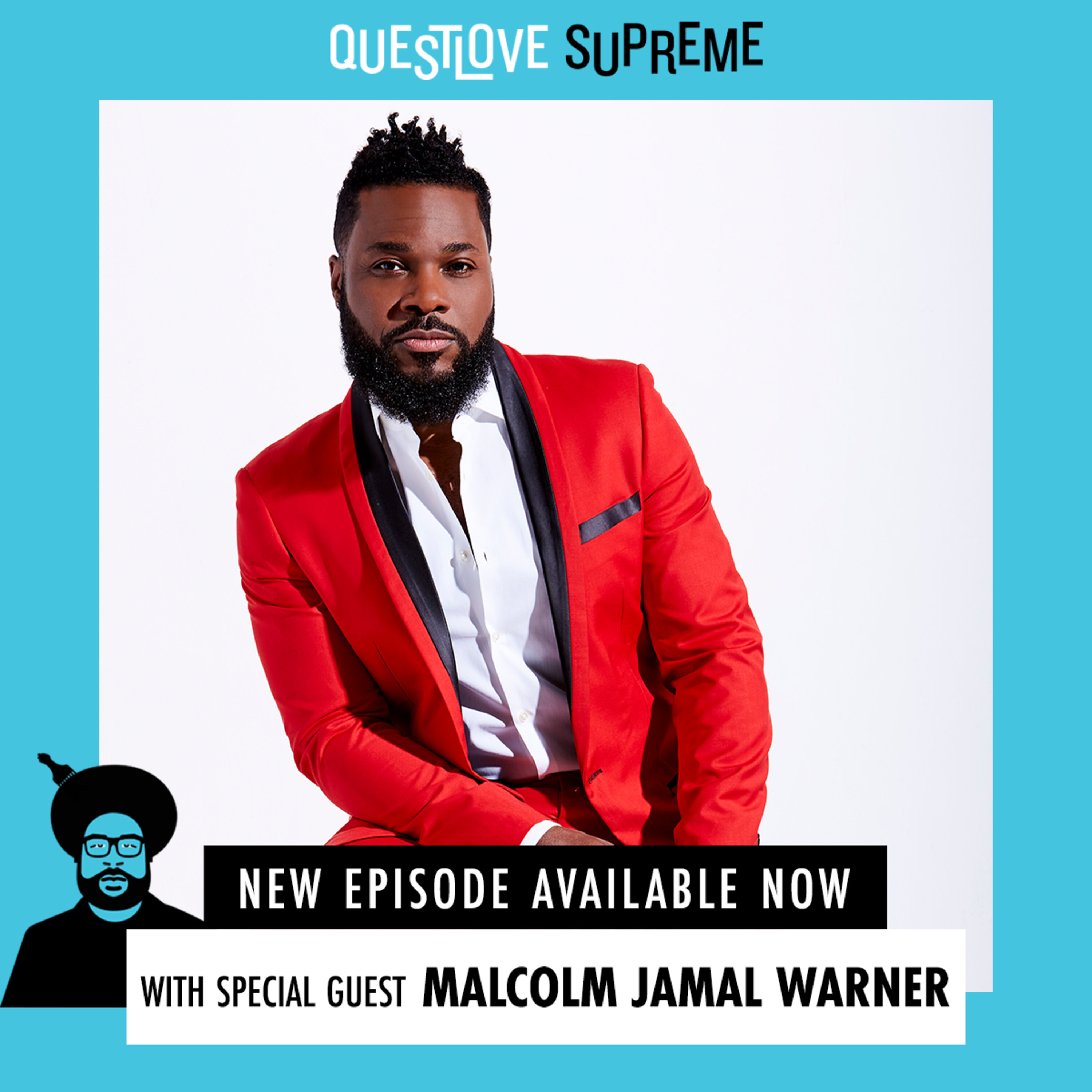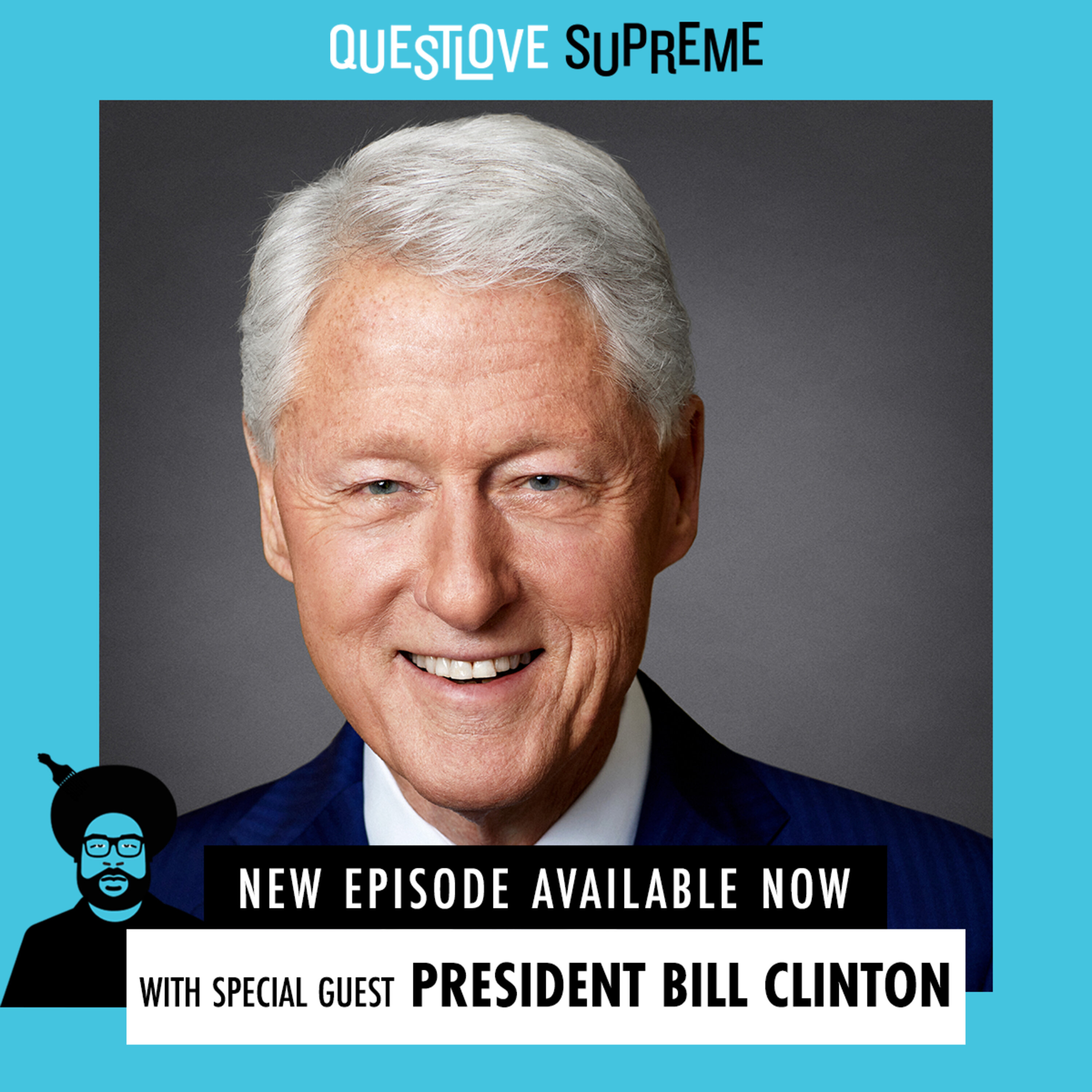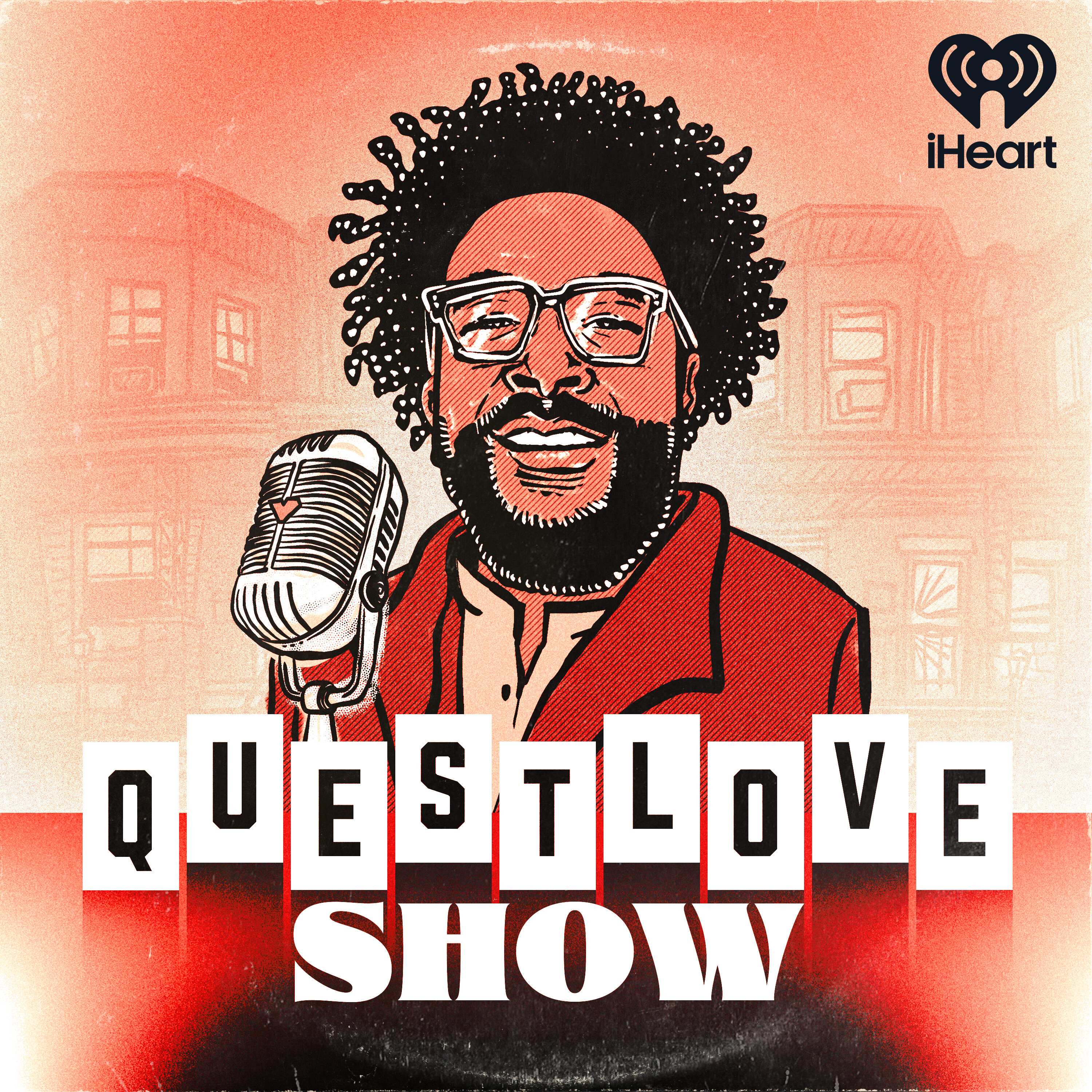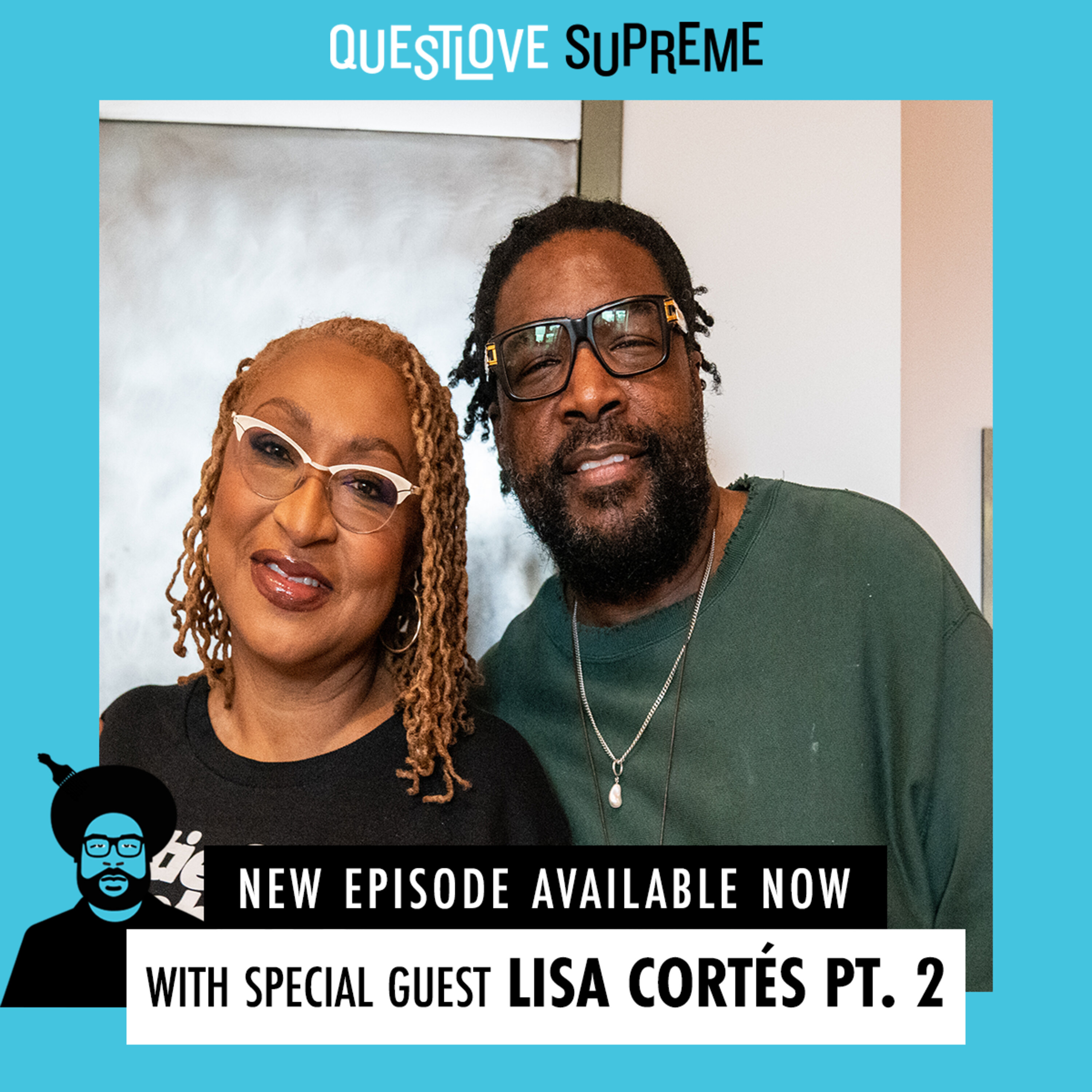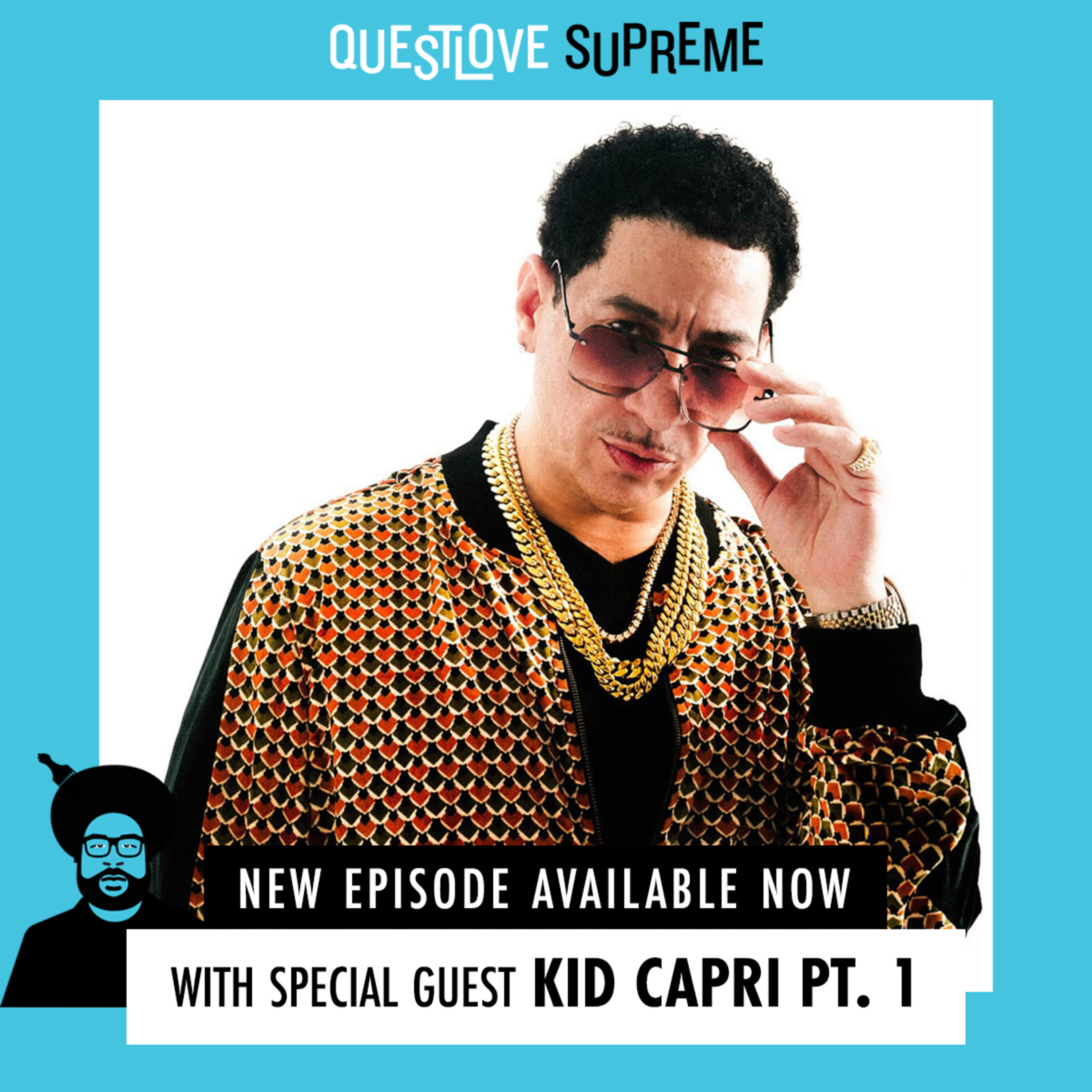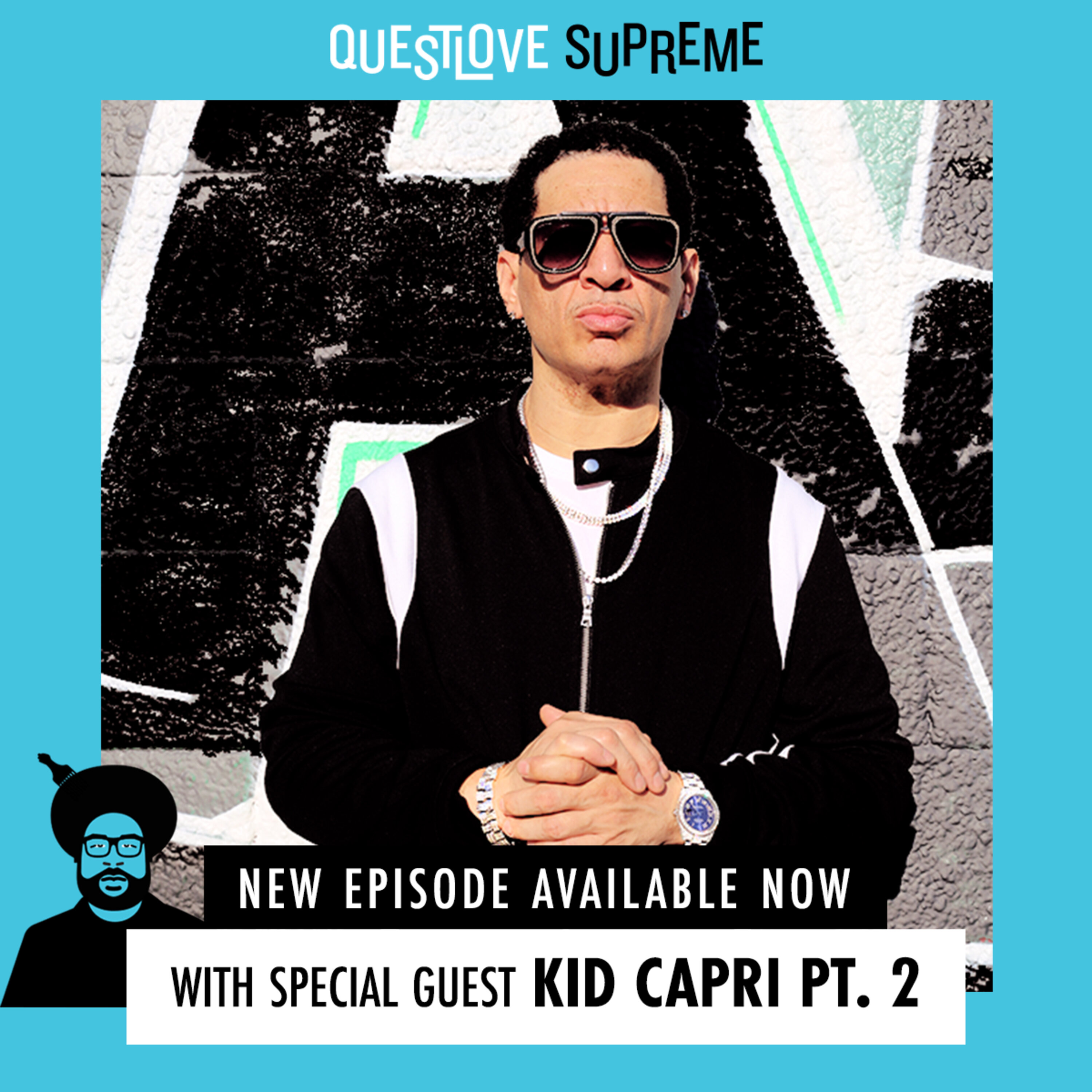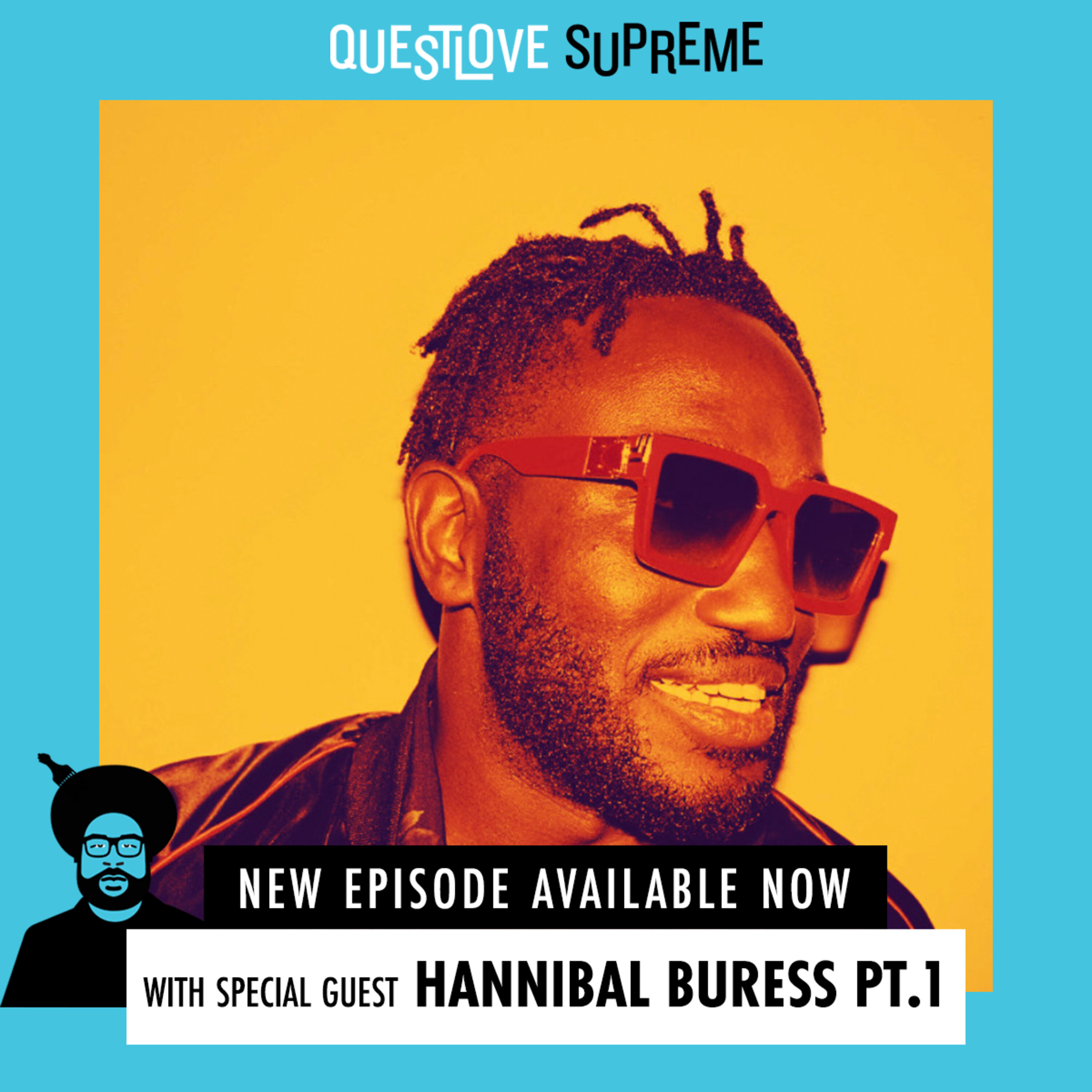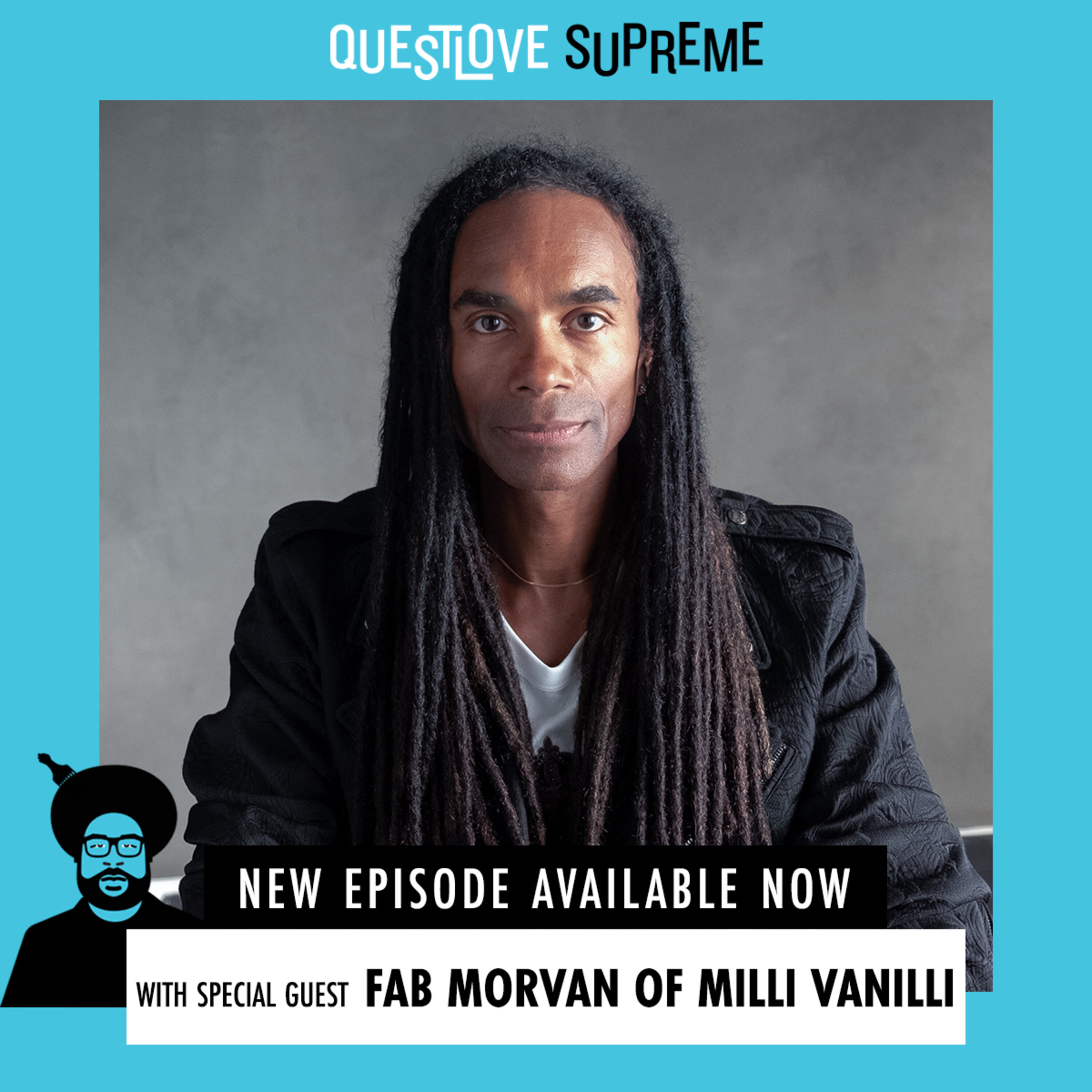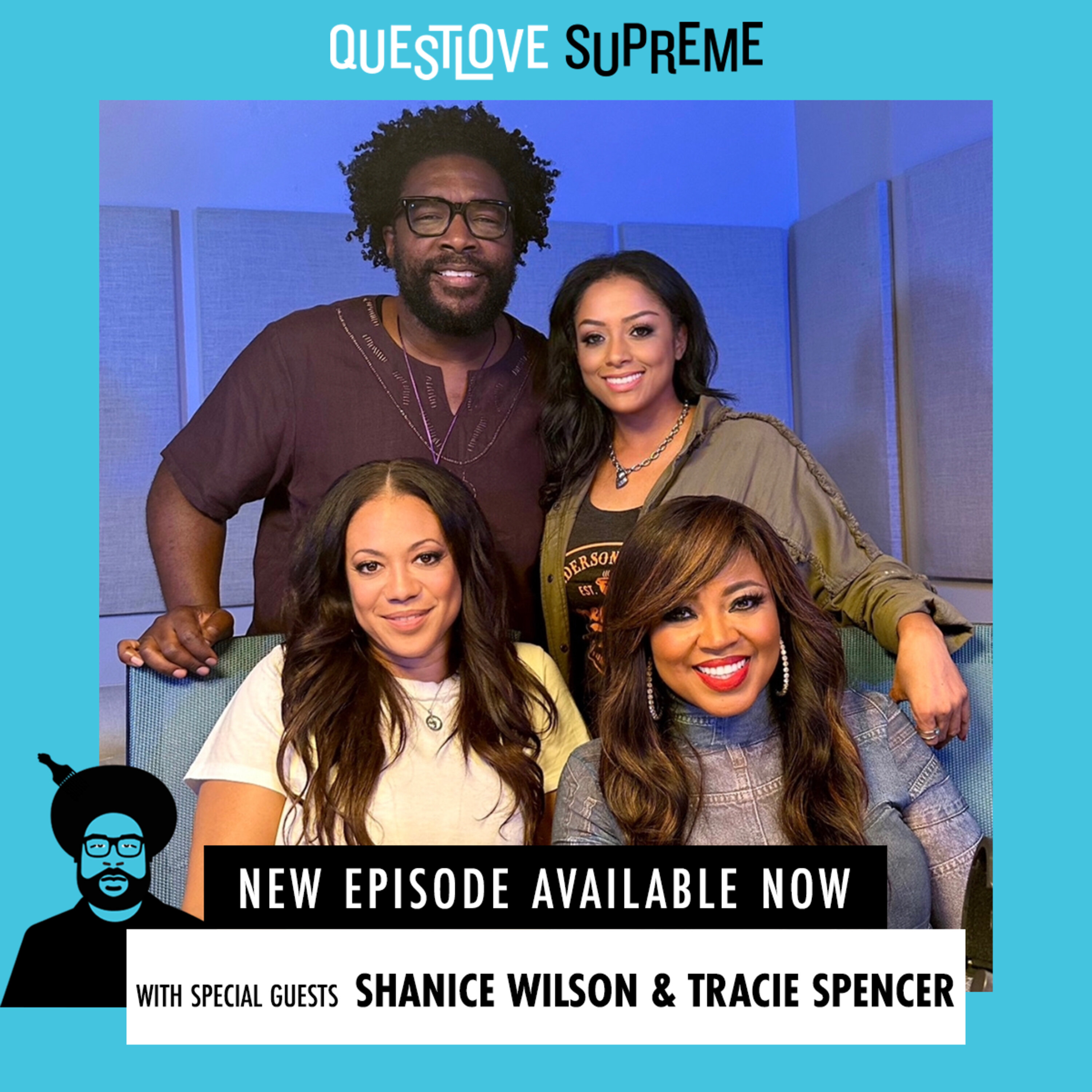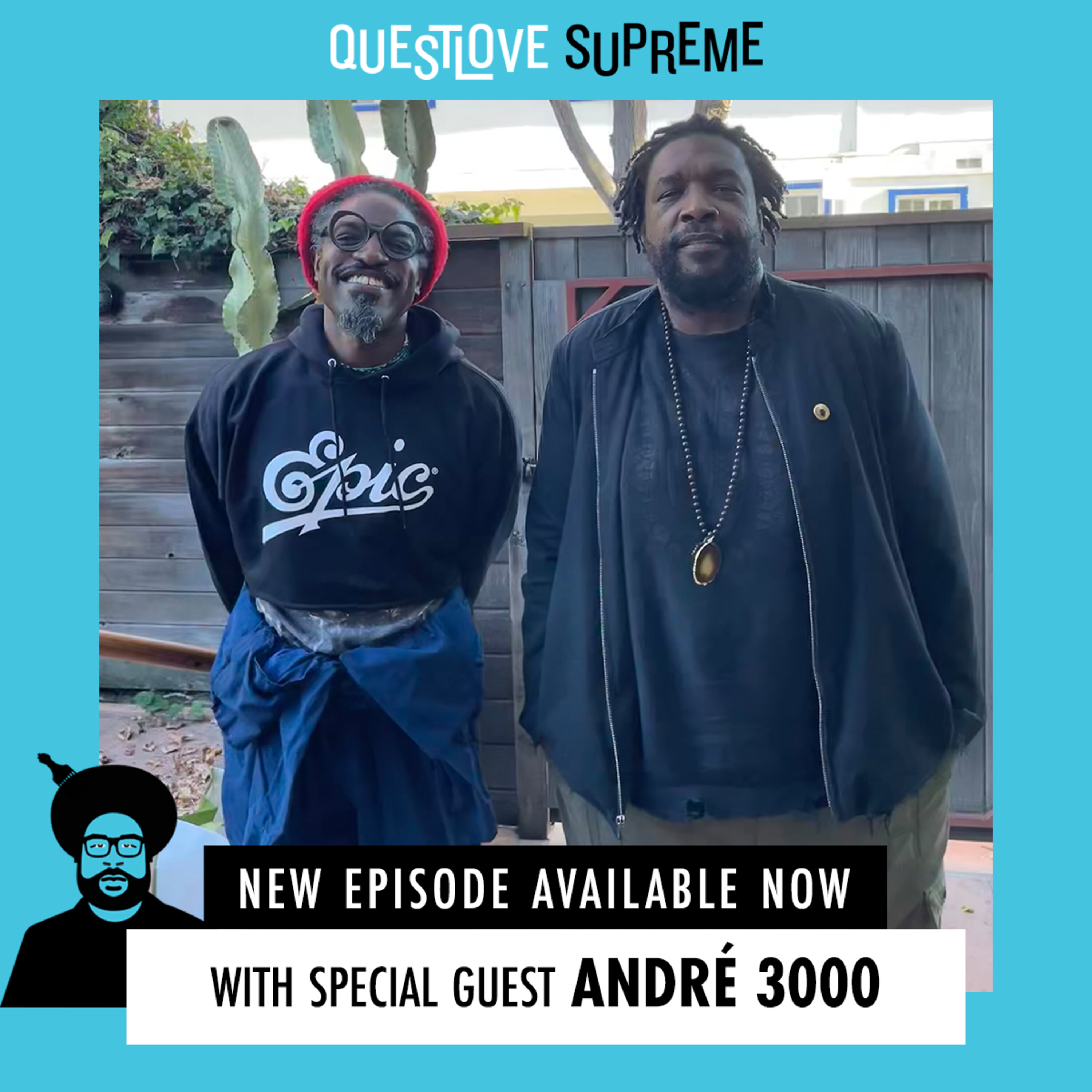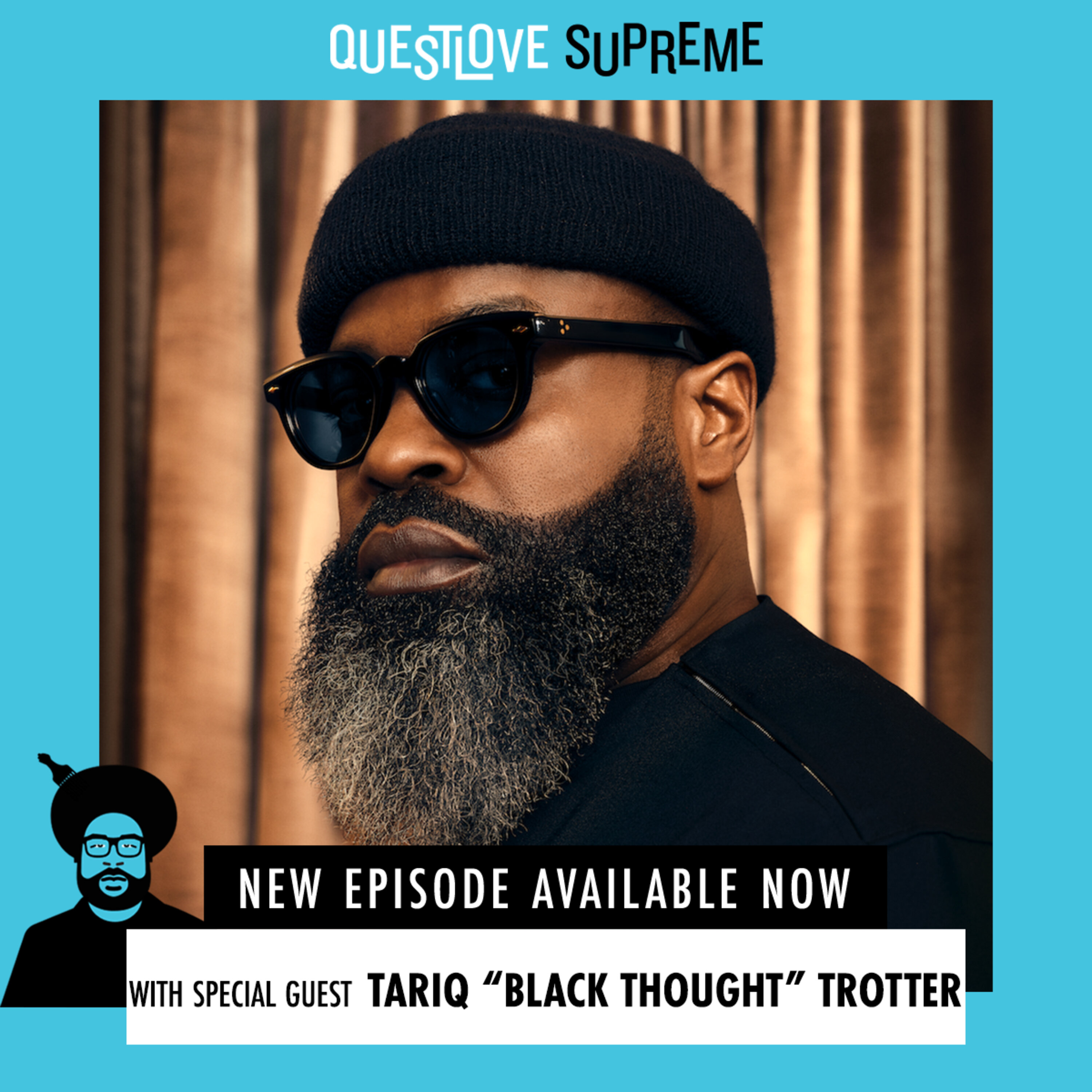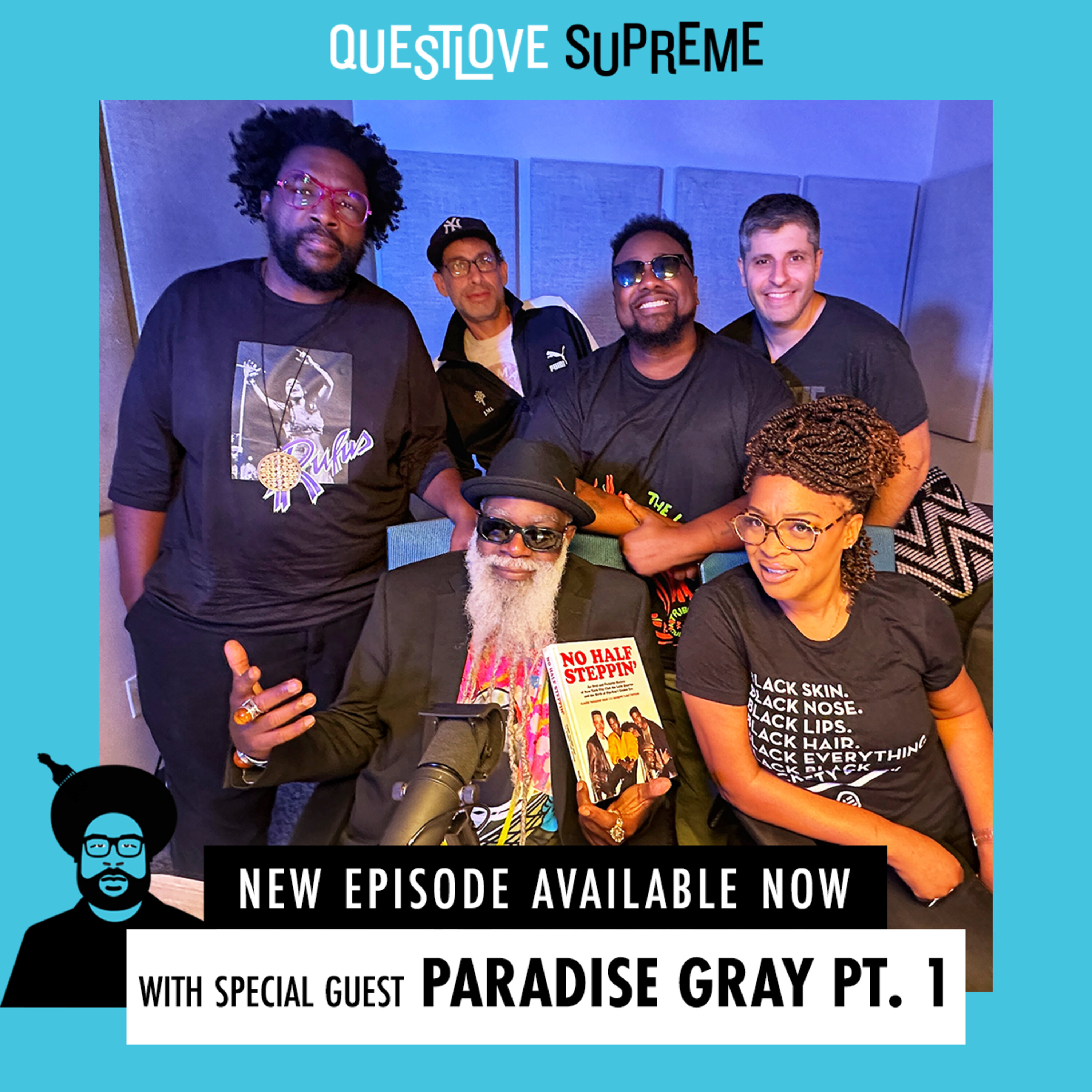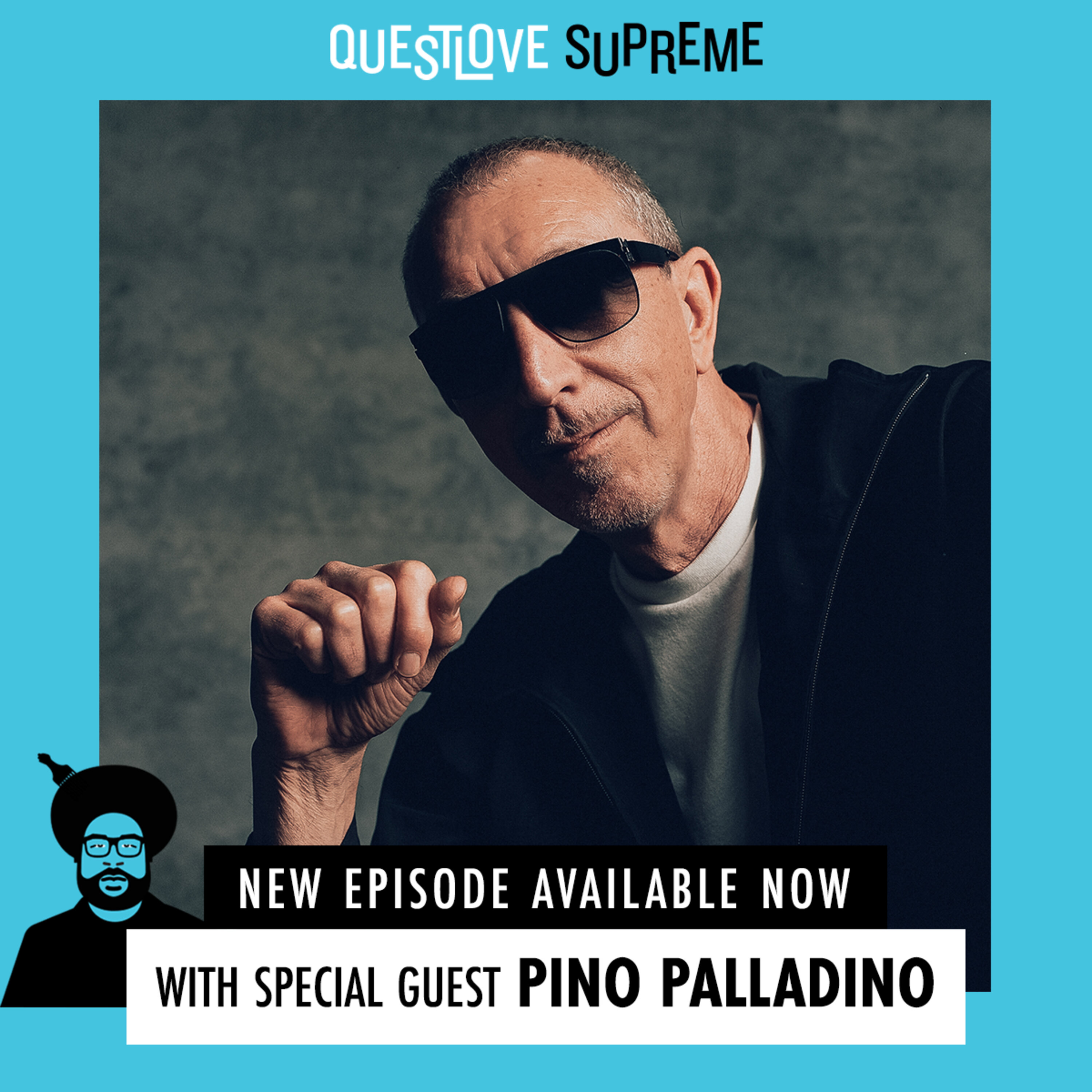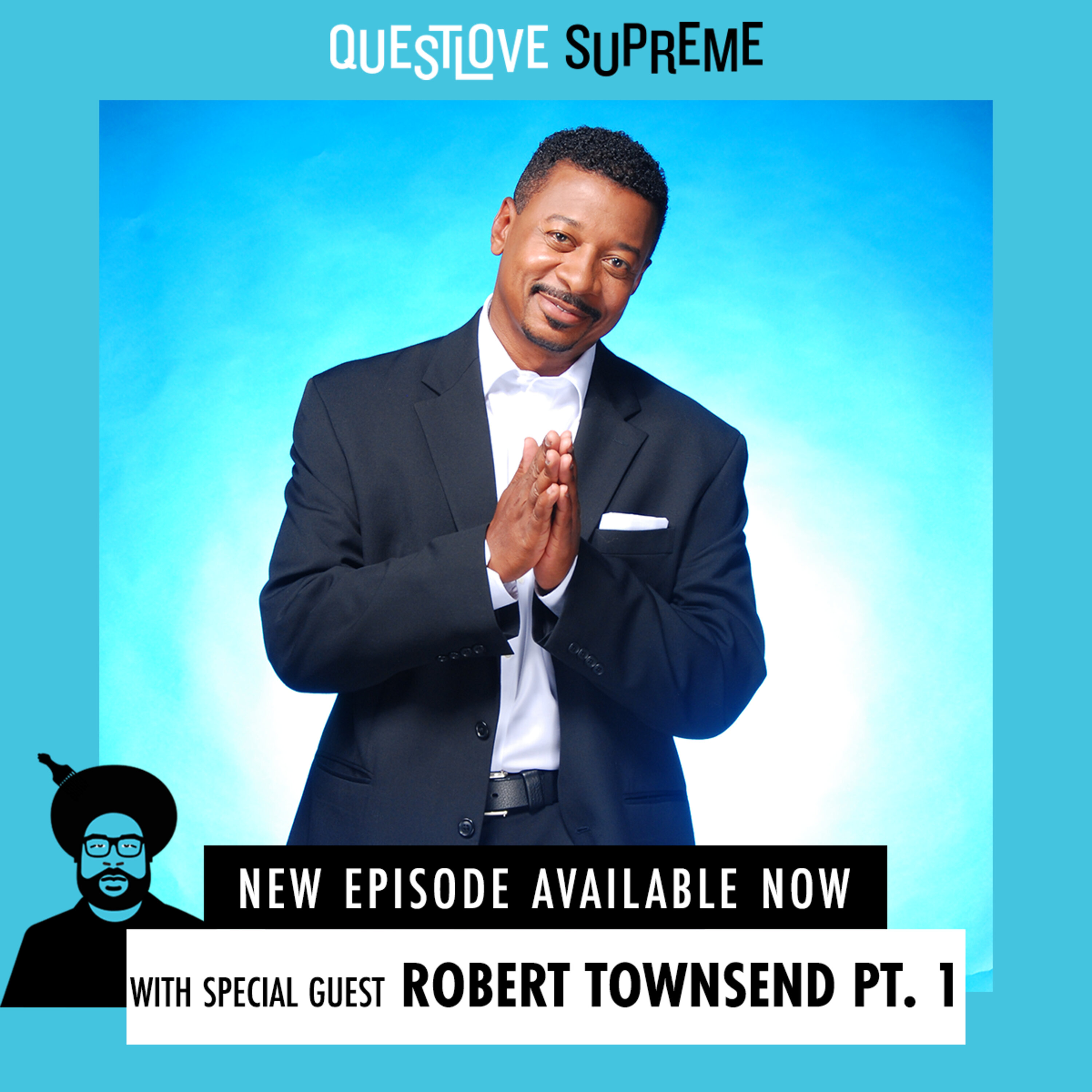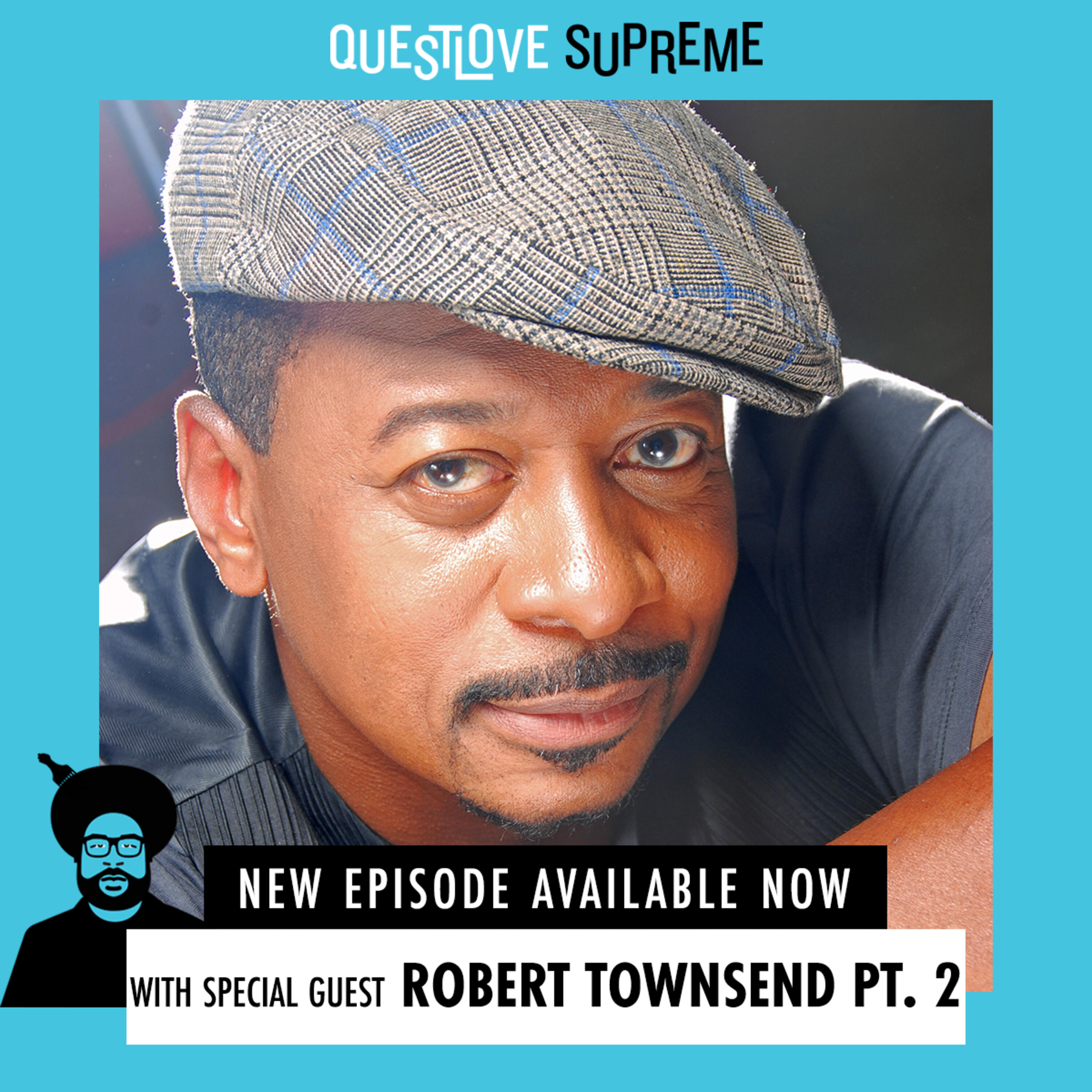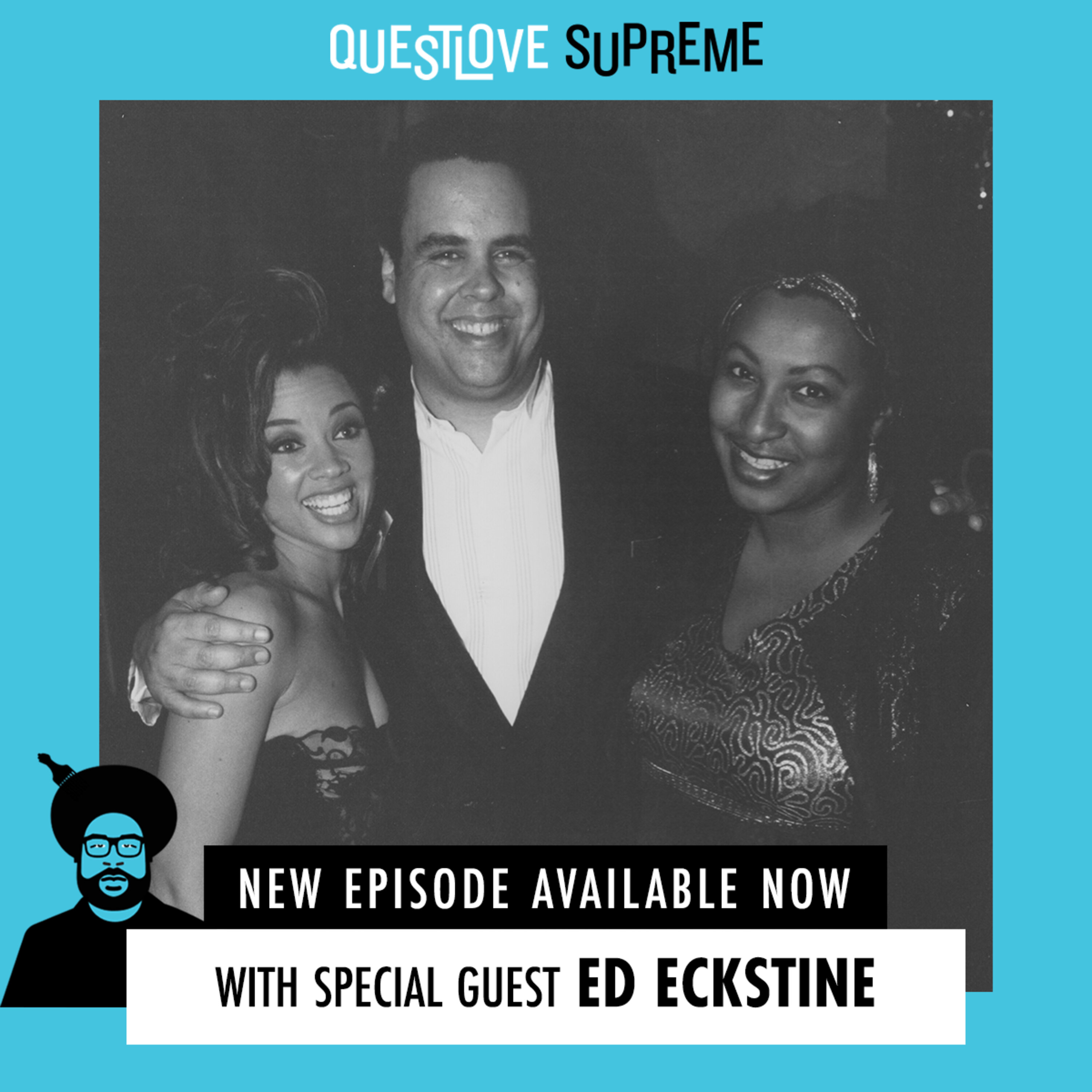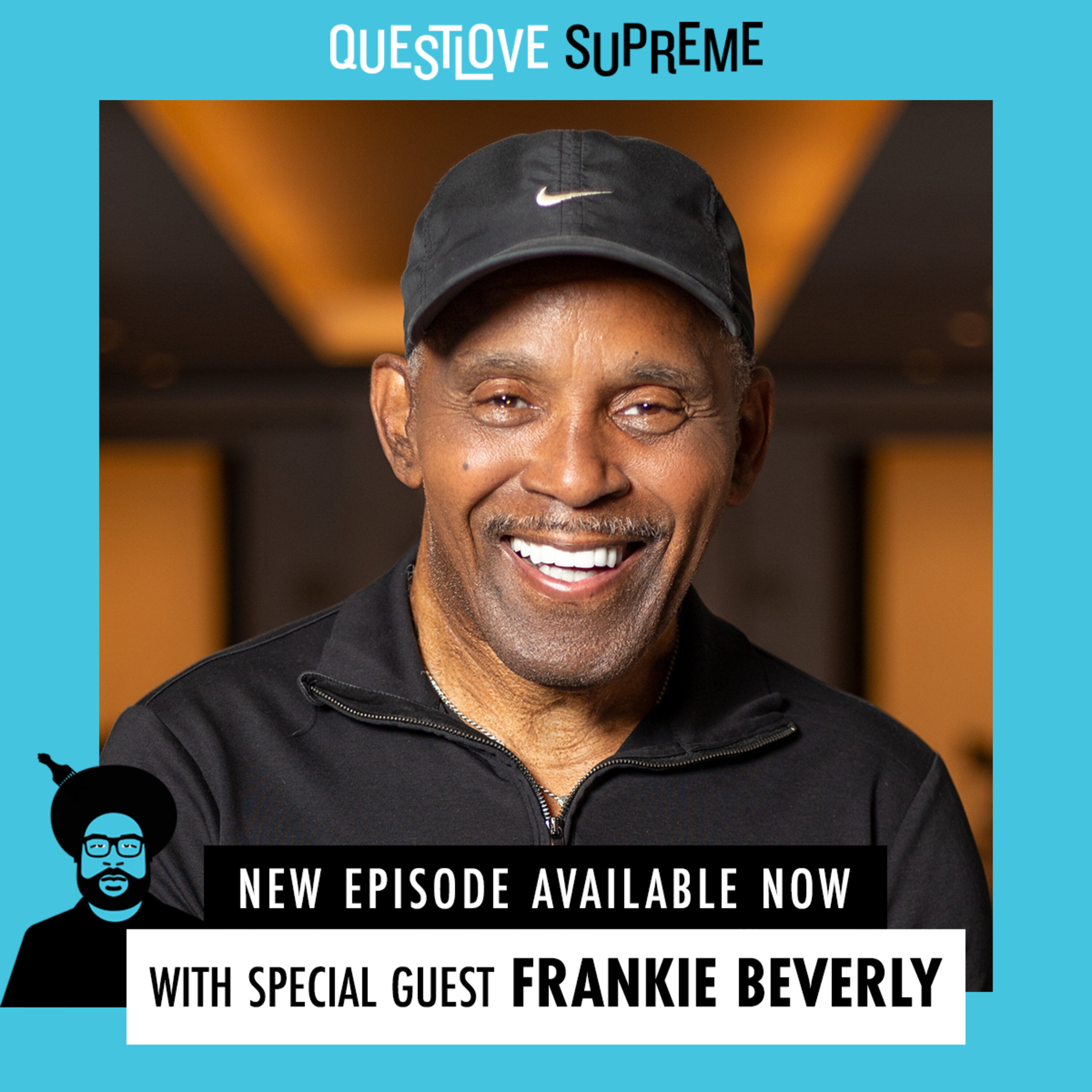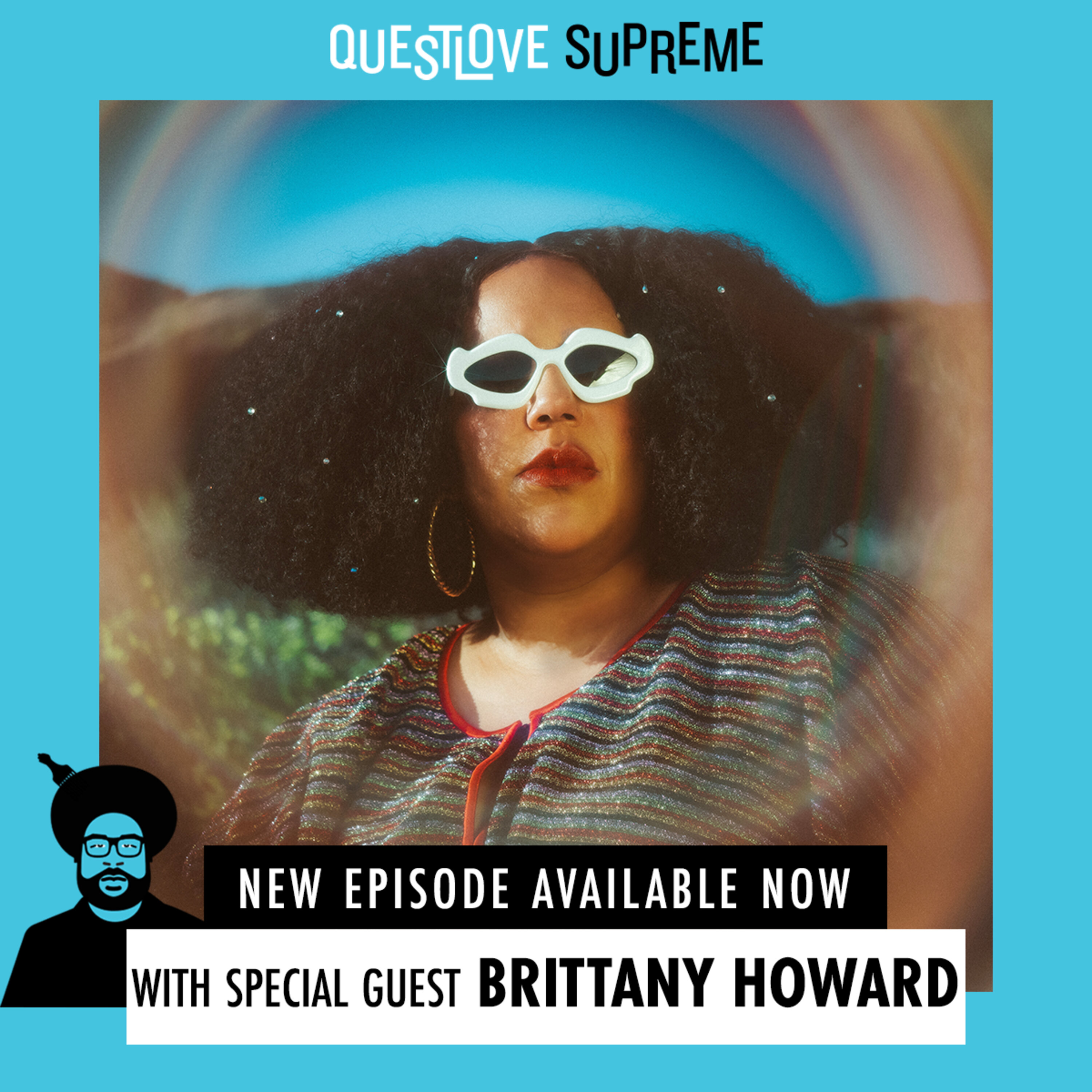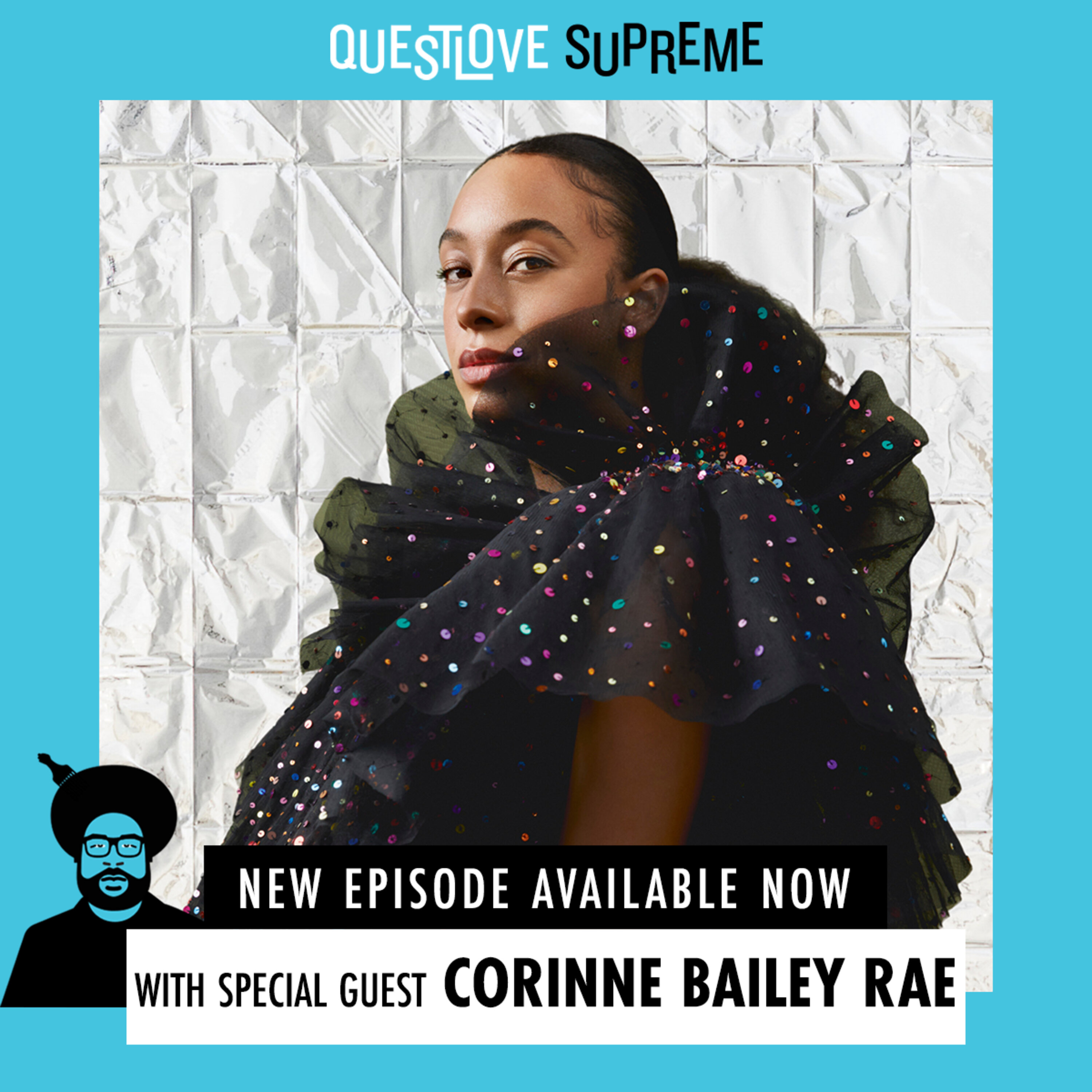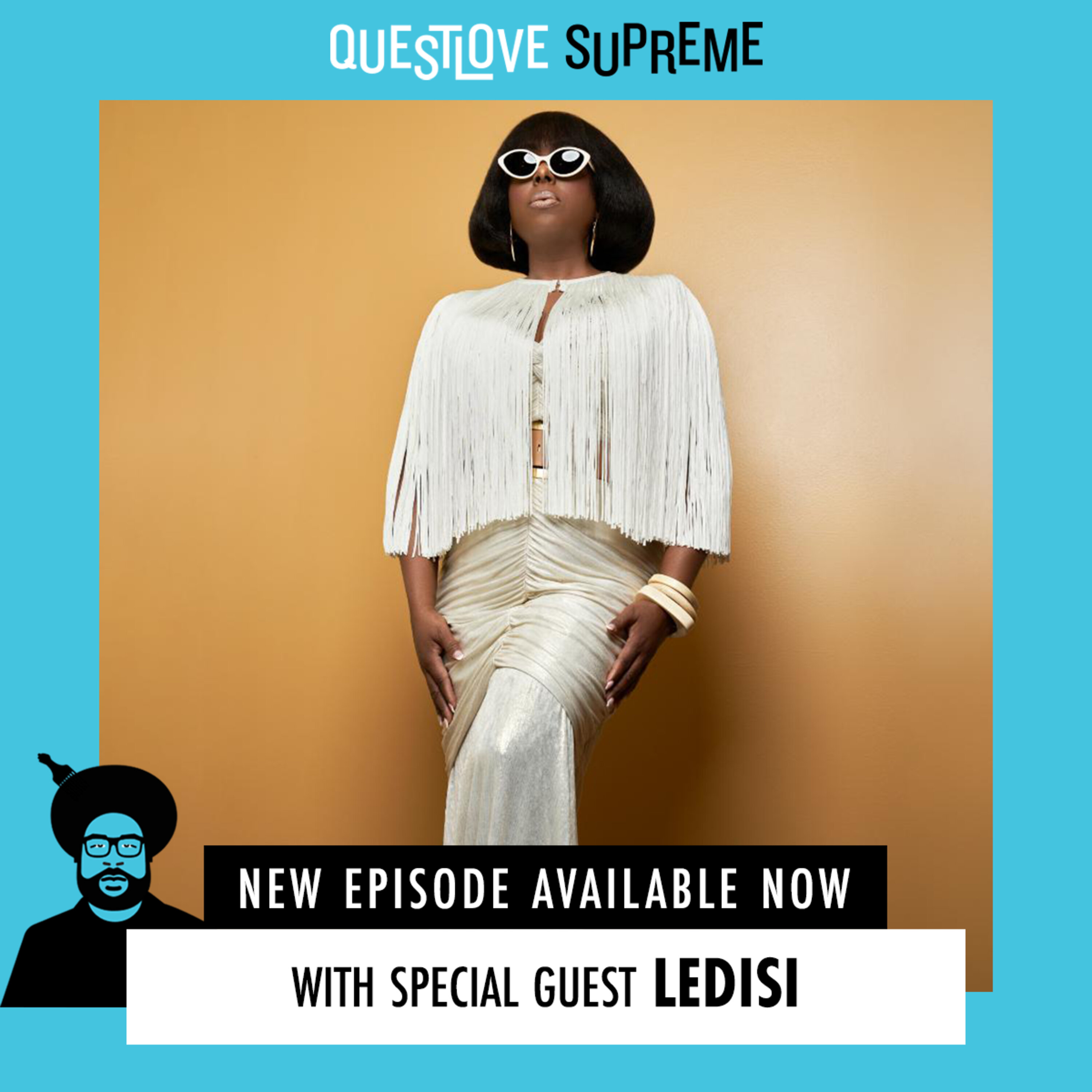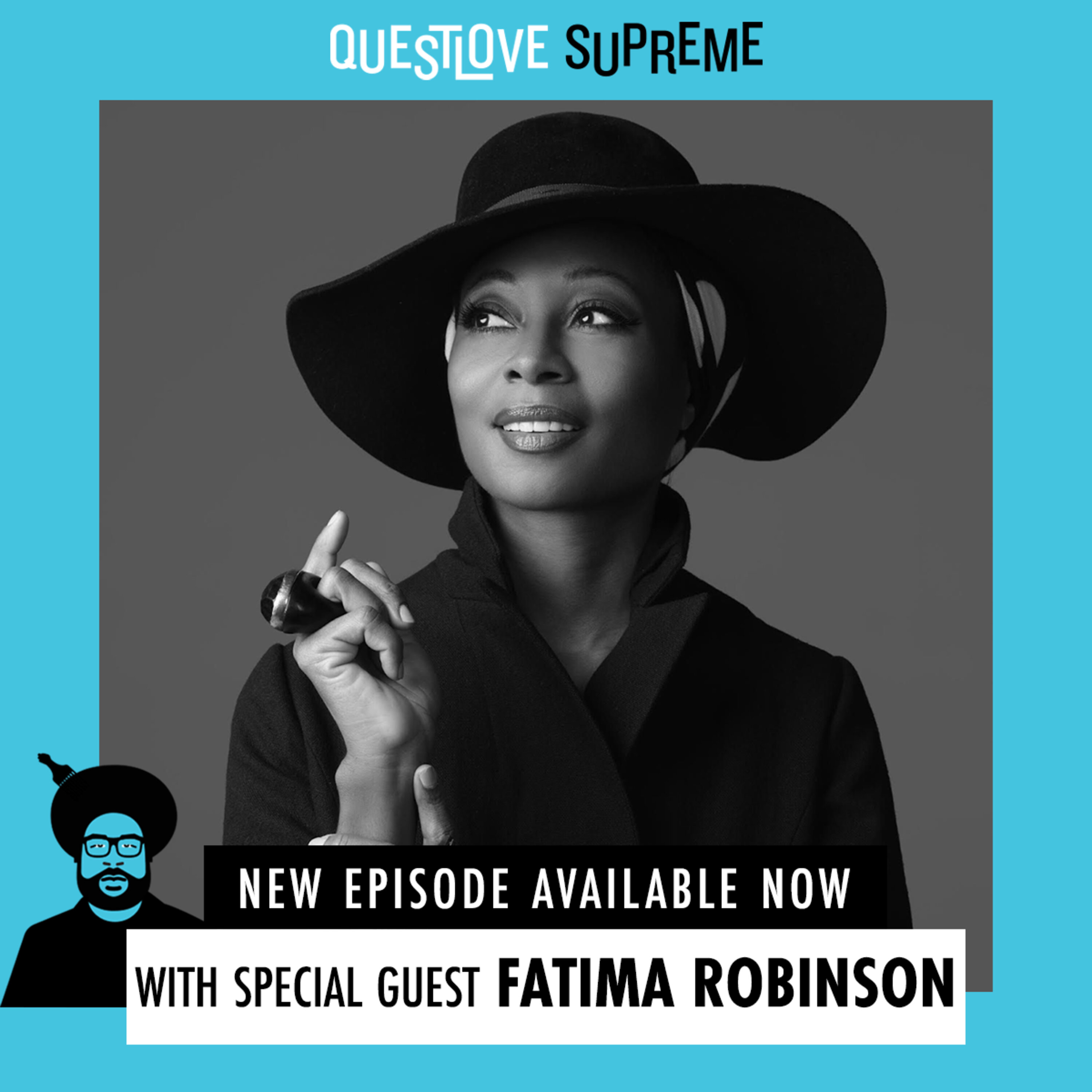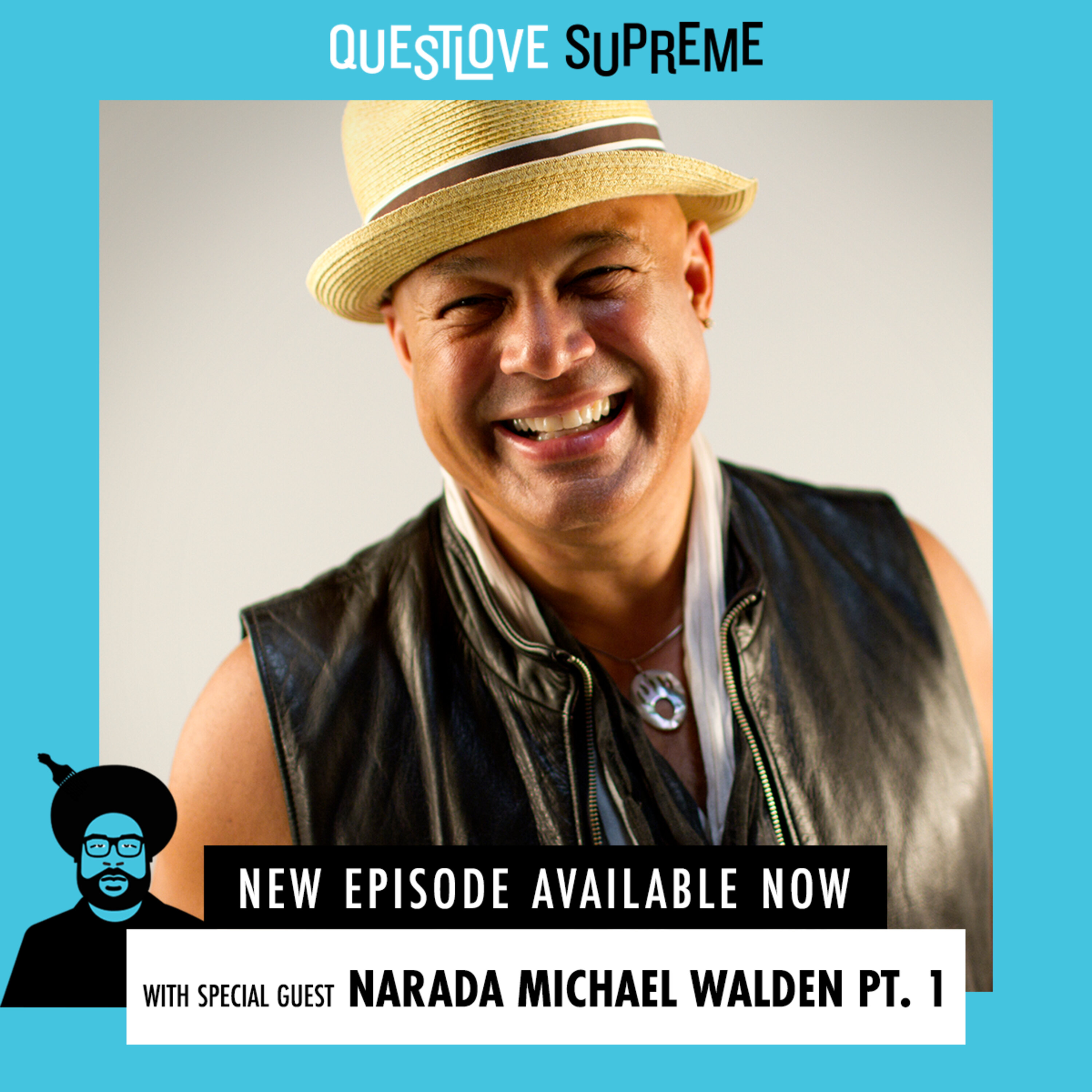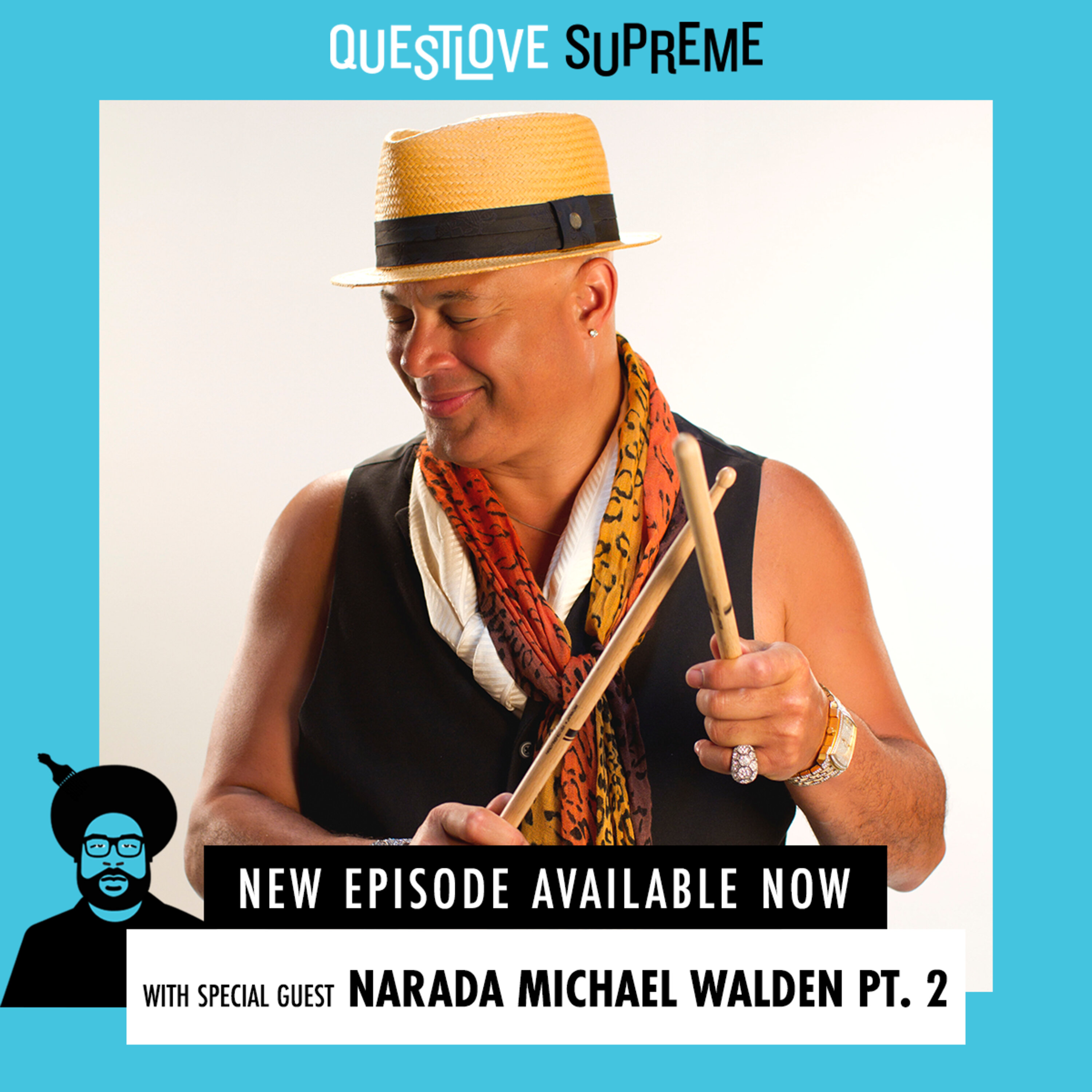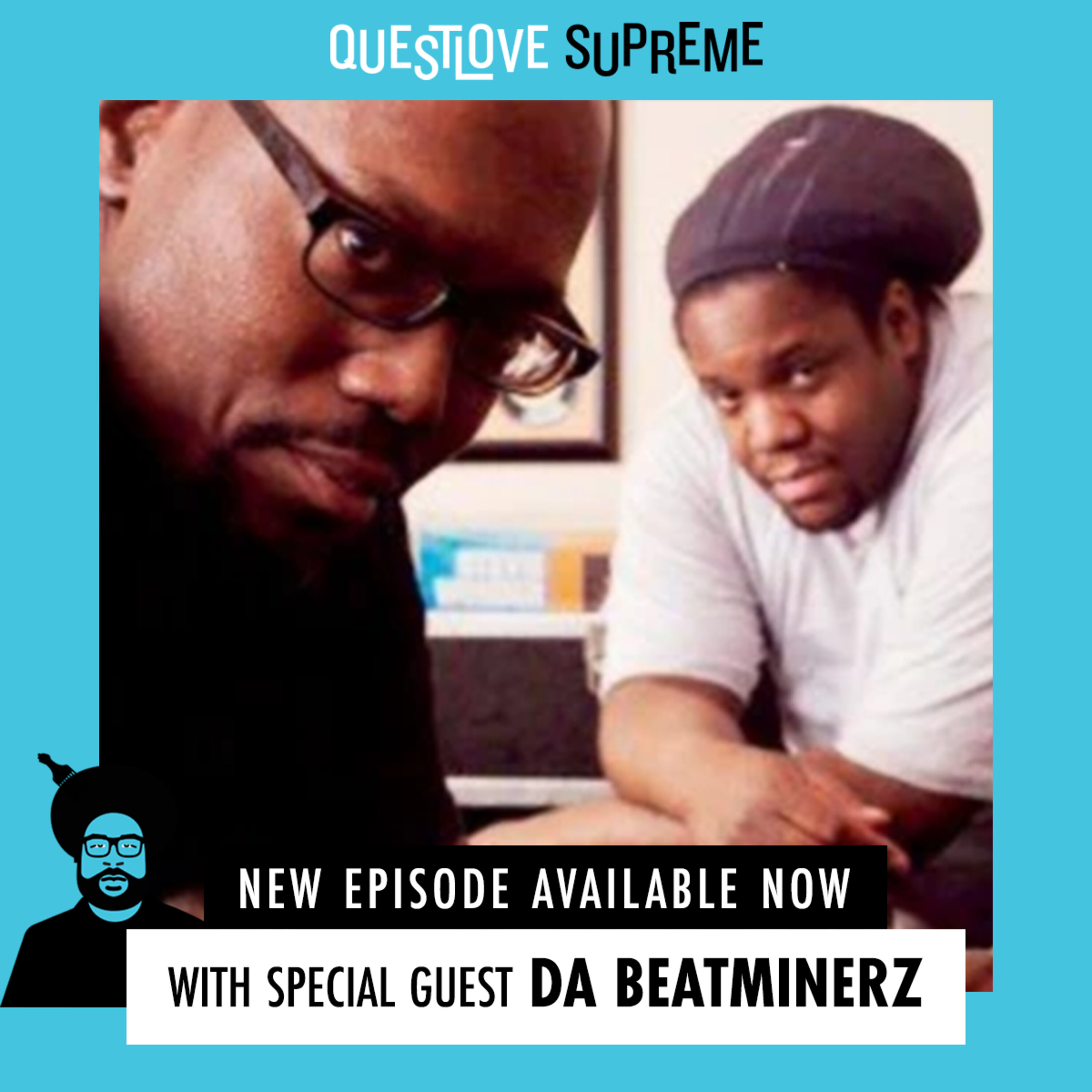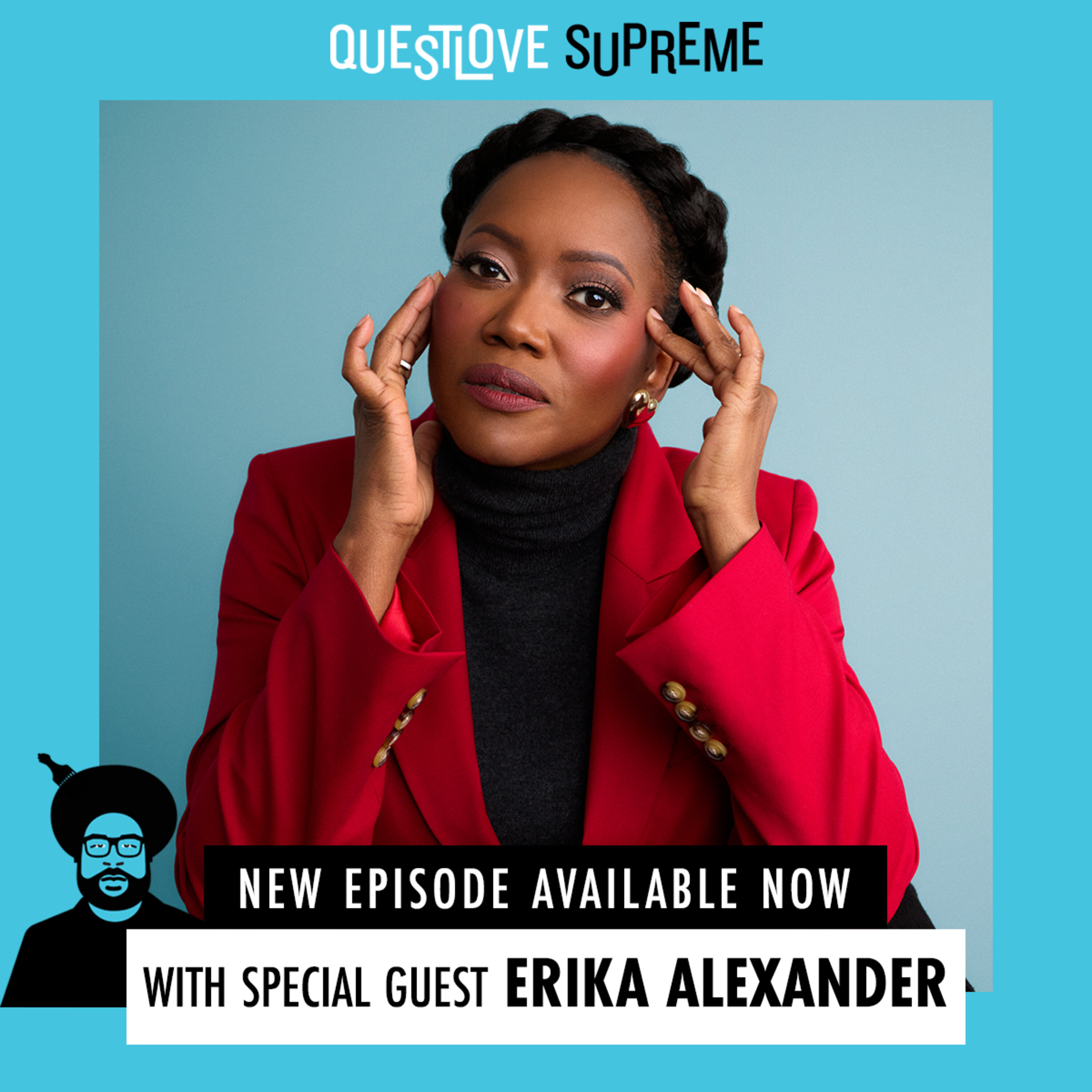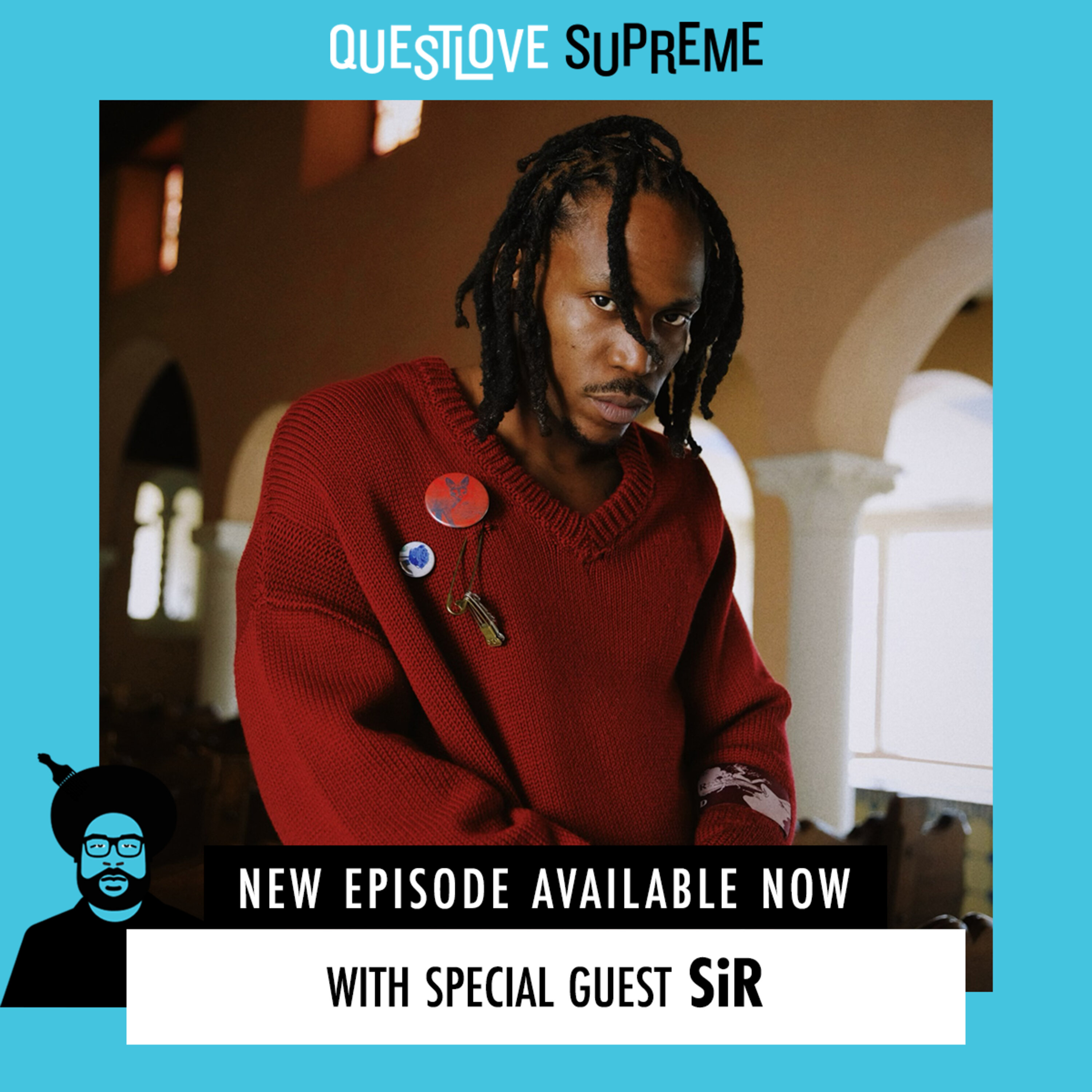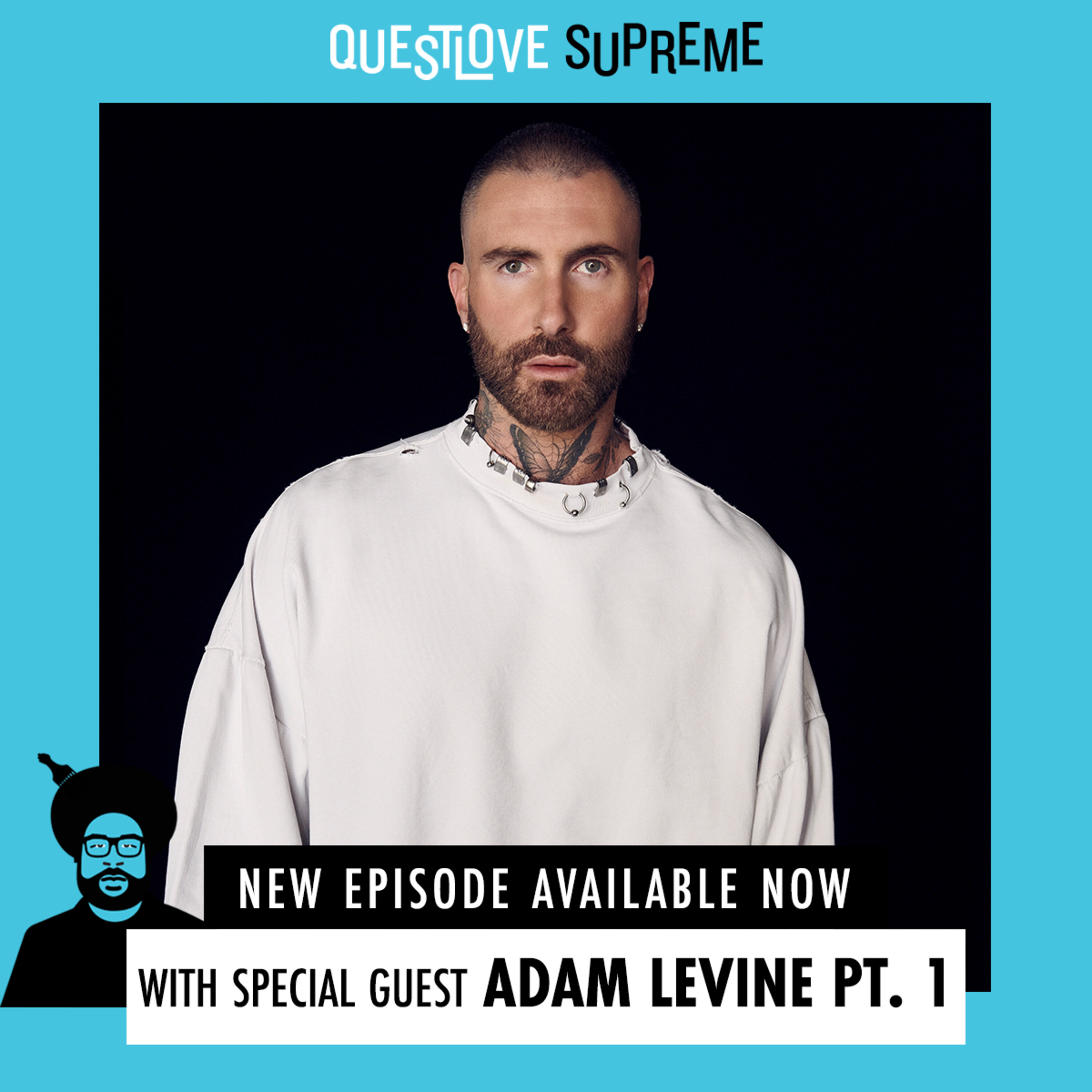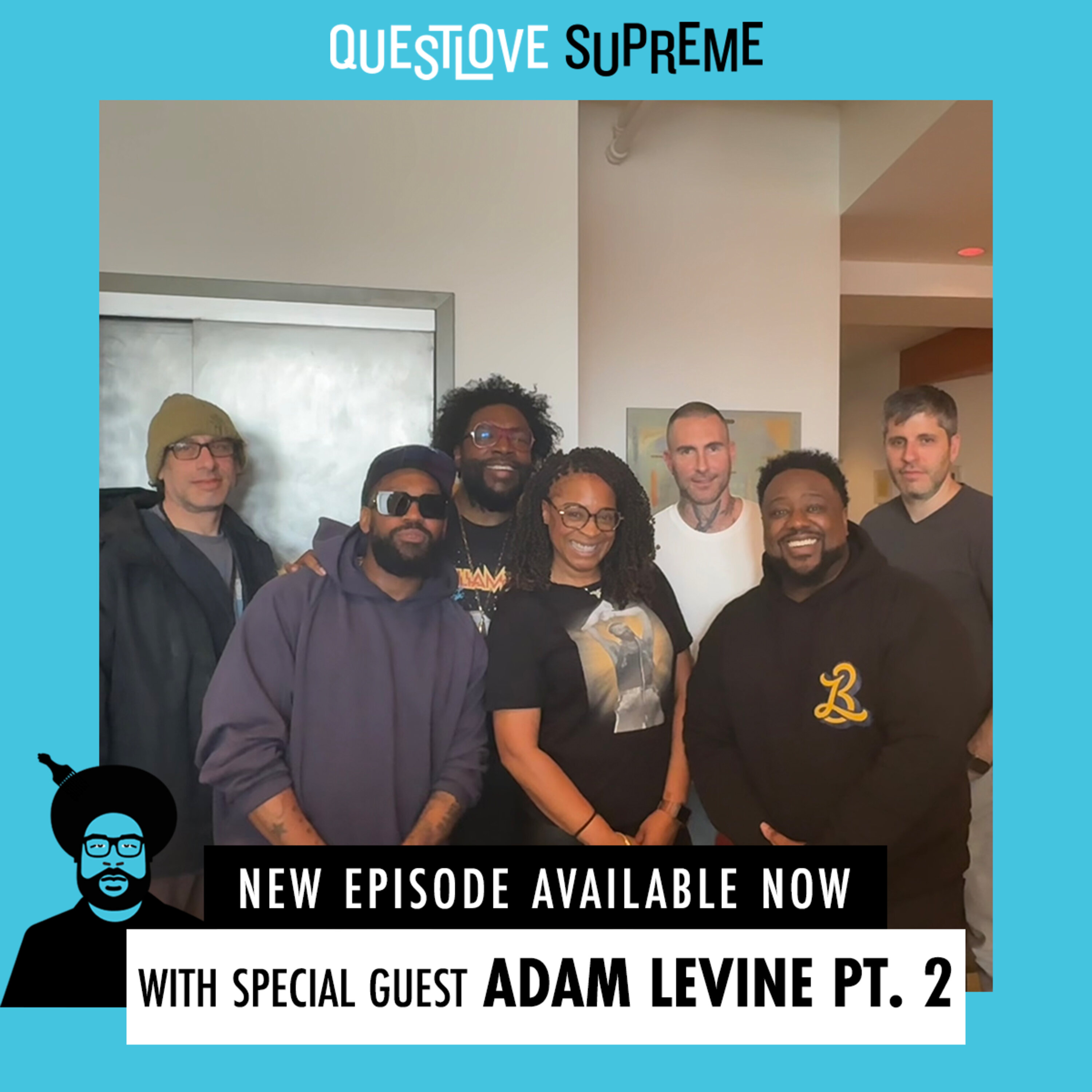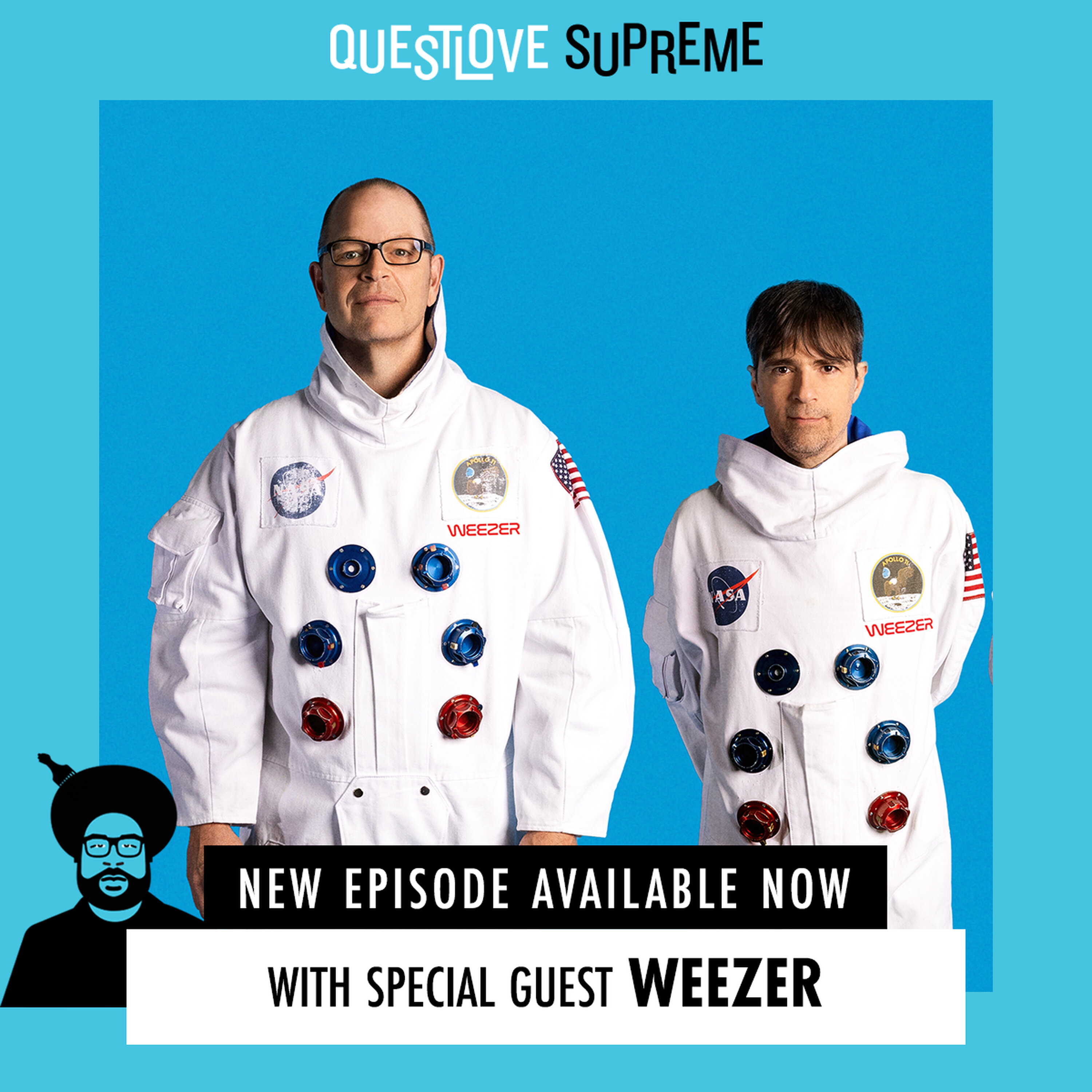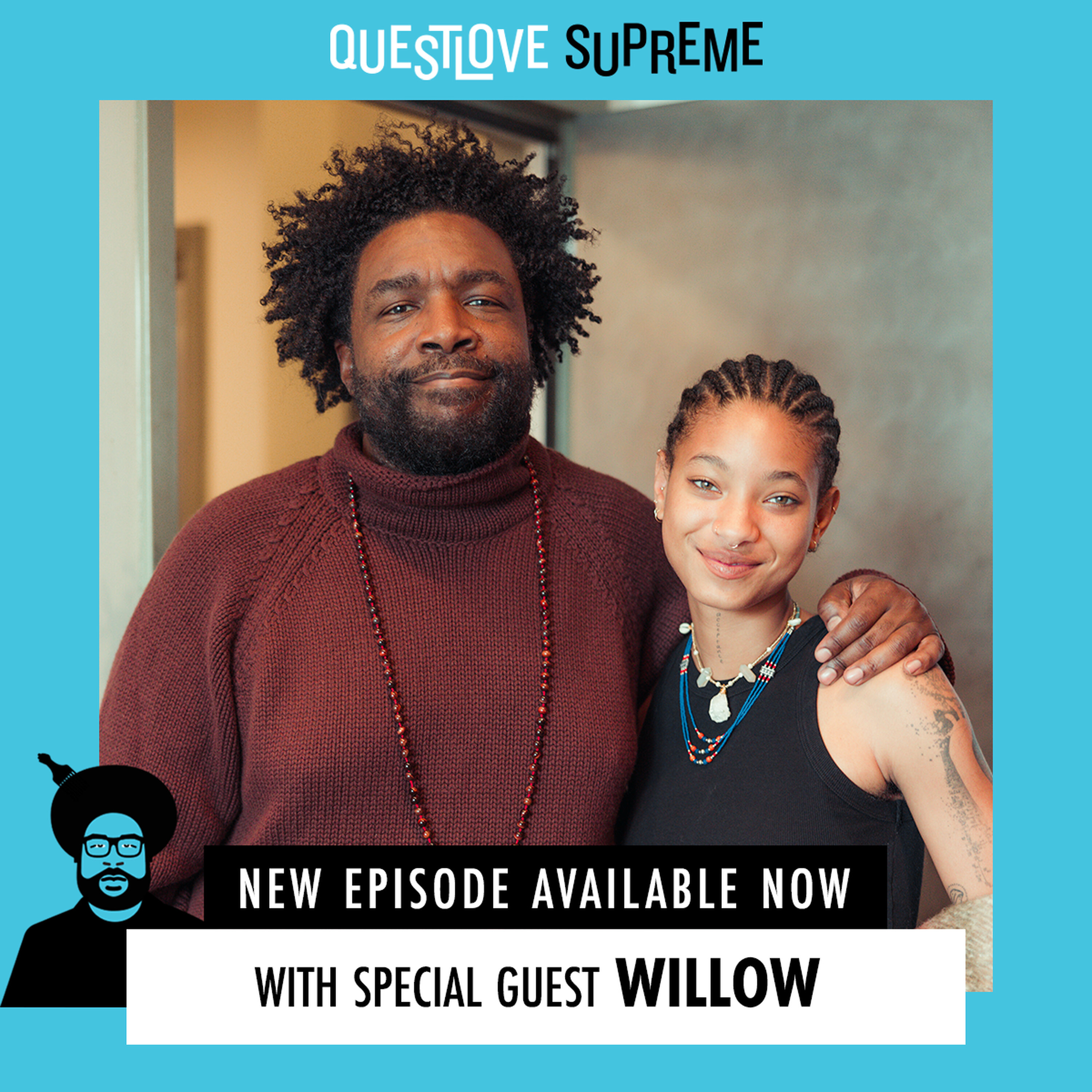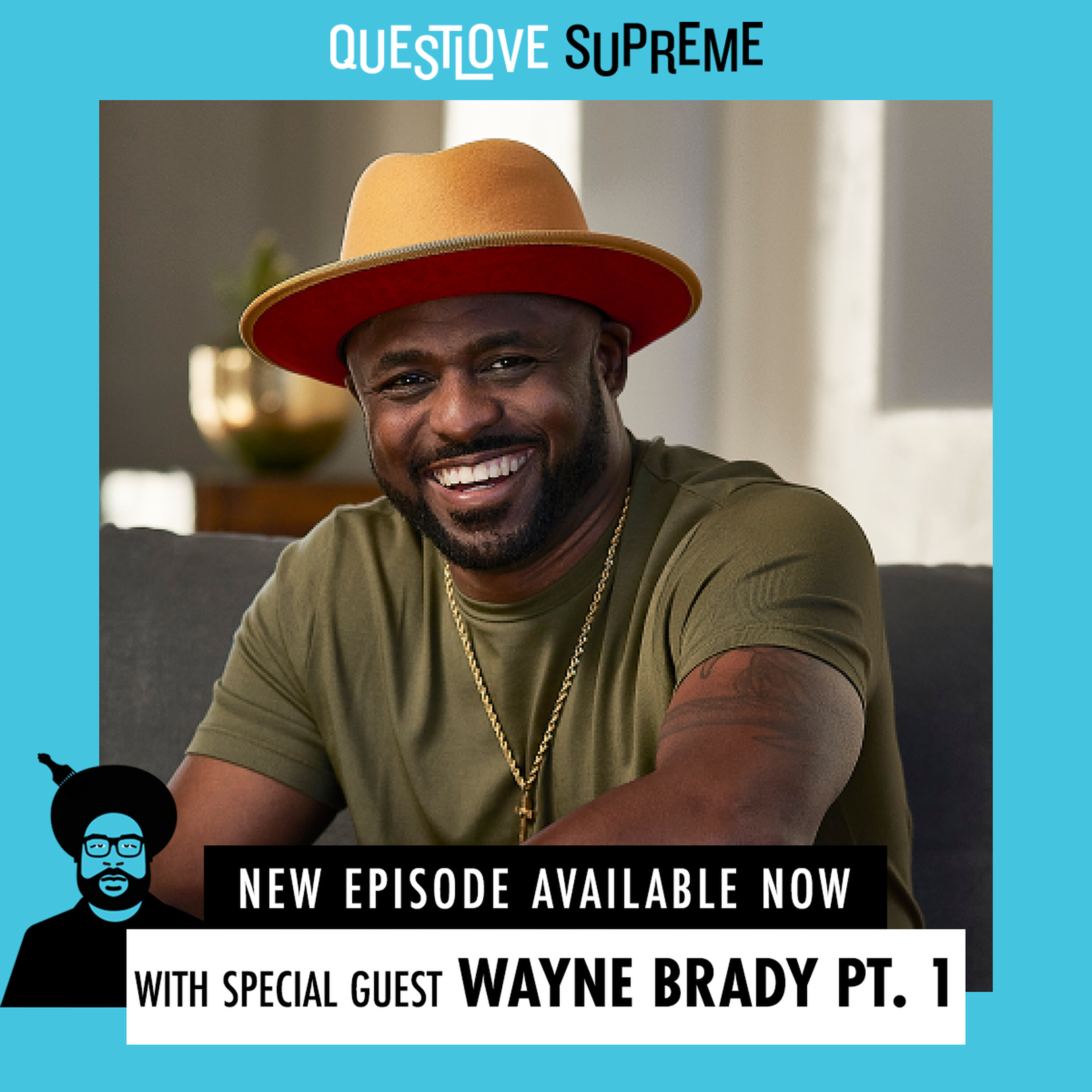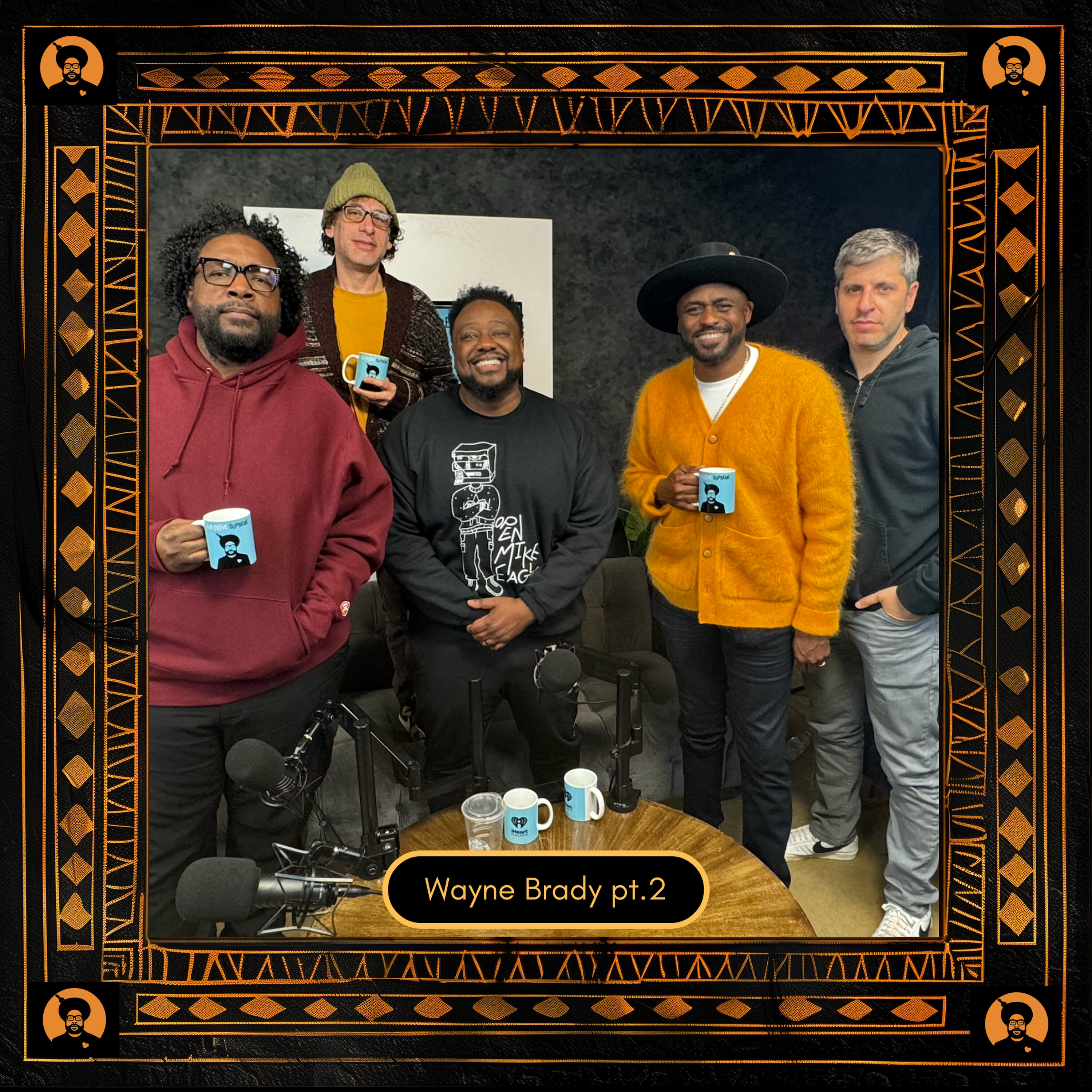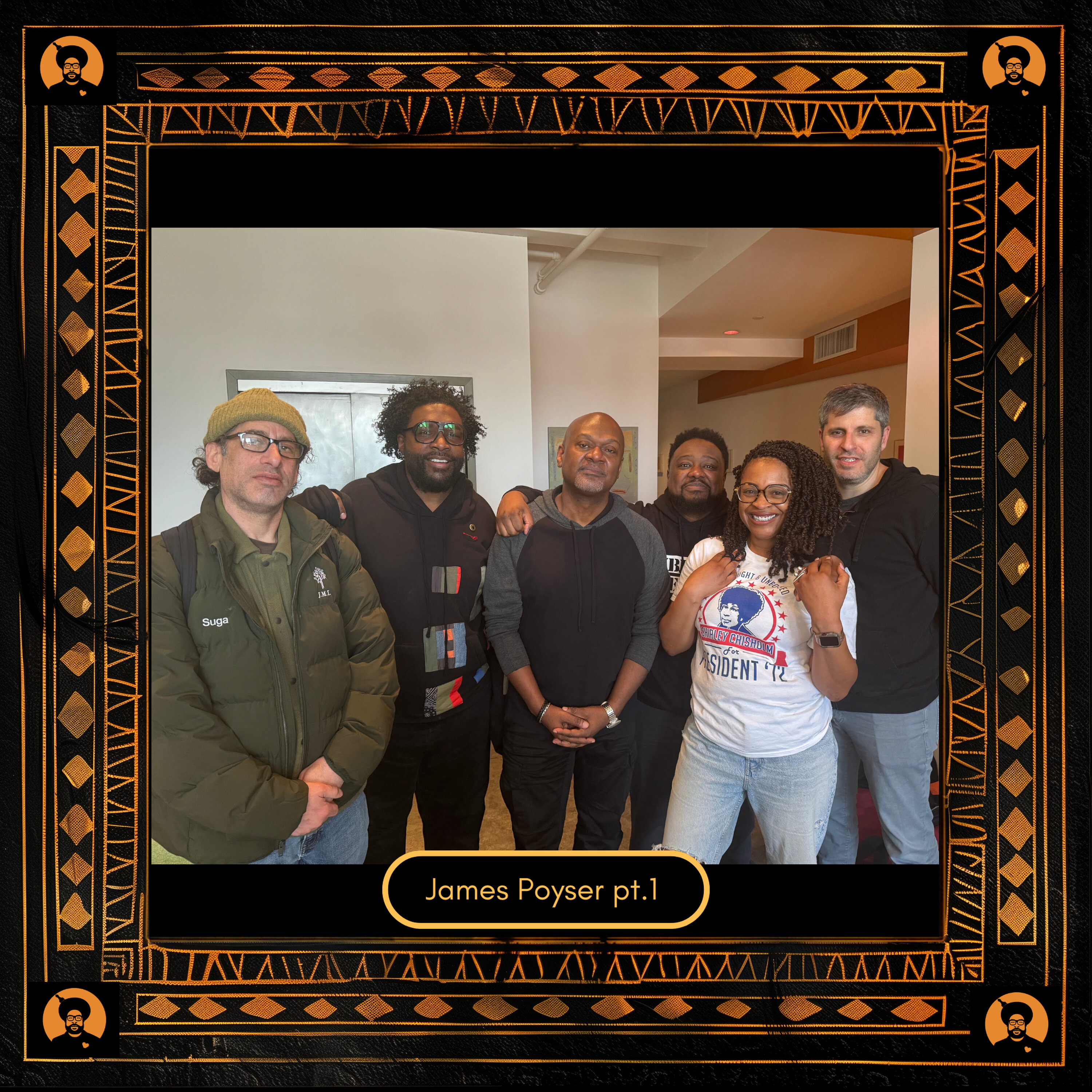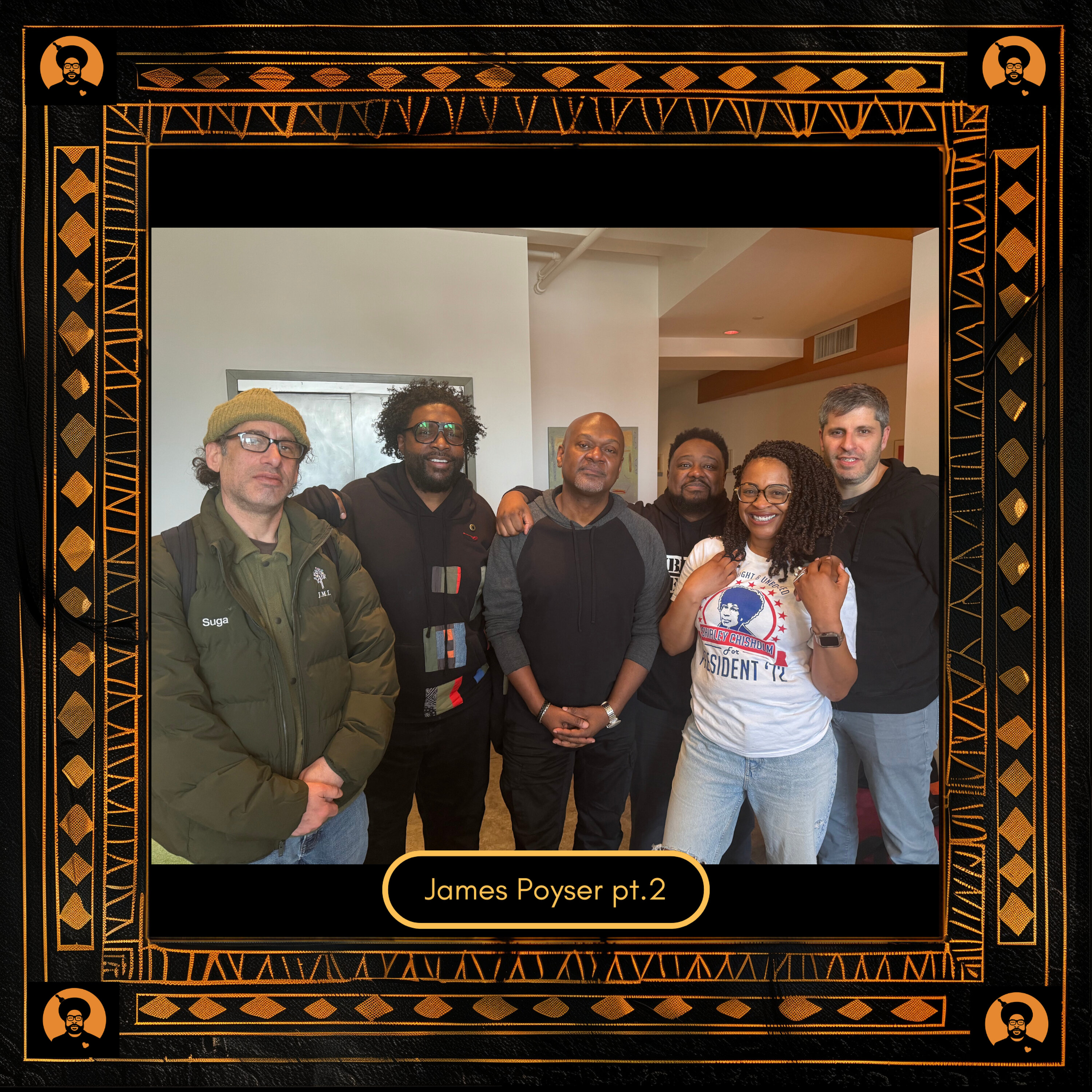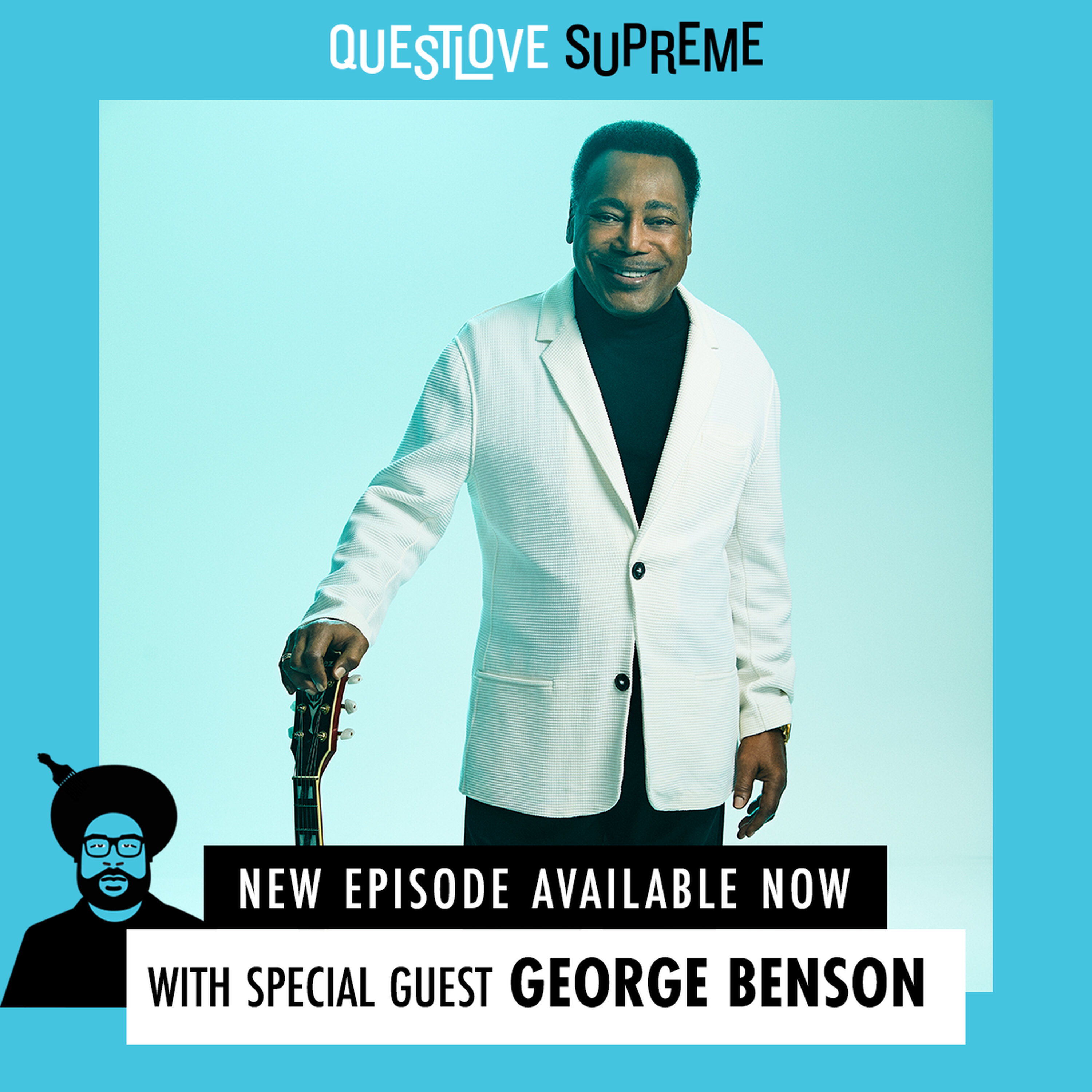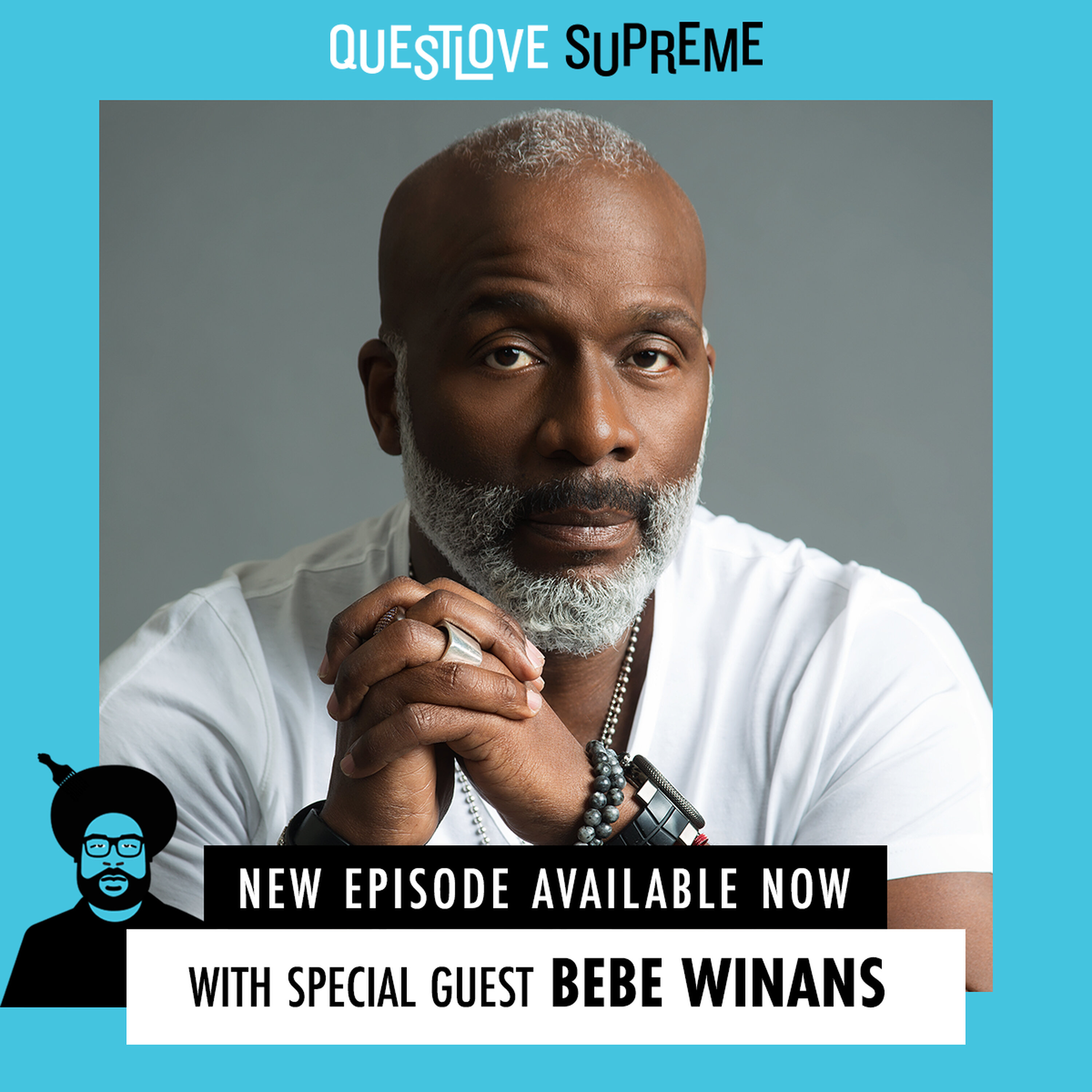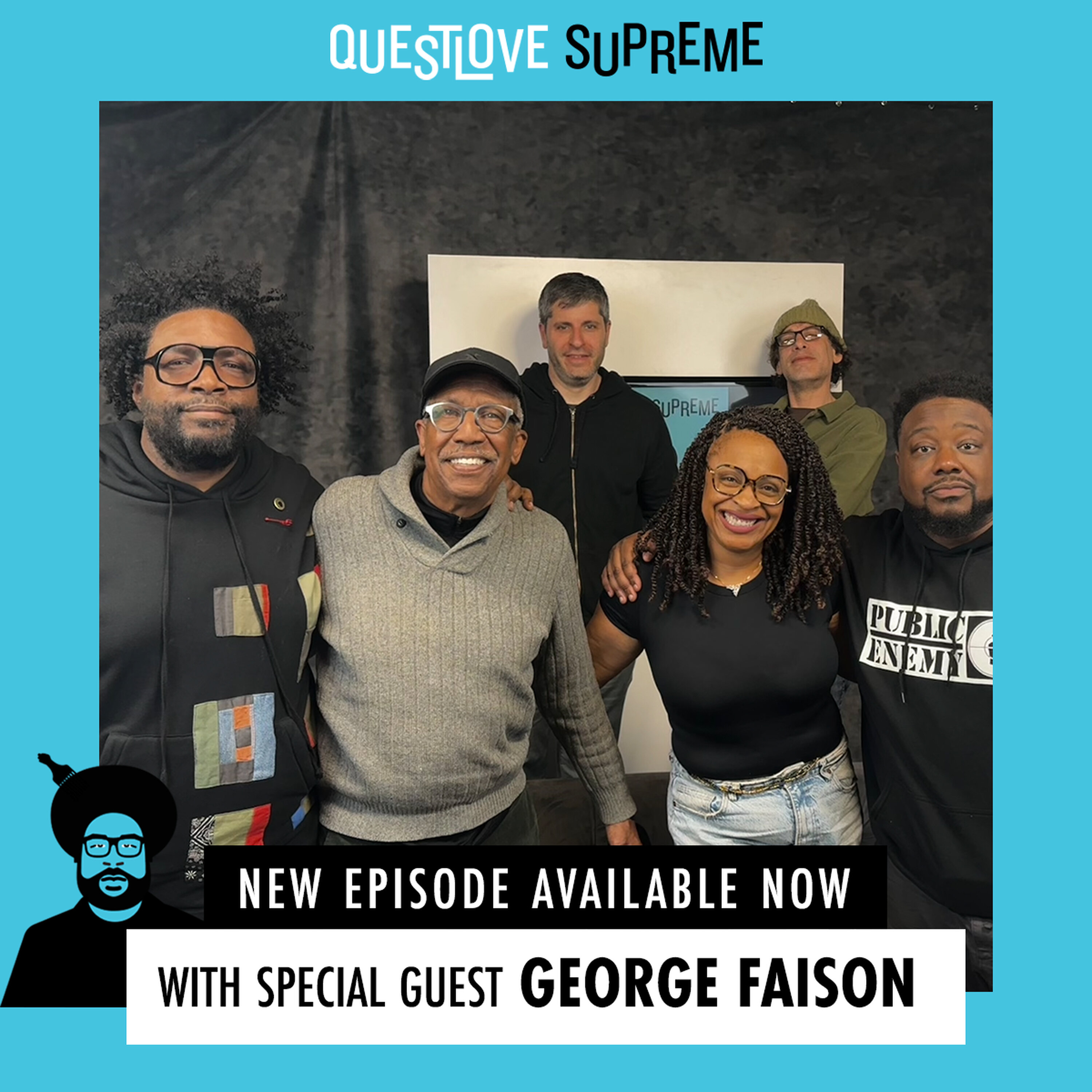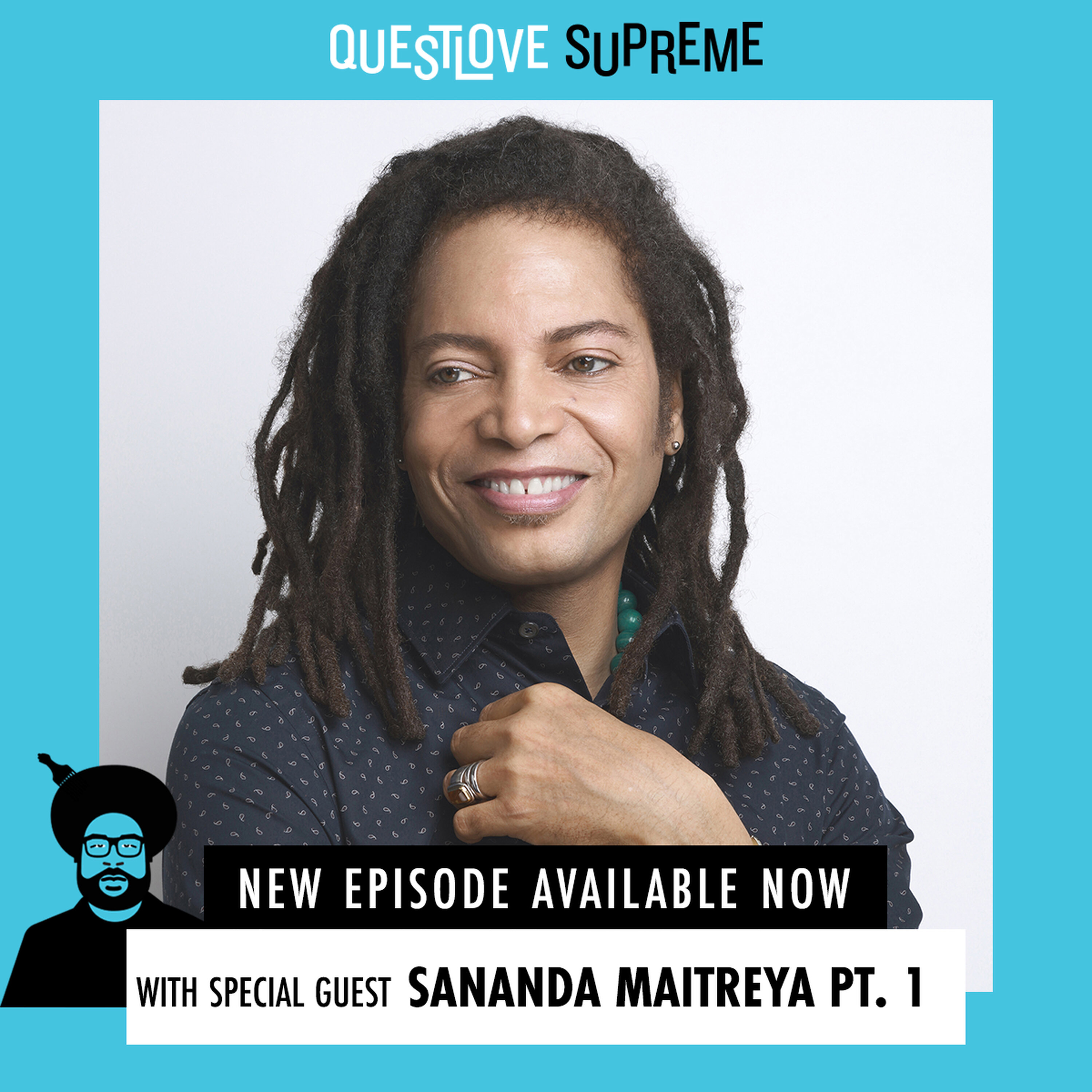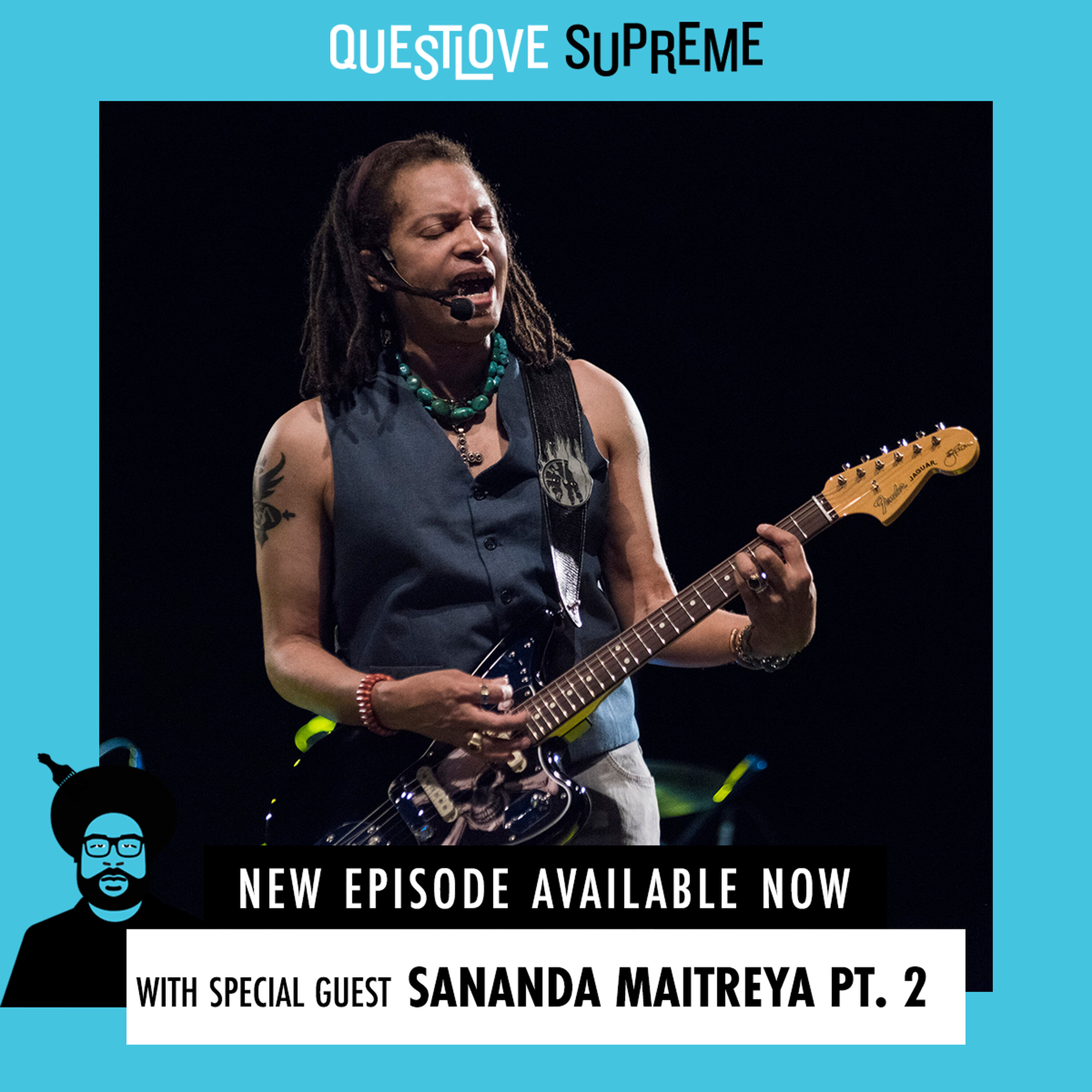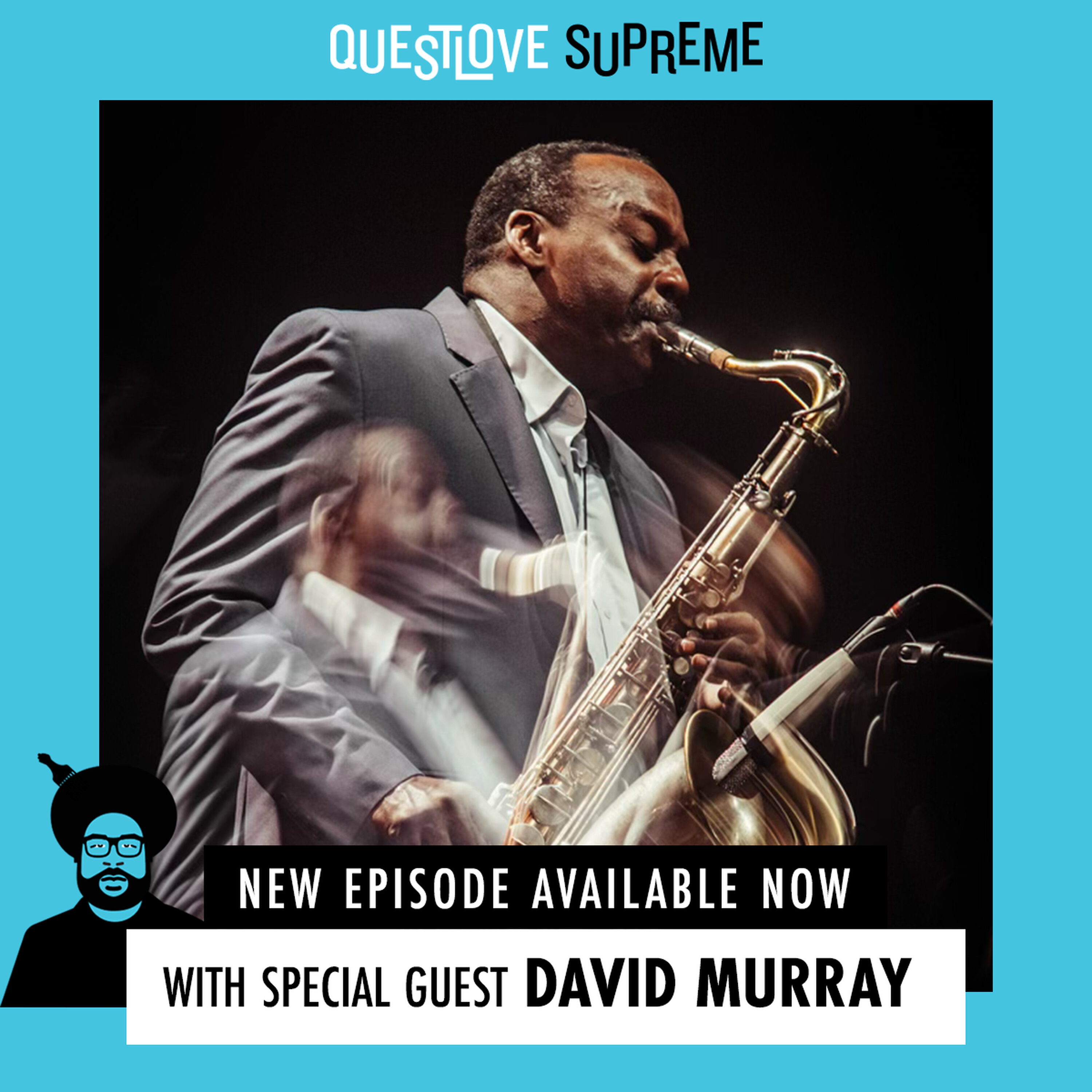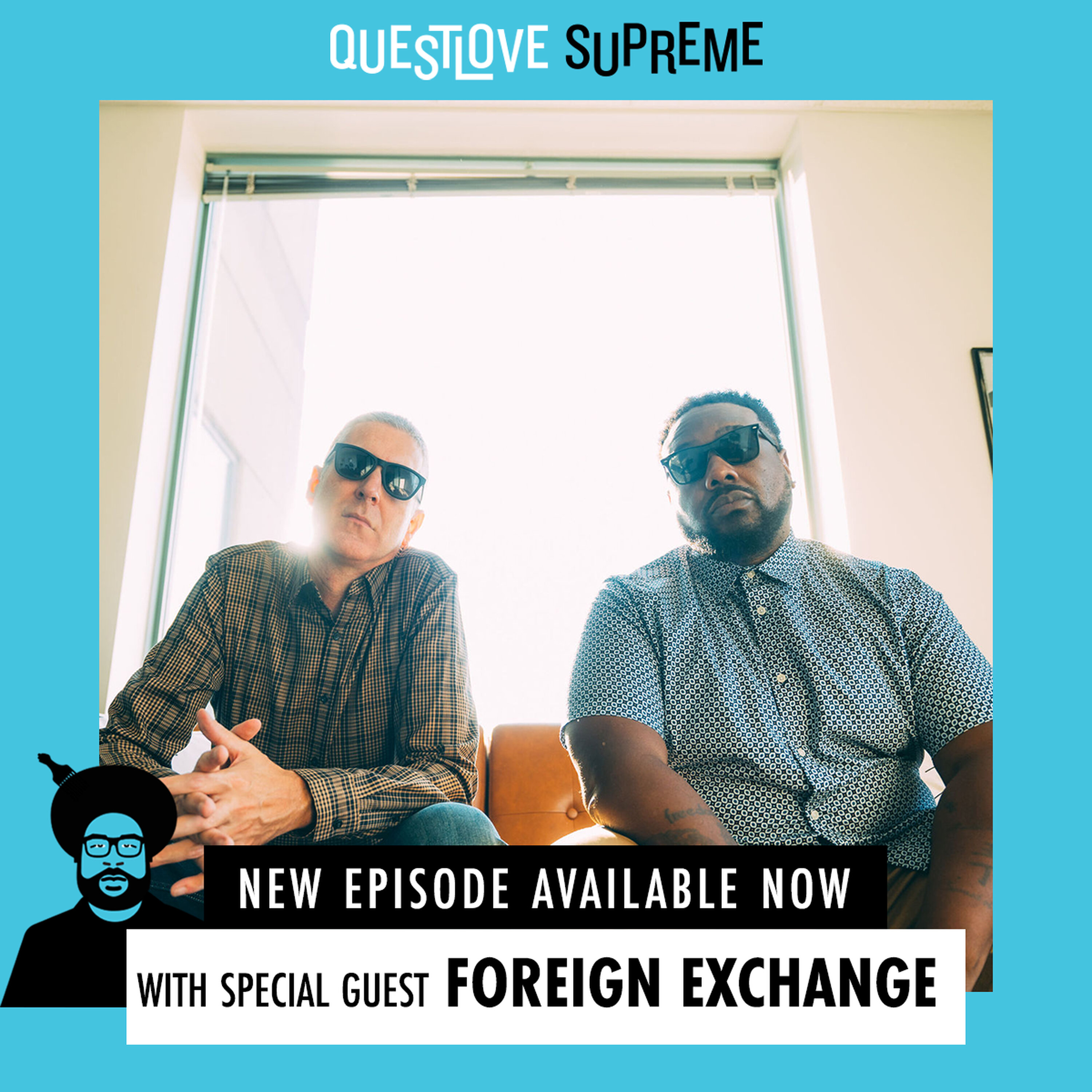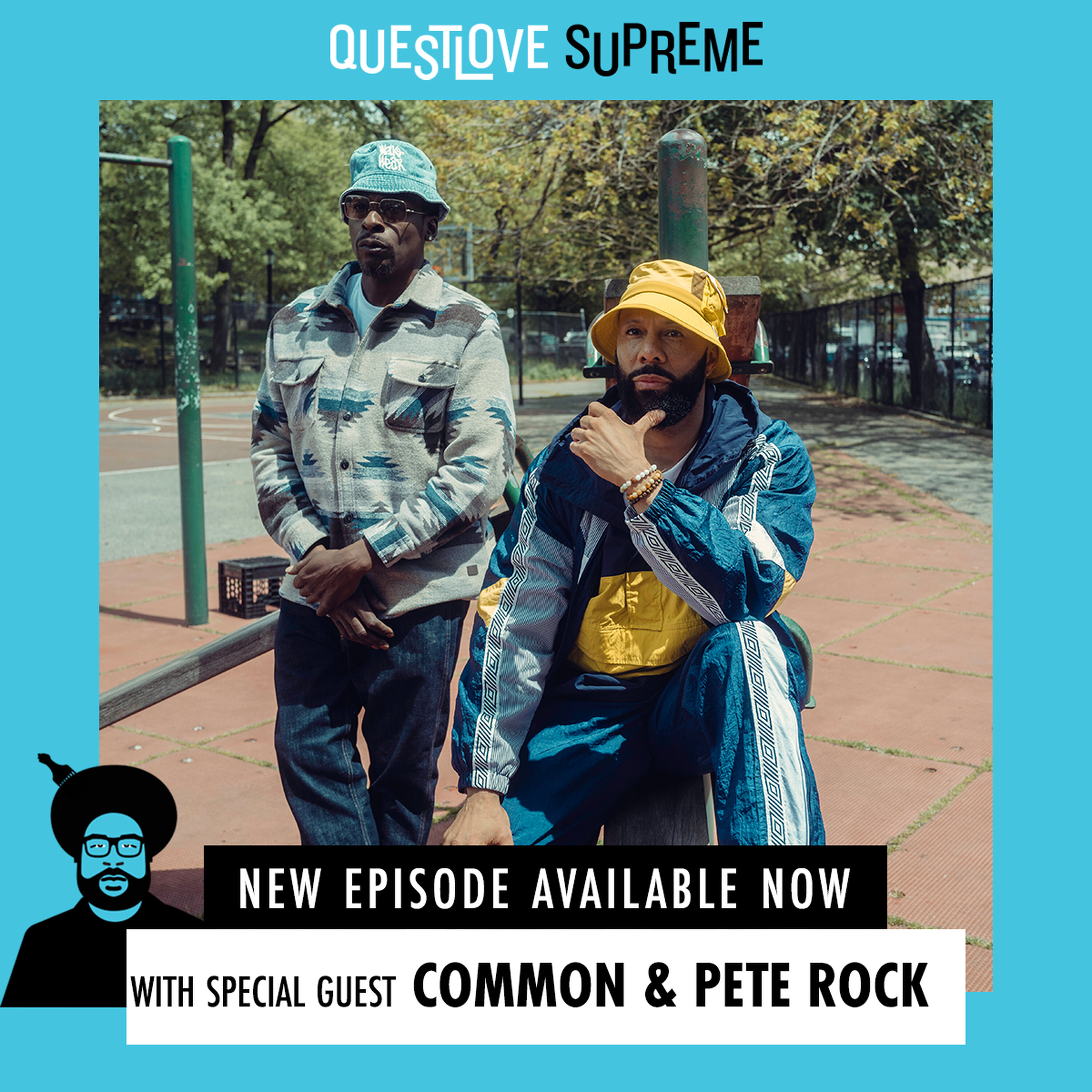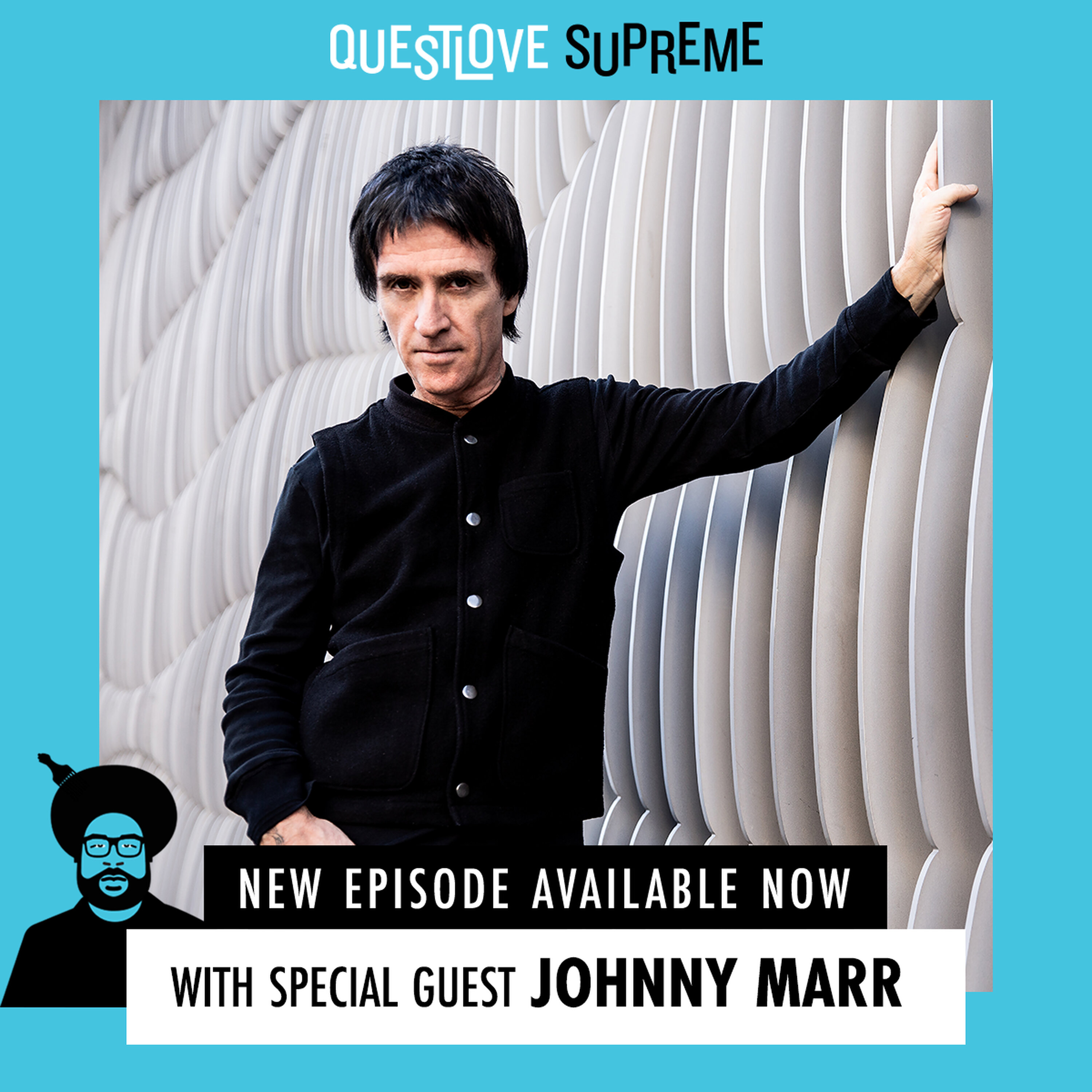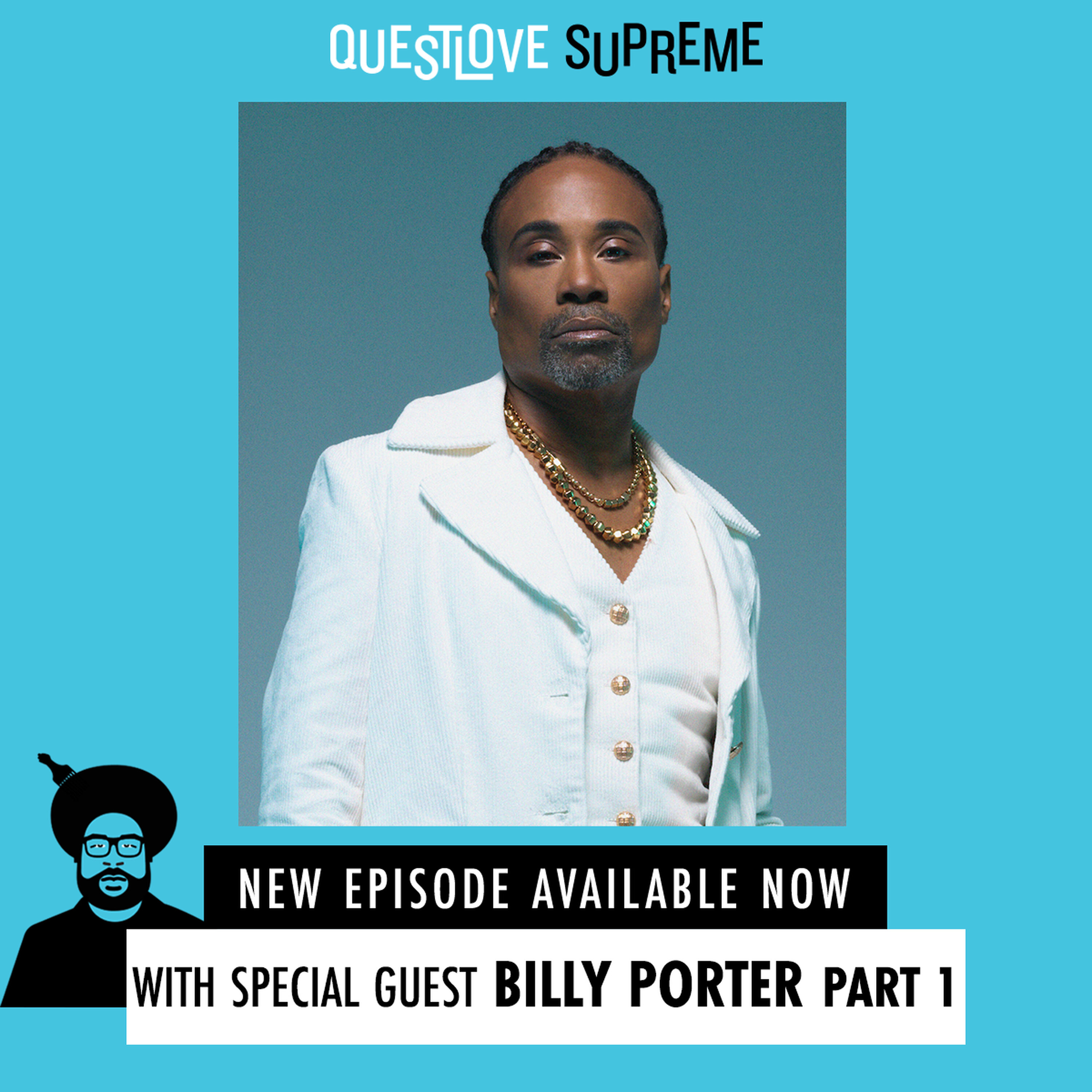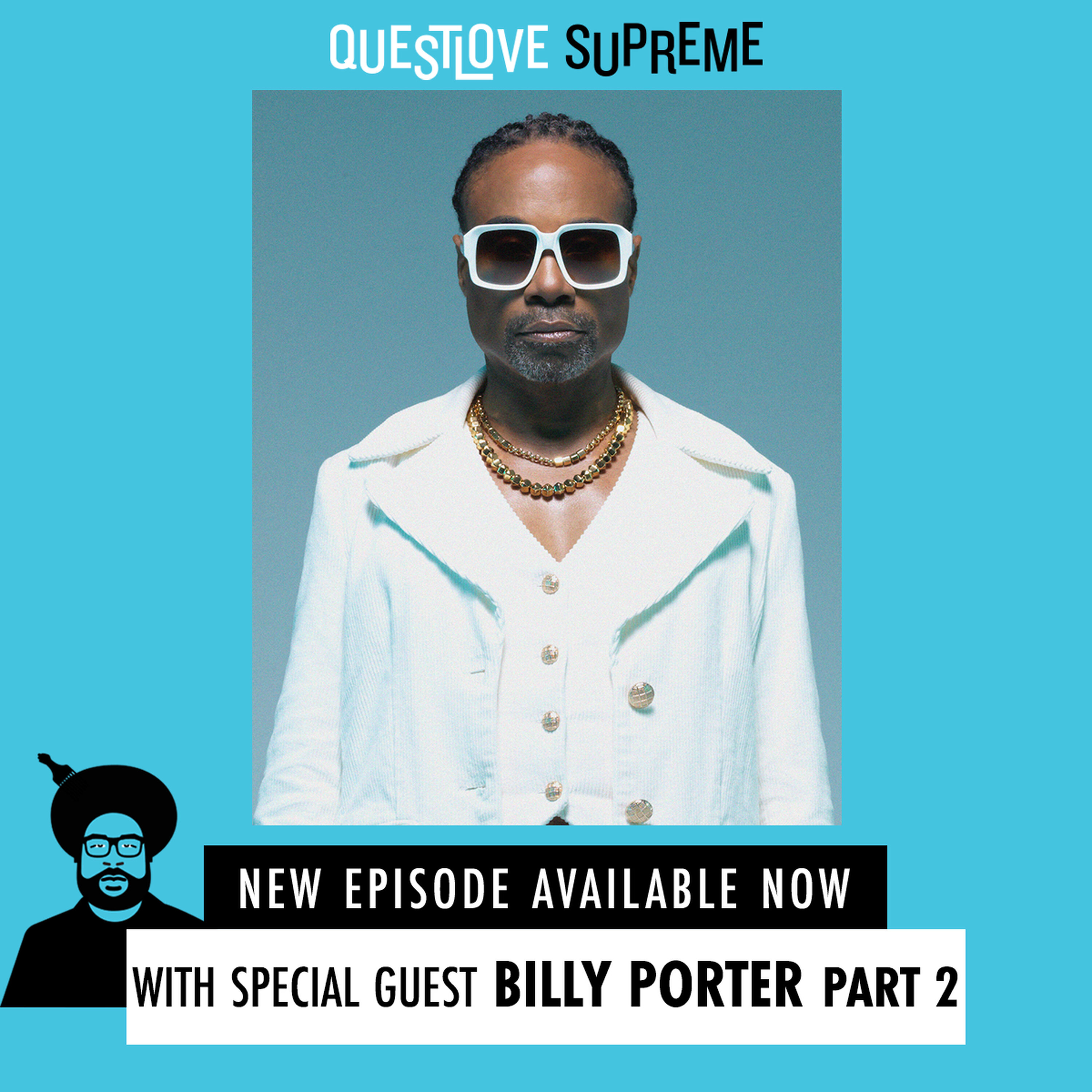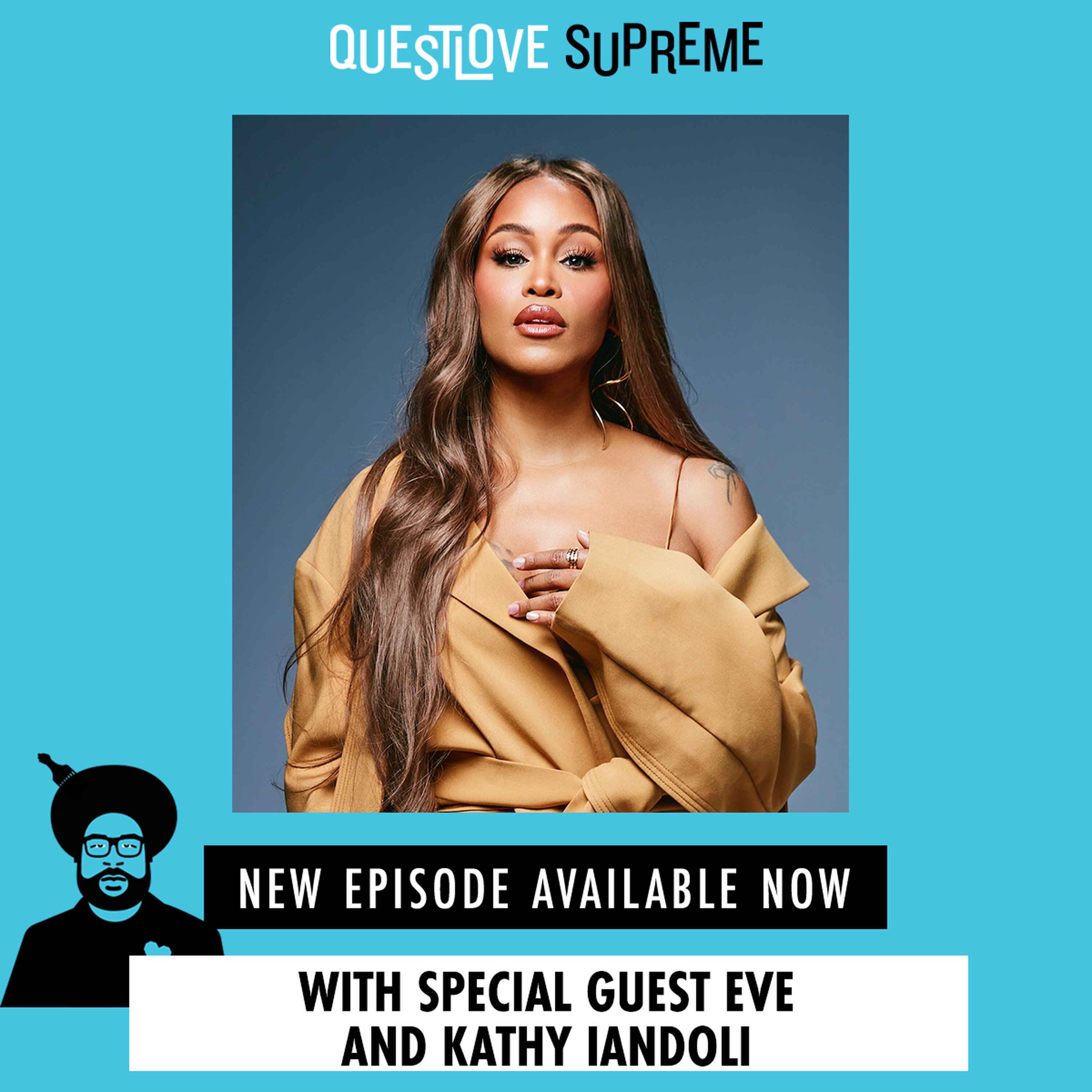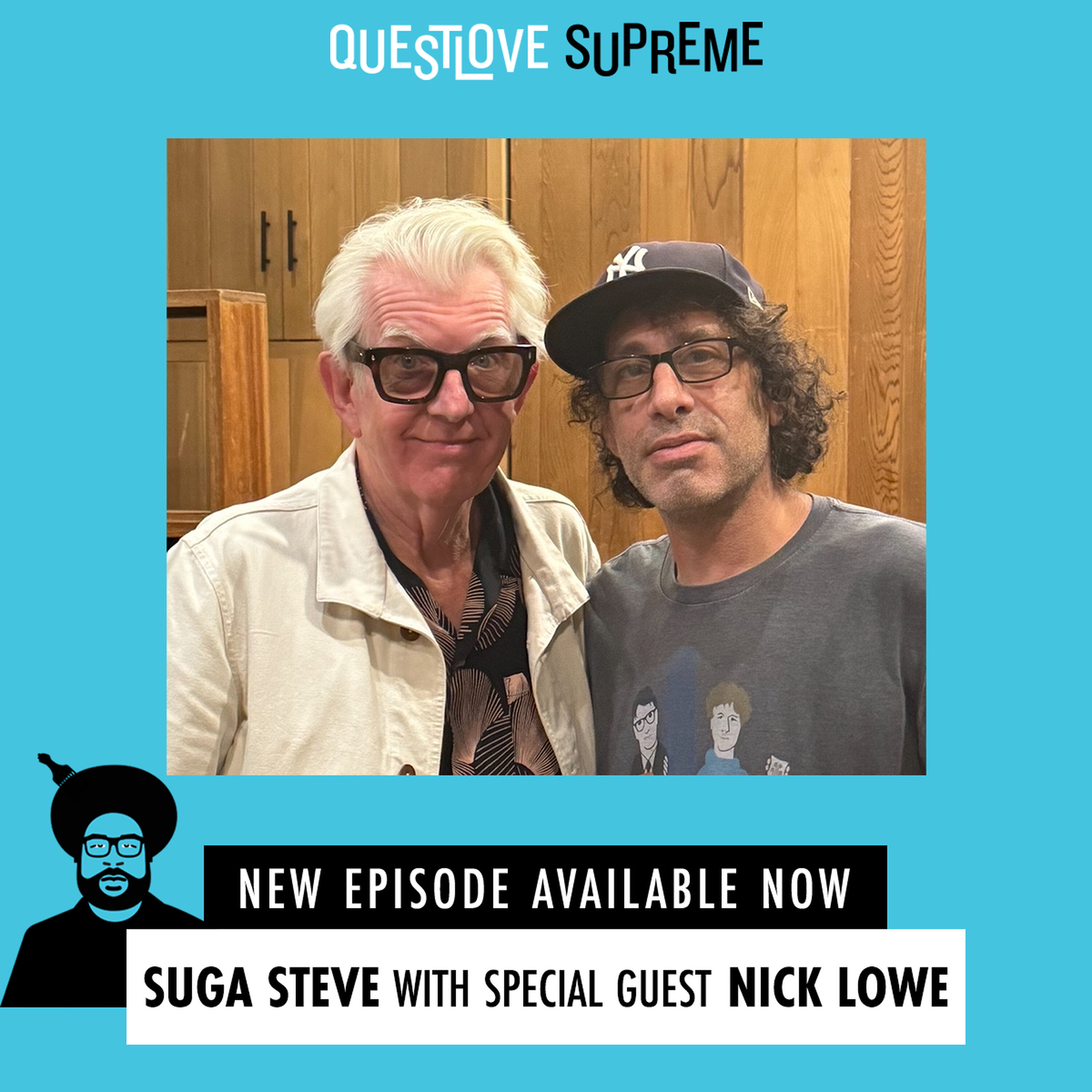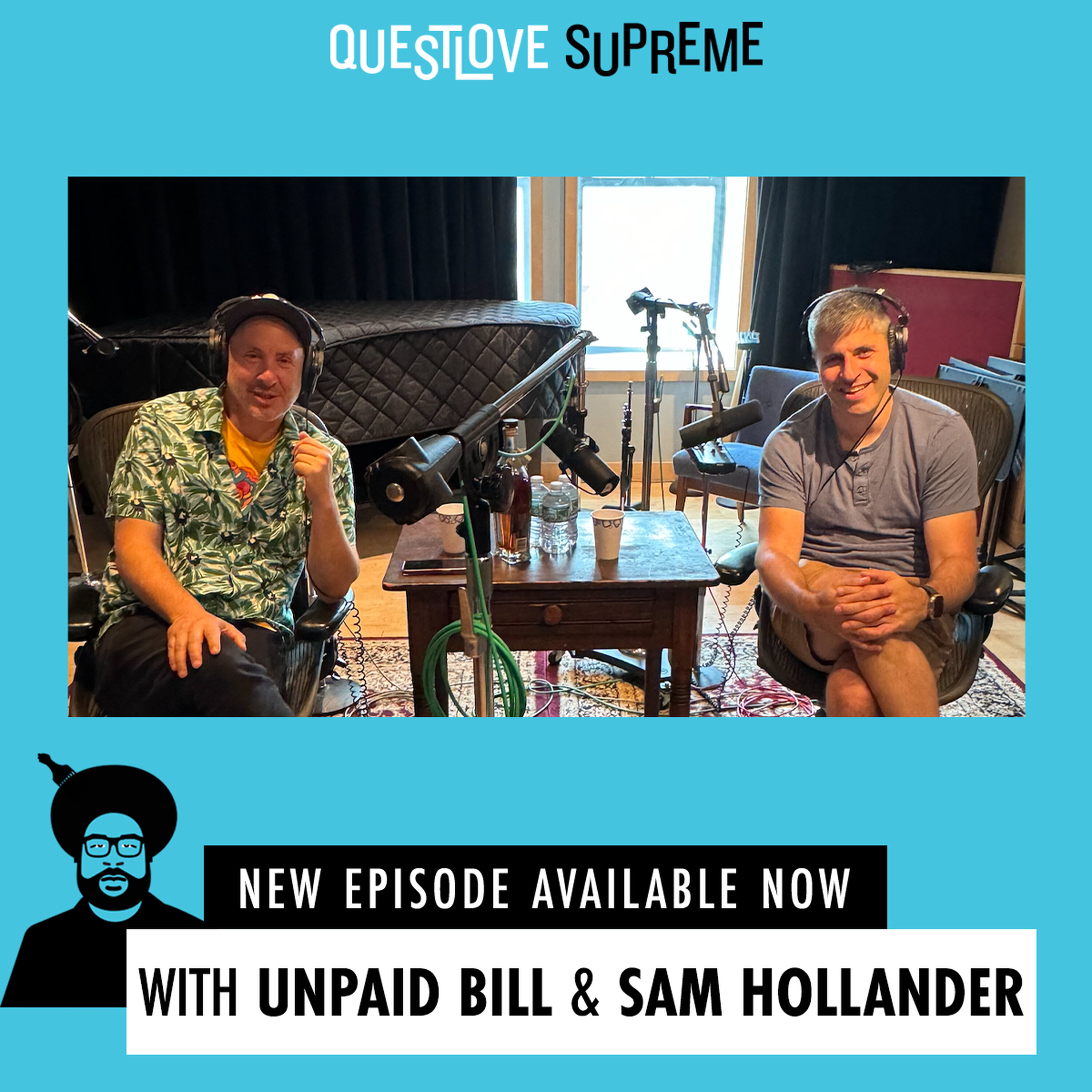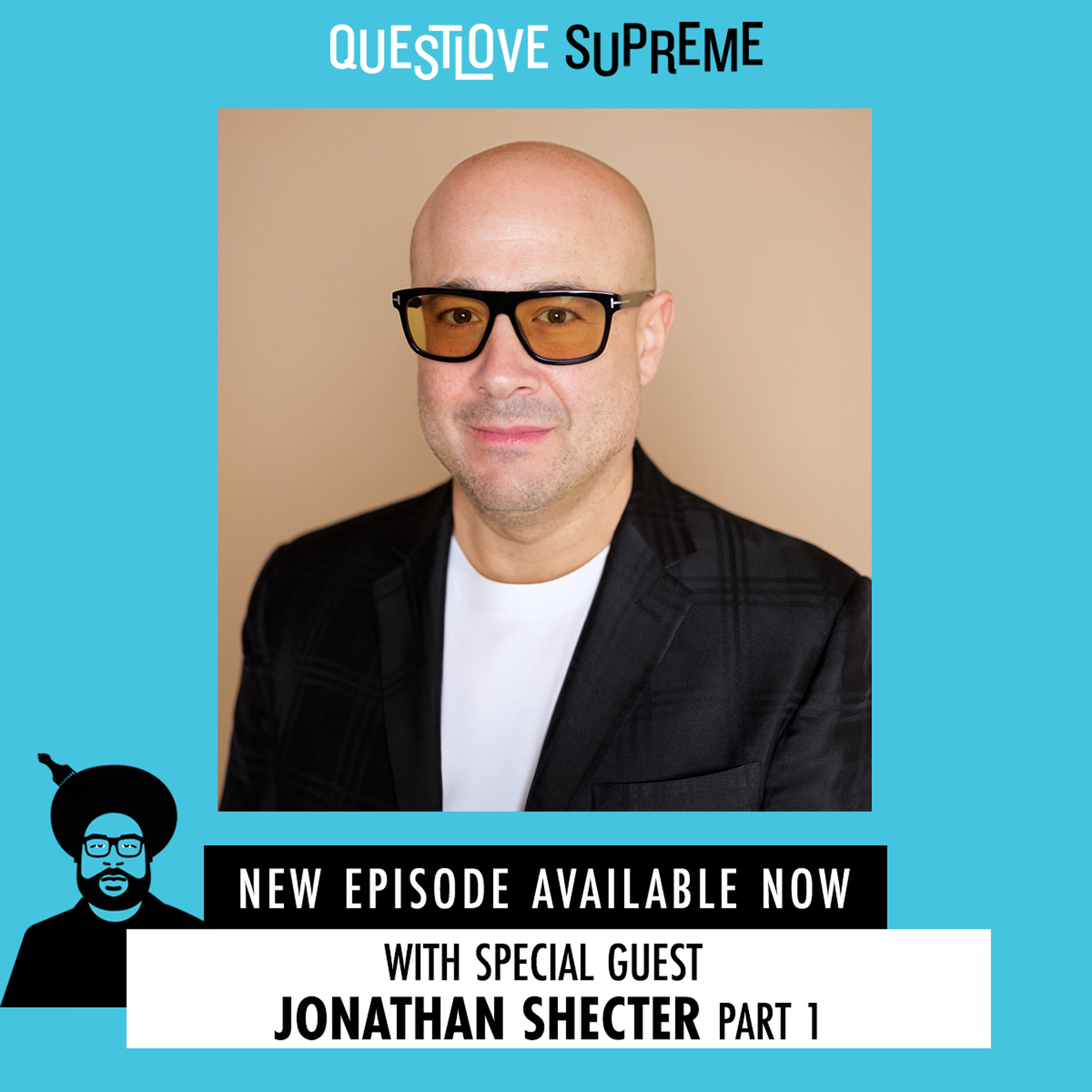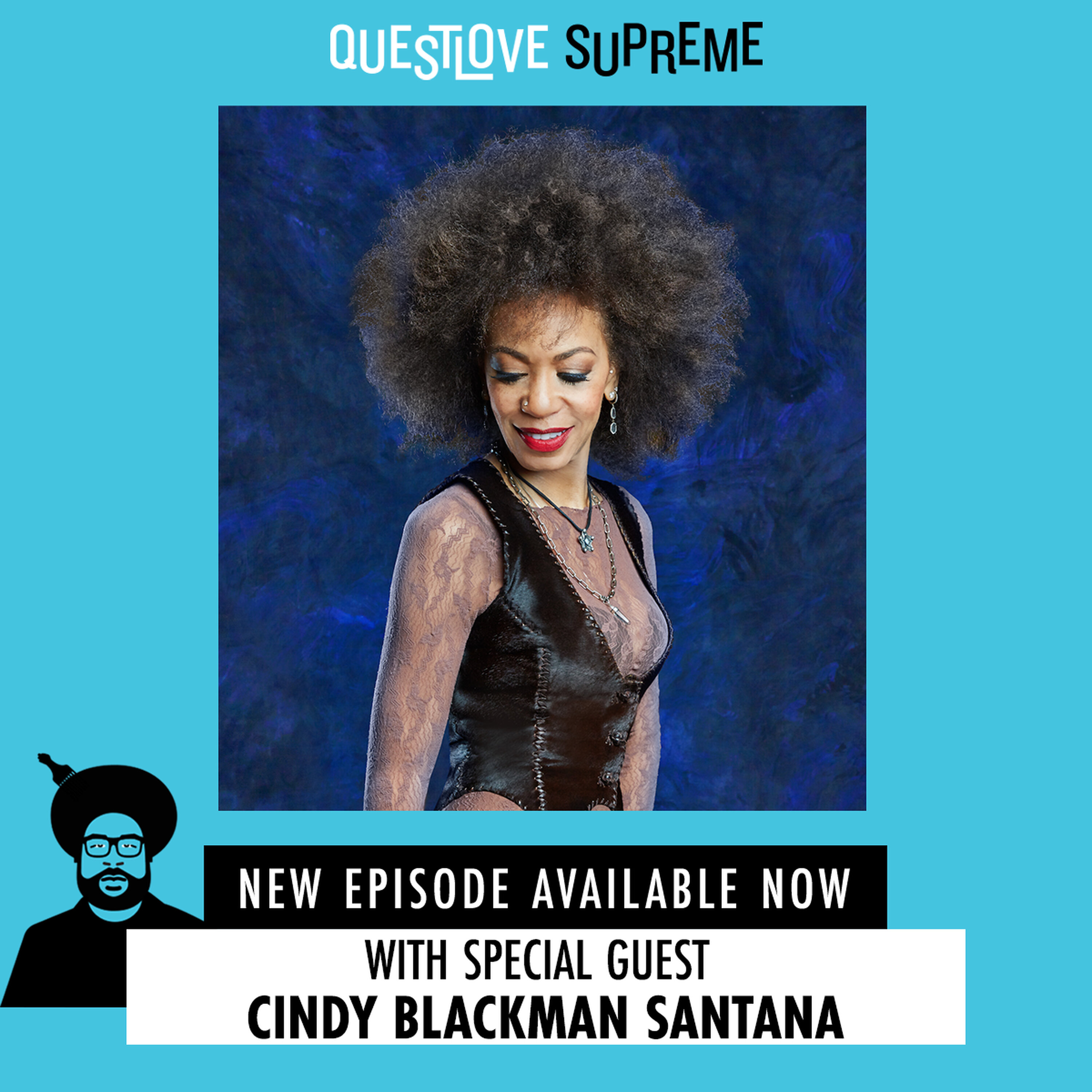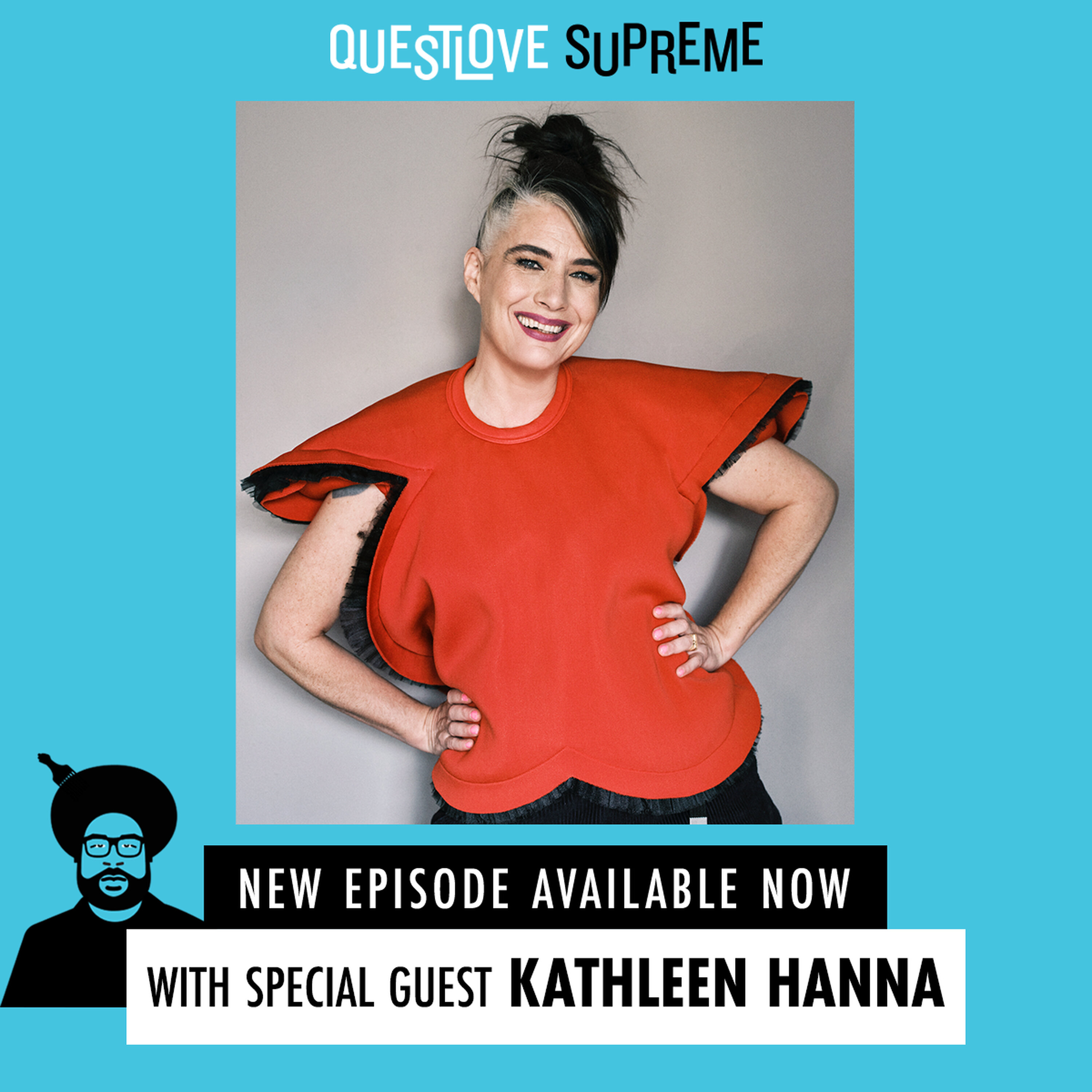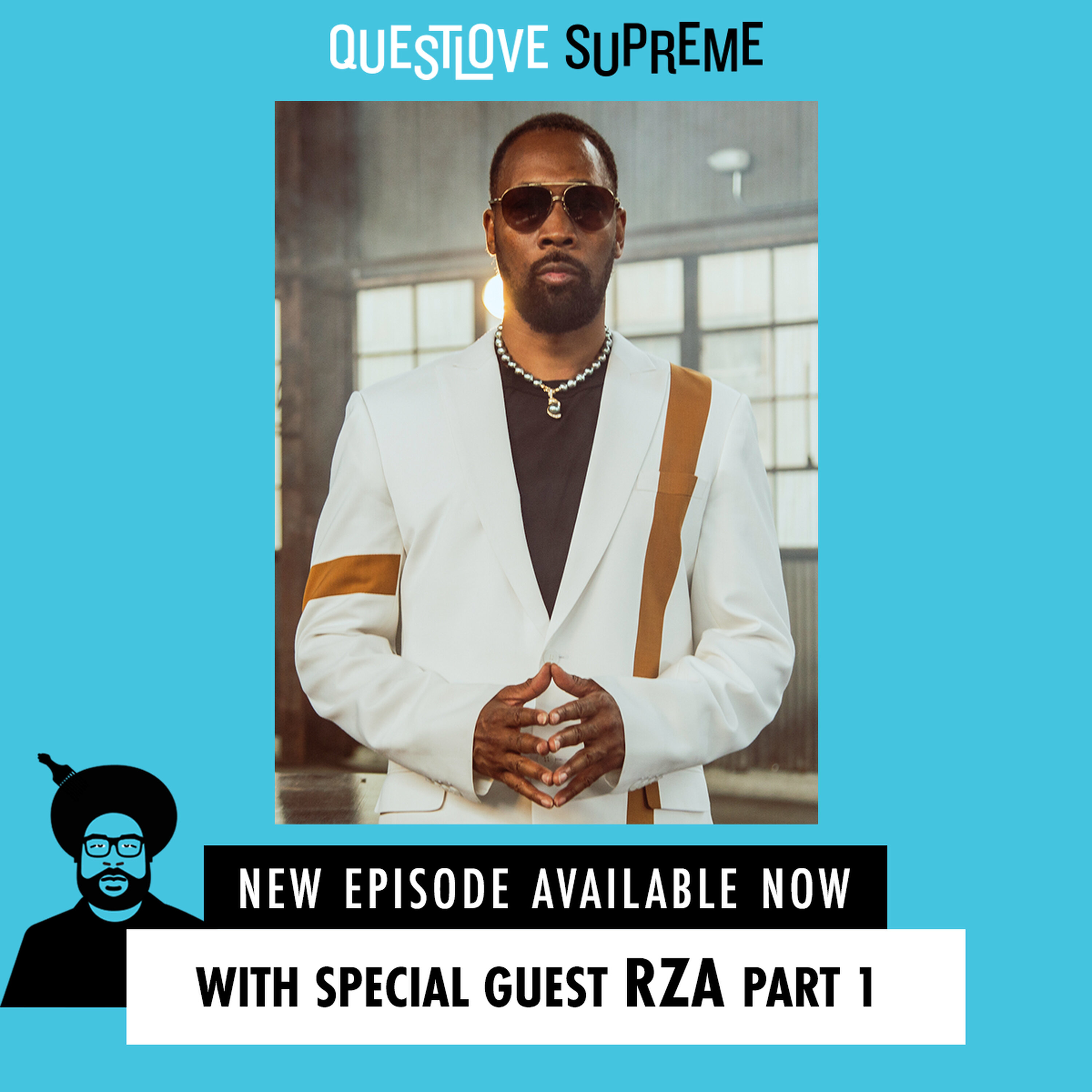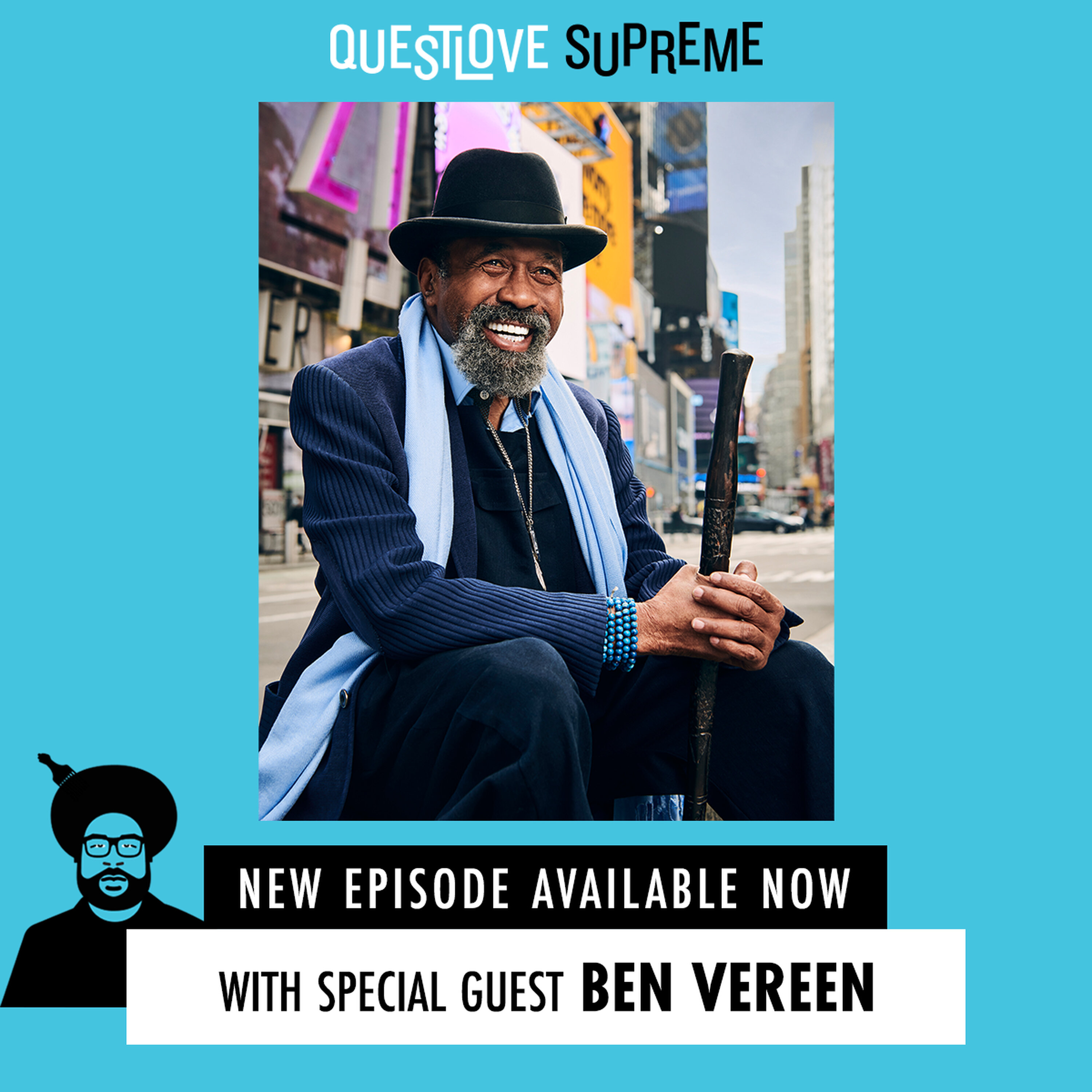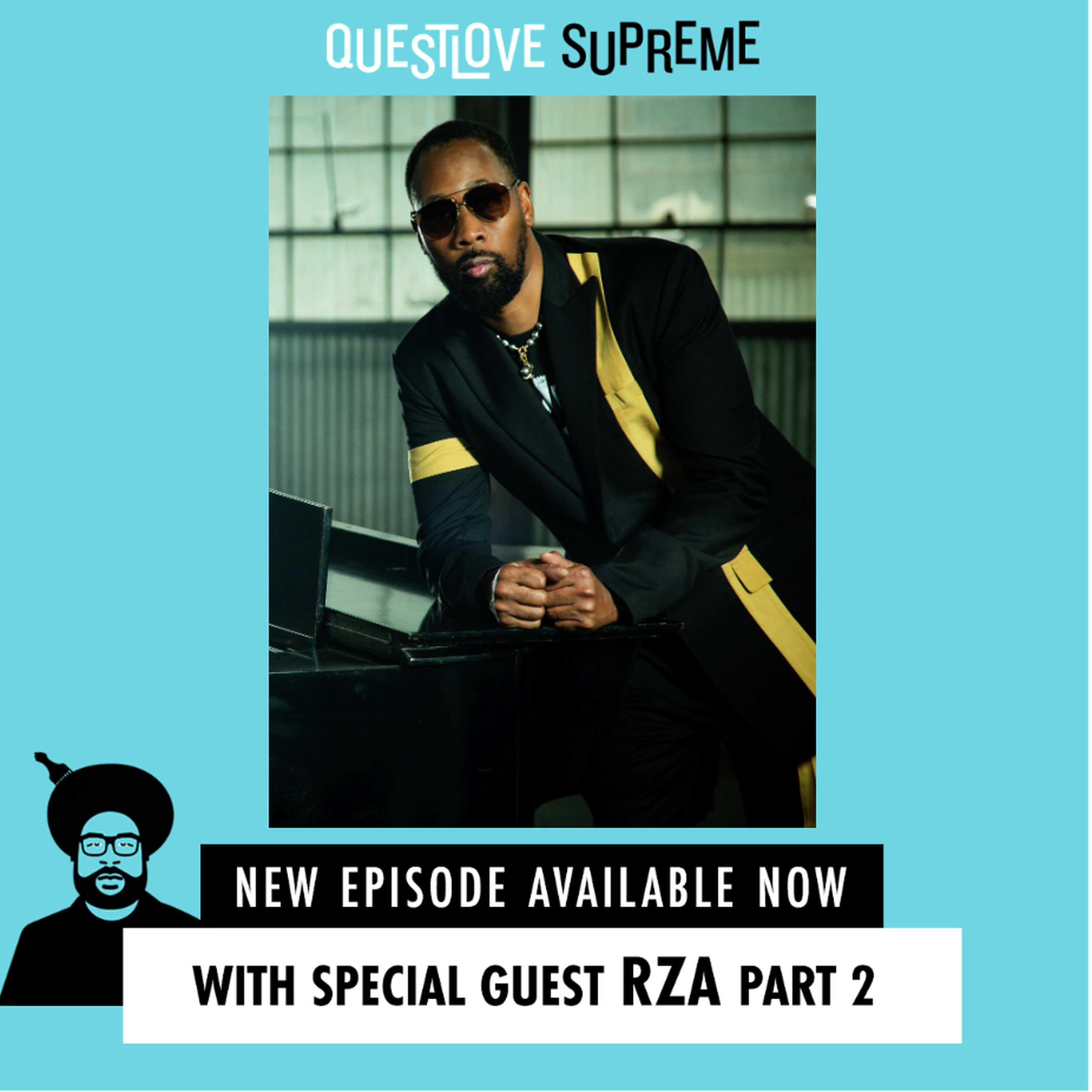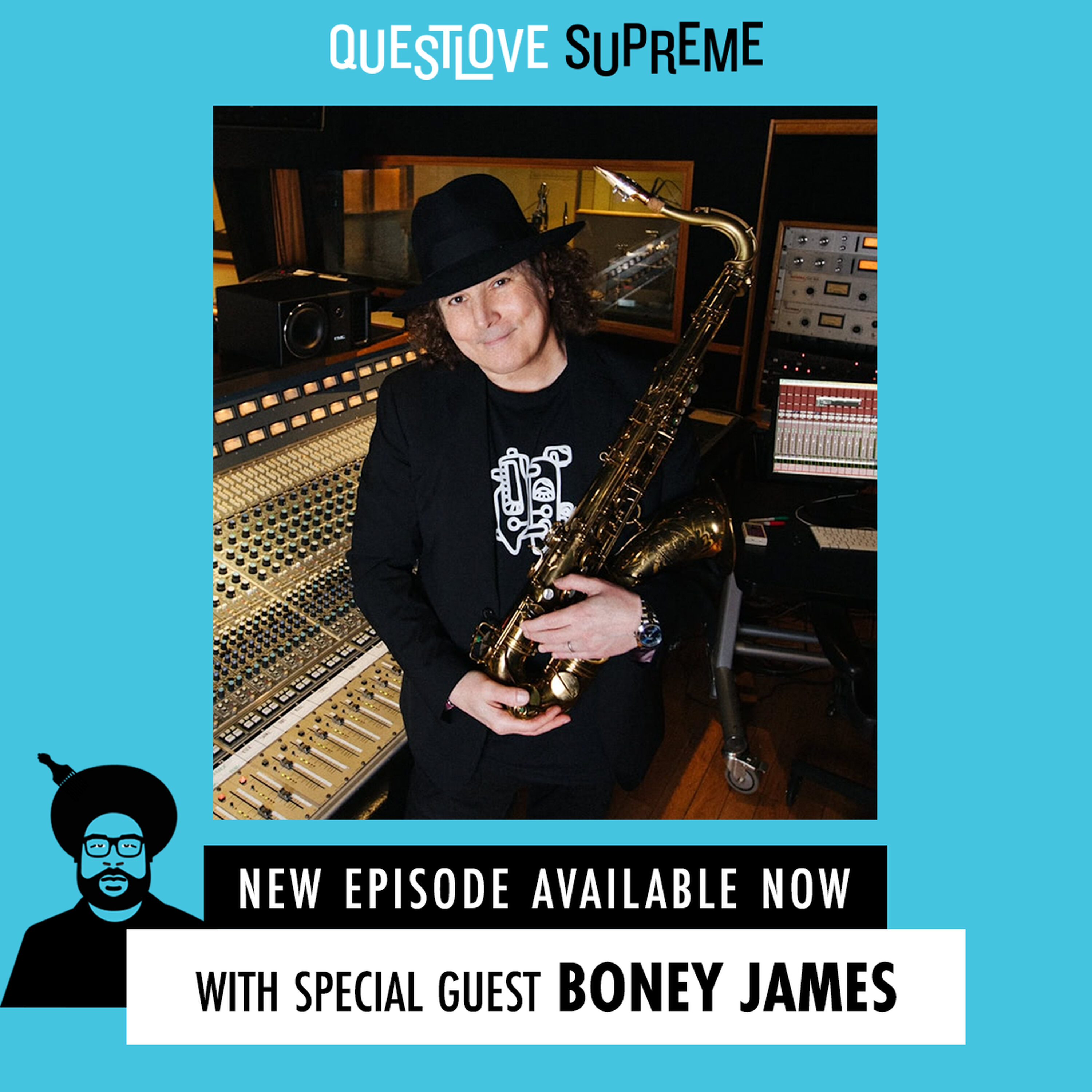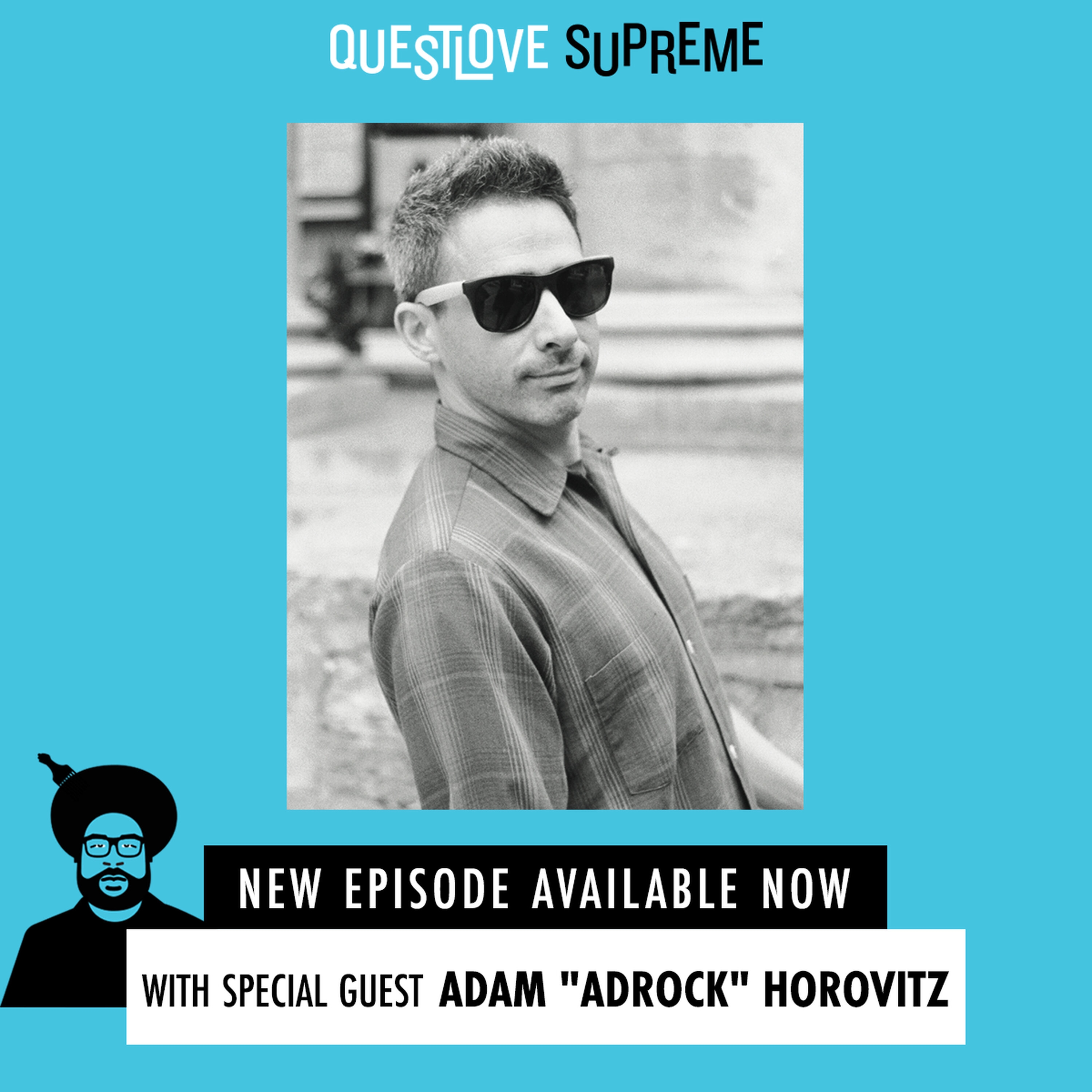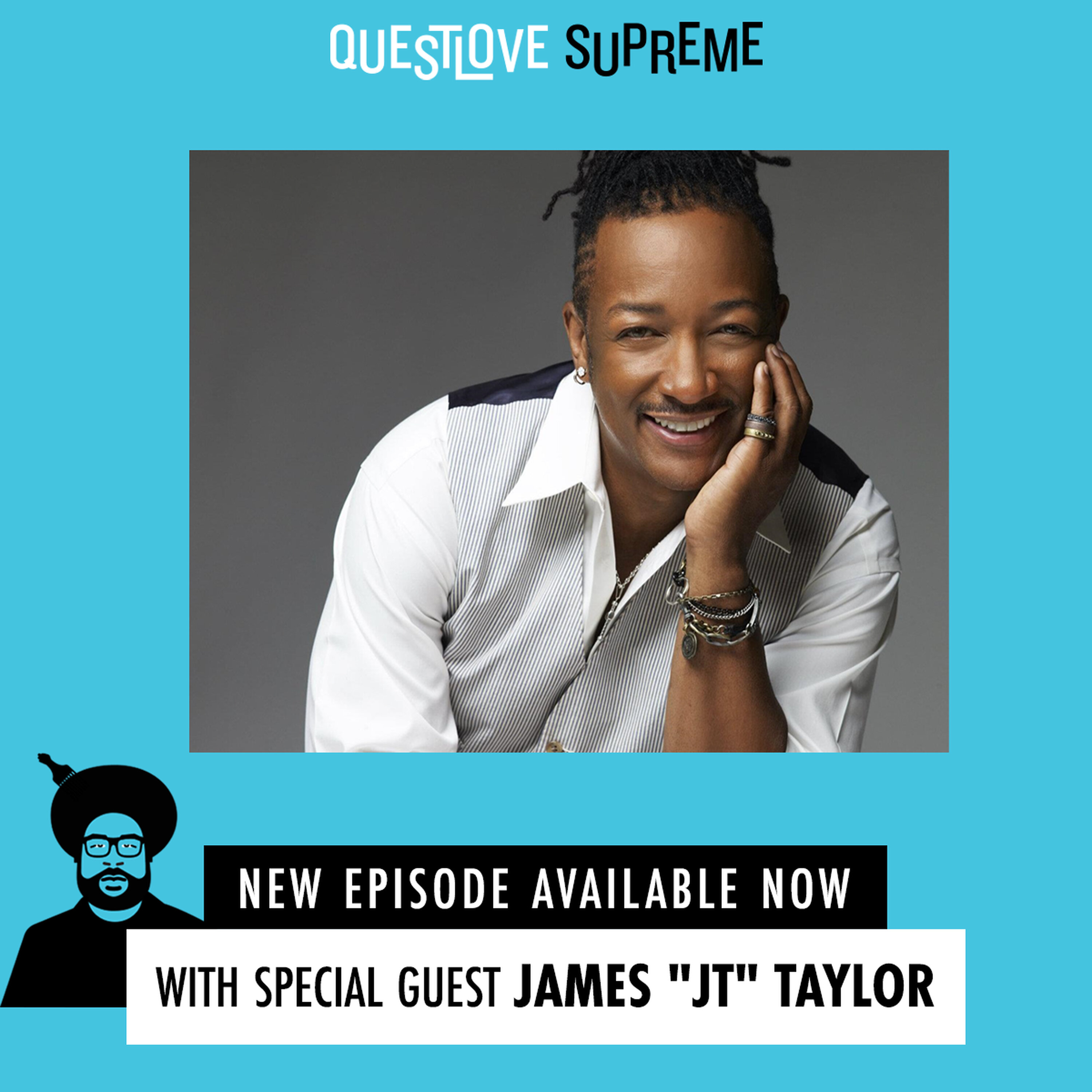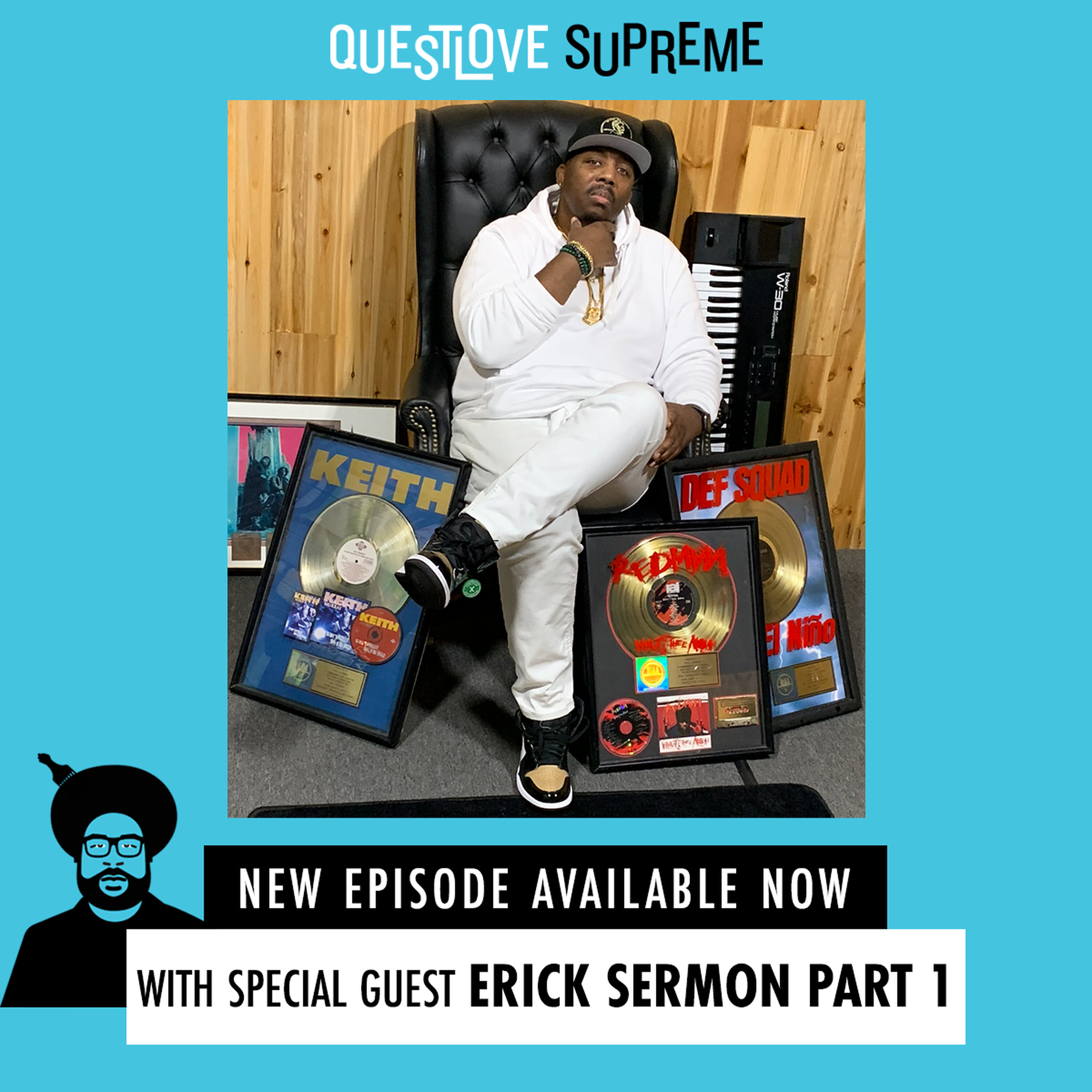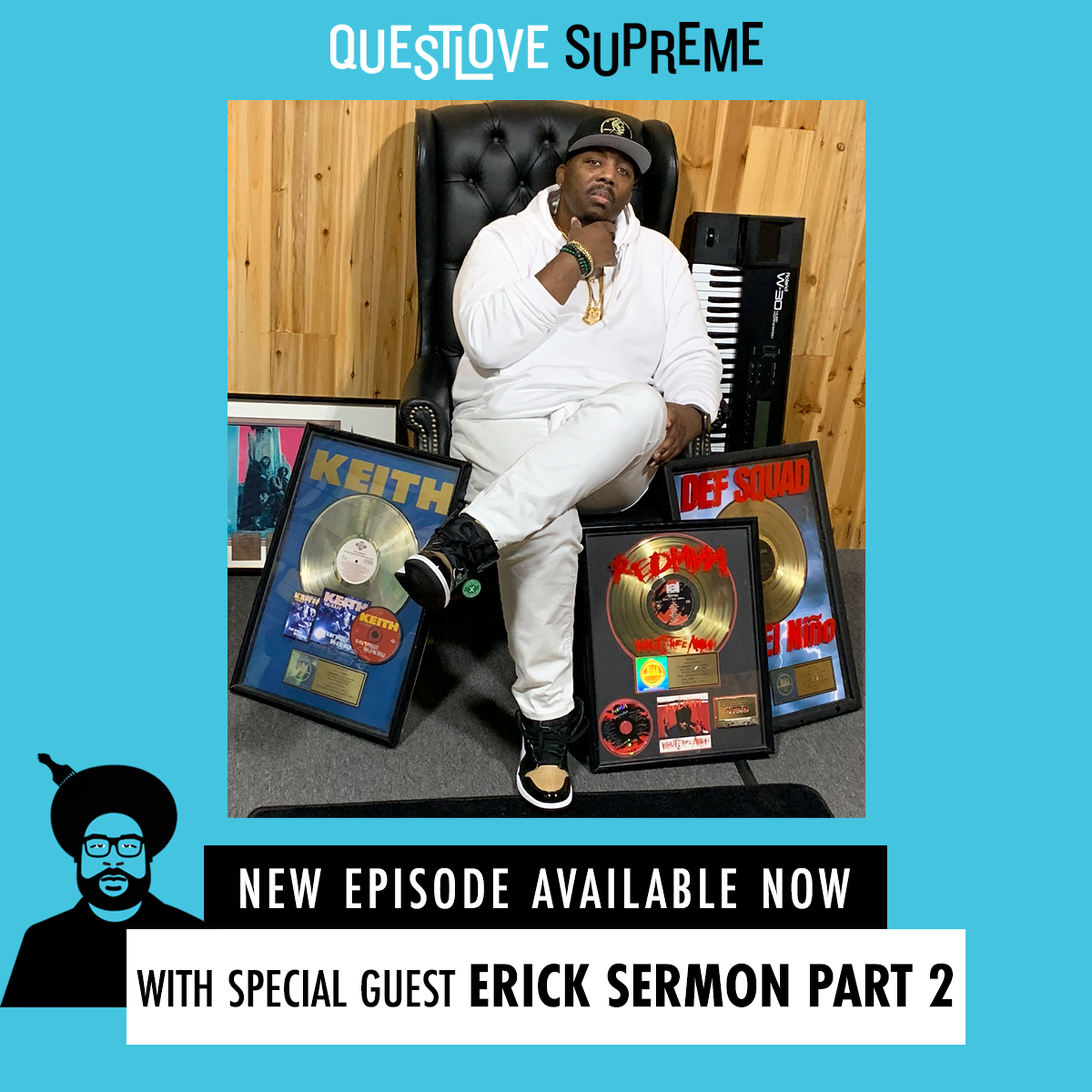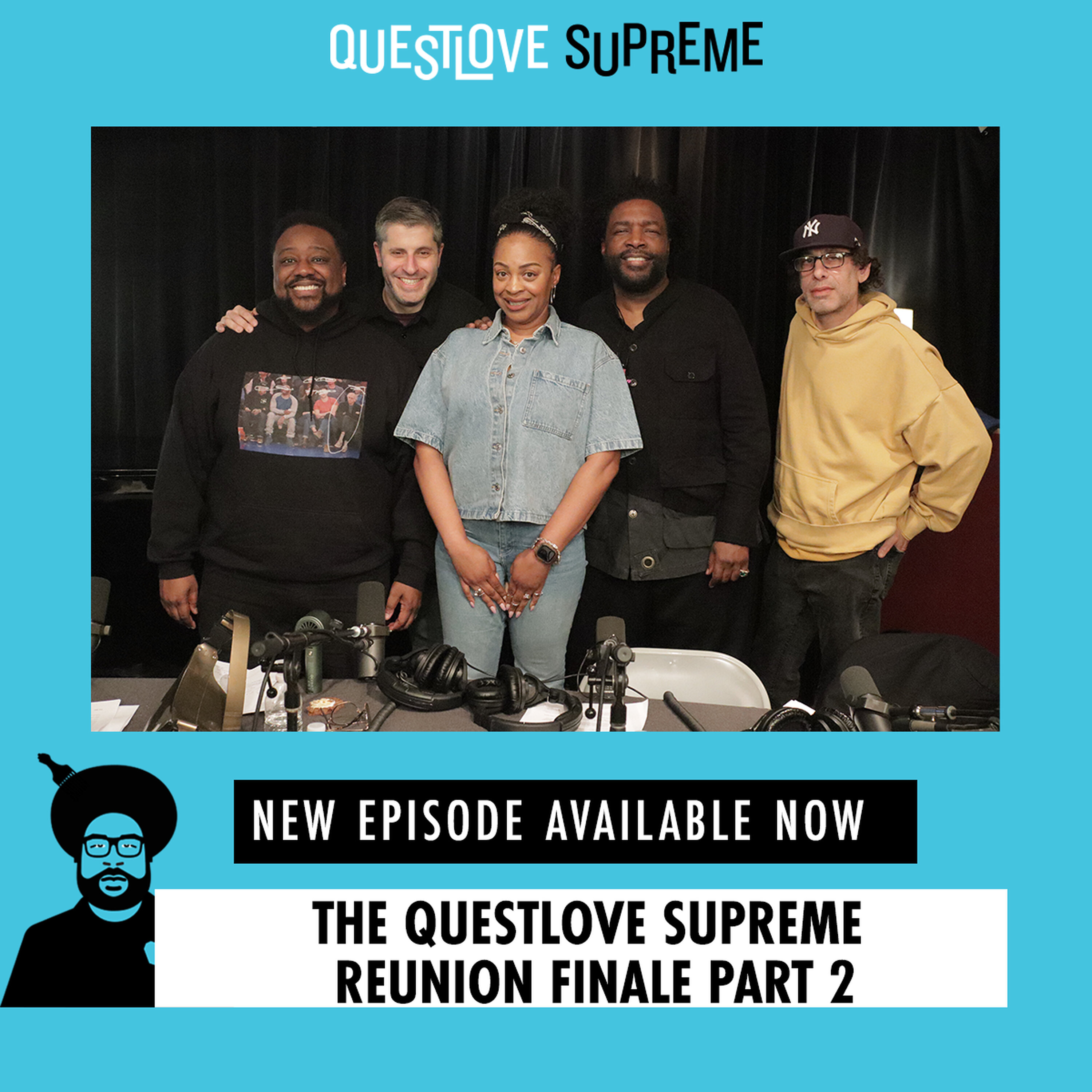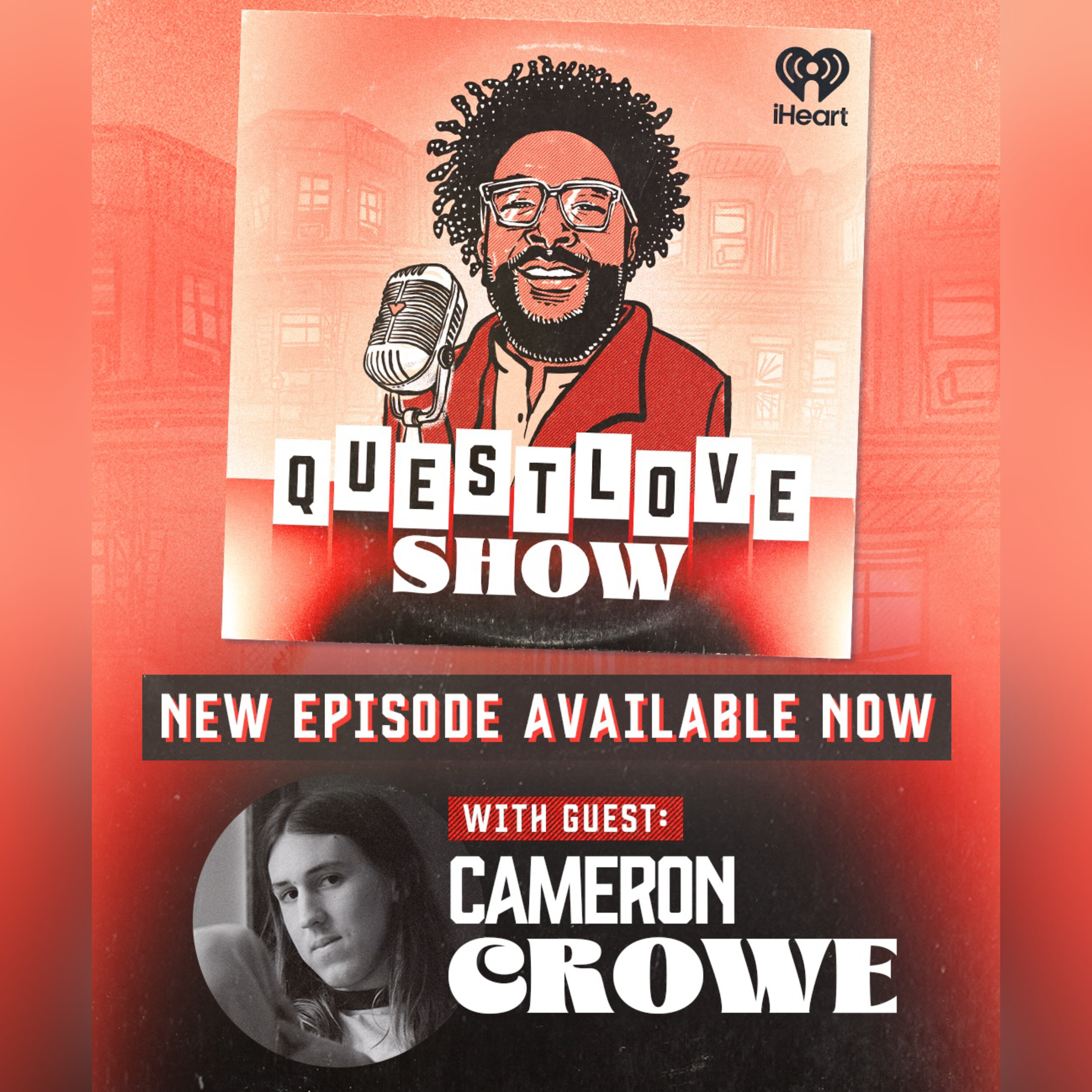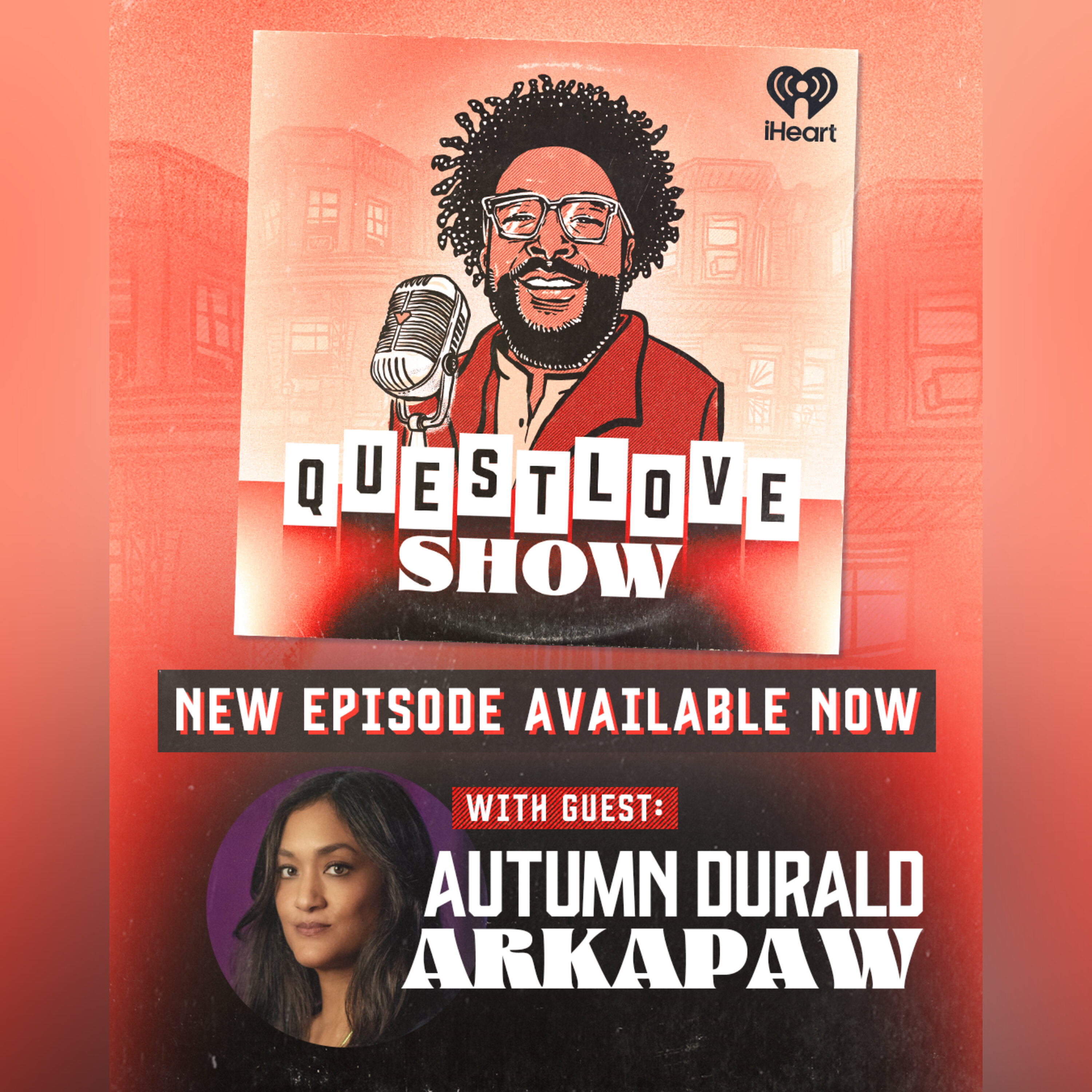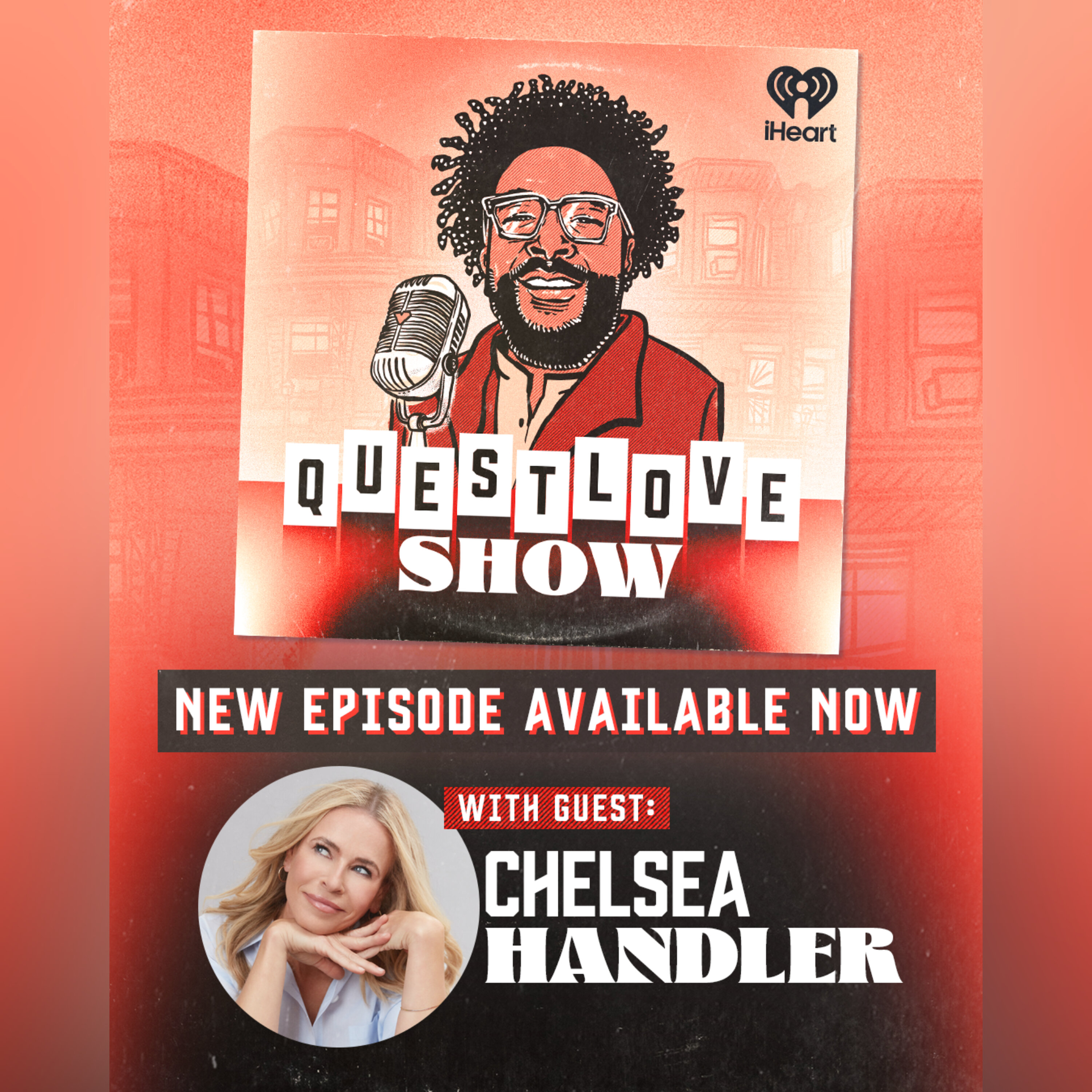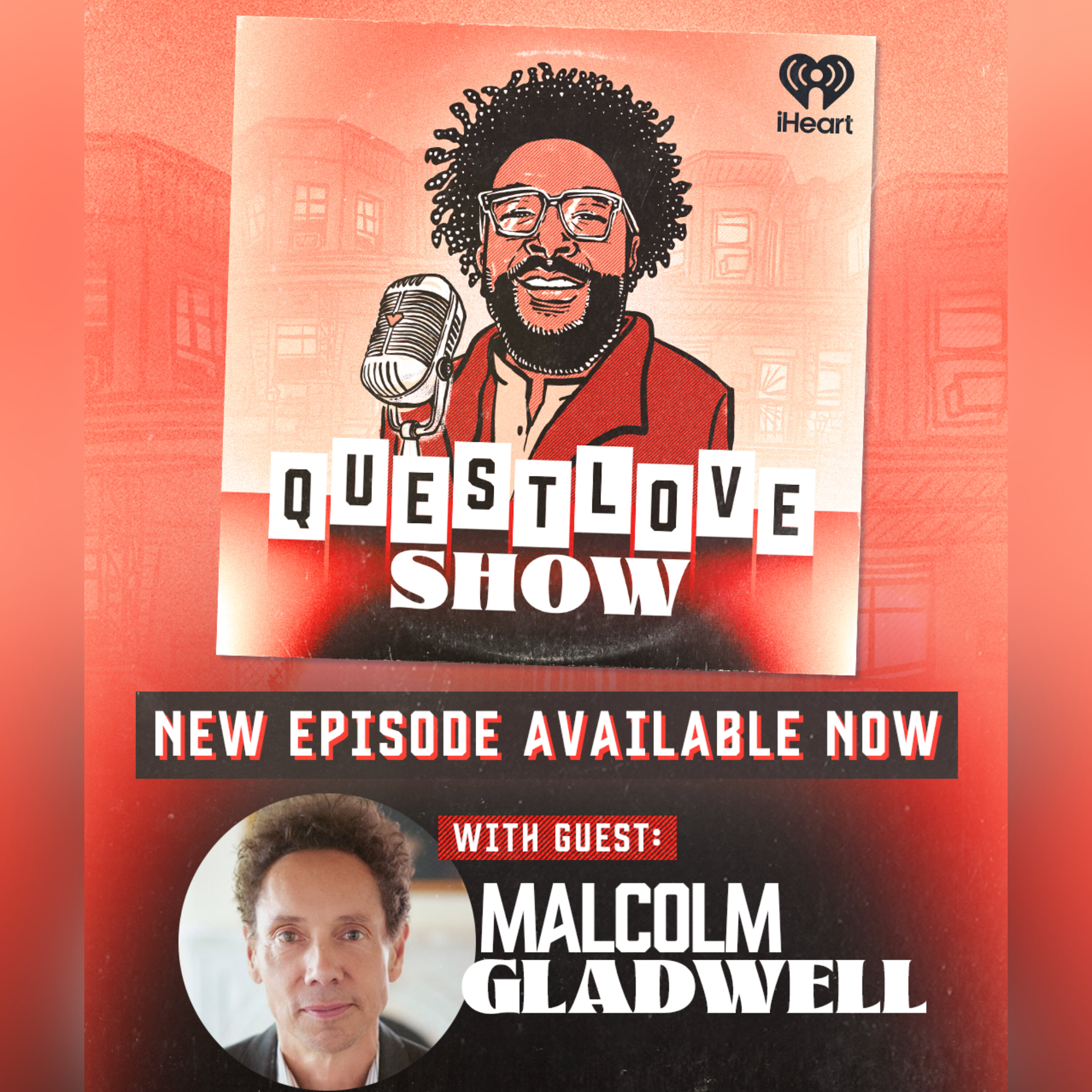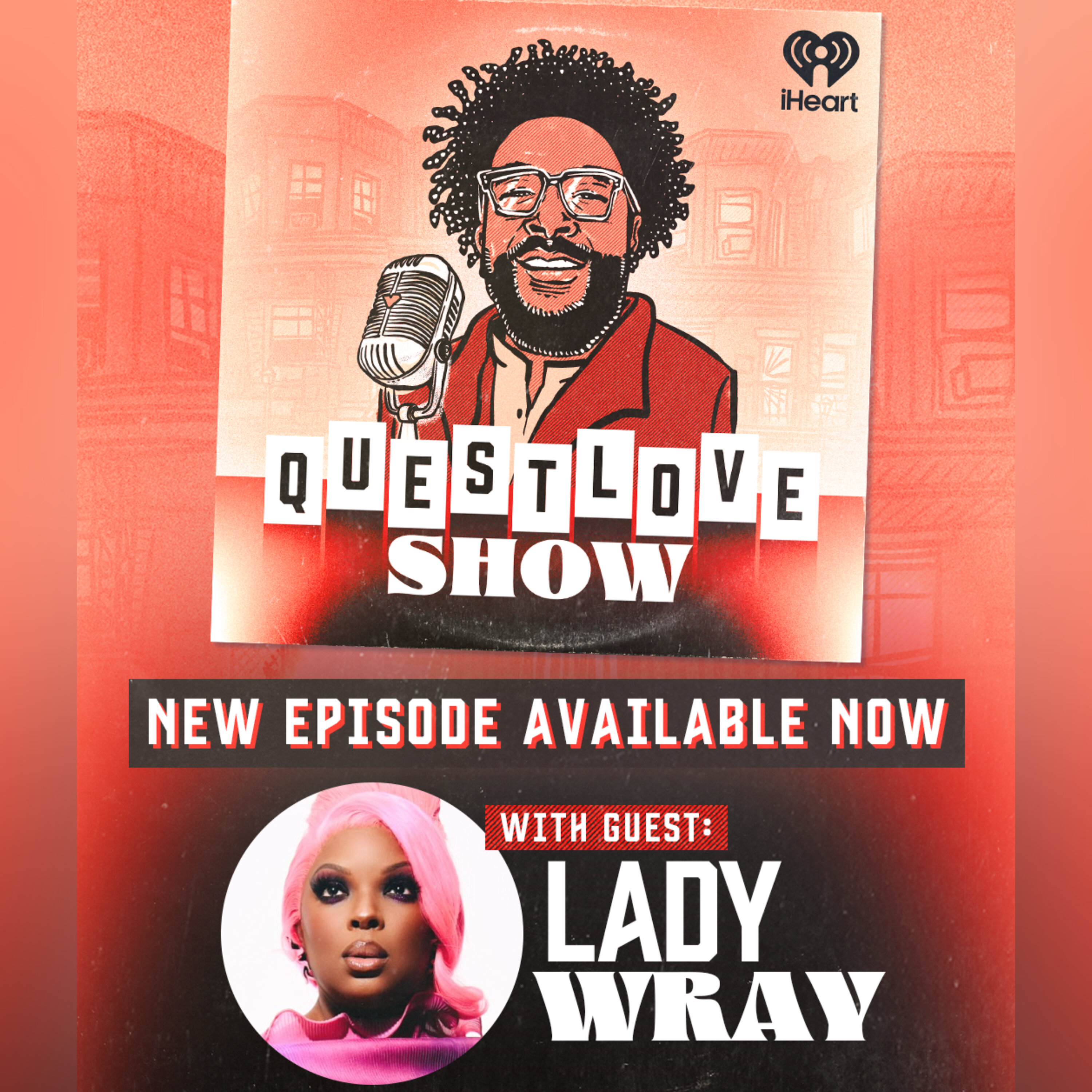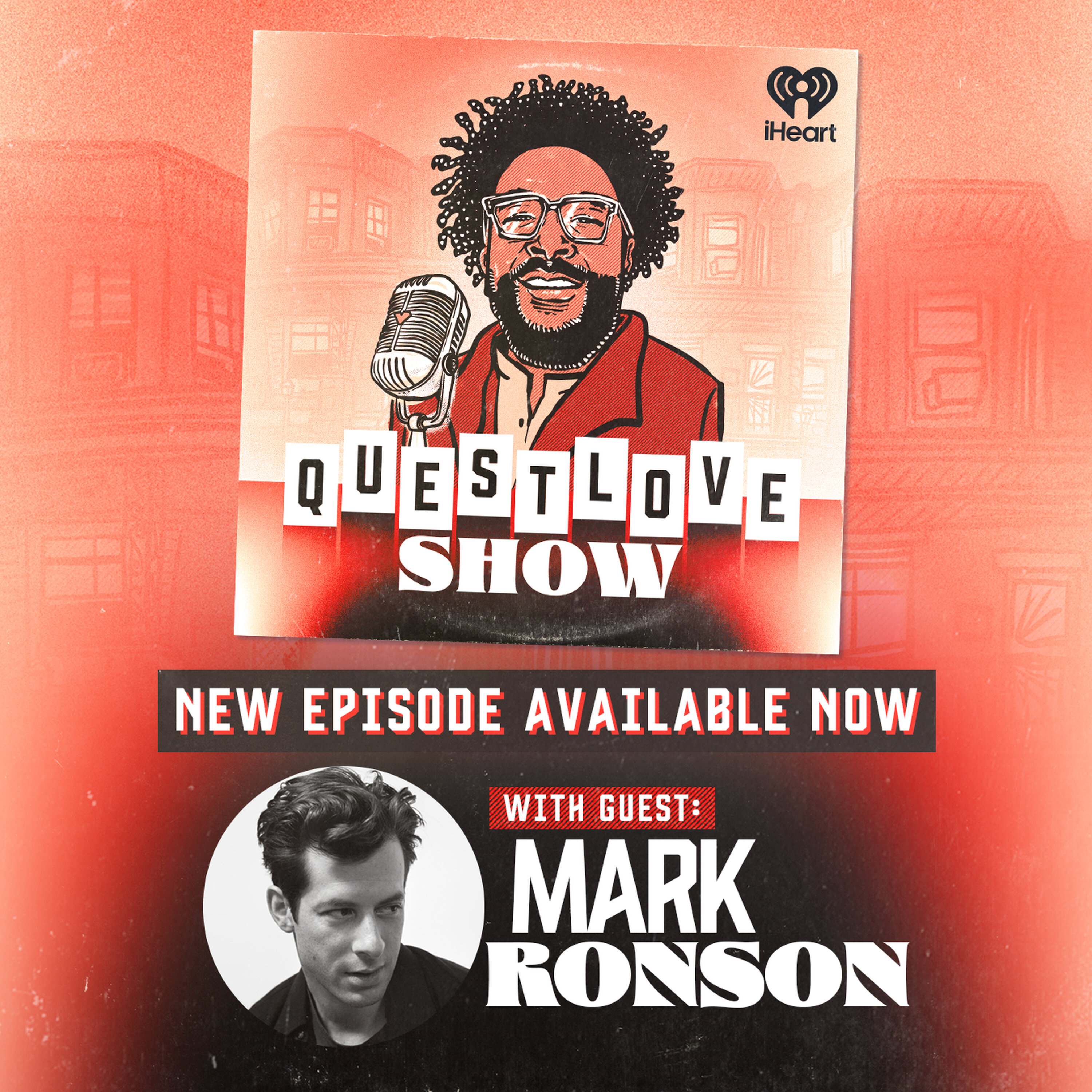Common & Pete Rock
Past QLS guests Common and Pete Rock return to the podcast together to celebrate their new album, "The Auditorium, Vol. 1." Common explains how a recent freestyle and a series of Hip-Hop 50th anniversary events reignited his passion for music-making, while Pete Rock reveals that even if the address has changed his basement studio remains an epicenter for creation. Questlove, who sequenced the new album, explains why the LP is a high mark for MC/producer collaboration. This conversation unpacks the new album, sheds light on what's to come, and gathers some friends for a fun, lighthearted catch-up.
00:00:00
Speaker 1: Quest Love Supreme is a production of iHeartRadio.
00:00:09
Speaker 2: Good People, part of People in the Place. But this is Quest Love Supreme, great episode today. I call it the Summit Meeting episode our two guests. Is definitely what the doctor ordered. And you always hear of titans meaning to collaborate, but they never do or sometimes titans get together, and in my opinion, the results is uh, you know, quasi diminish returns. I won't name any names, but I will say that's not the case for the project known as the Auditorium Volume one, which I believe I guess off the top, I can say that the Auditorium Volume one is it's a fifteen song journey that fits like a hand in glove, as if these two were collaborating all their lives, you know, the we're all soul beats, the witty lyricism. But it's also shows you how much they've matured in their three decades in the game, because this is probably, in my opinion, one of the most soulful offerings that Pete has offered. And you know, as far as Commons lyricism is concerned, you know, I love the fact that, in addition to his couples, you know he's adding in dashes of metaphysical talking there, which is of course, you know, it's the result of growing up, you know what I mean of adulting.
00:01:34
Speaker 1: That's what I say.
00:01:35
Speaker 2: I believe that this particular album will spark a renaissance because you know, there's also the Primo Nas album to come out soon everyone's waiting for. I hear all this talk about the Snoop and Dre album and how incredible it is, and of course Daylight is also collaborating with Primo and Pete.
00:01:54
Speaker 1: And not to be outdone.
00:01:56
Speaker 2: You know, my band has been sitting on the sidelines watching all this zactn't happening, and you know.
00:02:01
Speaker 3: It's made us so yeah, let's go.
00:02:05
Speaker 2: Oh, I will say it is made to reek Into wrote seven songs in one day.
00:02:10
Speaker 1: We have not done that since our second album. This is not about us.
00:02:13
Speaker 2: This is about our guest today, welcome Common p Rock two Supreme Beats.
00:02:21
Speaker 4: Can I just say, I know it's not about that today, but it sounds like the fiftieth has birthed a lot, right, because I know A birthed y'all two.
00:02:29
Speaker 5: But those other projects that a Mire mentioned nose sound like that all happened.
00:02:33
Speaker 4: At the same time.
00:02:34
Speaker 6: Yeah, yeah, Well the fiftieth I can't say it birthed me and Pete, but it was like I heard Kareem Riggins that played me some peak beats like during the pandemic, and I was like, man, I gotta get out with Pete. So I reached out to him and he was We was connected. But I will say that the fiftieth just made me realize how much people love this culture and it is really alive. It's for people like what I Miya said, it's people that come out with stuff and we don't say all that ain't that ain't what we like or whatever Peter say it in in life. For sure, Pete don't play, but cats, you know, didn't come out and say, man, we really really looking for the hip hop that we loved.
00:03:16
Speaker 3: But the fifty did that.
00:03:18
Speaker 6: It kind of just reinvigorated and like recharged and just kind of made me remember how much I loved this music.
00:03:26
Speaker 3: So it was like Pete was, it was divine timing. As far as I'm concerned, Pete, can you.
00:03:31
Speaker 4: Talk about I feel like I want to hear more from you when it comes to the fiftieth two and what that meant for you in that journey of last year.
00:03:37
Speaker 7: I mean for me, it was great because I have so much experience and before I even started doing music and being successful with that, I had so much early experience, you know, in hip hop. So for the fiftieth to come, the celebration was so like deeply loved. And I'm the type of person that that's so dedicated to what I do because I love it passionately, you know what I mean. And so everything that came with the fiftieth celebration, you know, afterwards, being calm and hooked up and here we are today and we made this album and it's a great, great album, and I think it will inspire people for sure.
00:04:25
Speaker 2: Before hip hop, the idea of a young person having an opinion or a point of view, you know, as kids were often taught to speak when spoken to, mind's your business, not have an opinion.
00:04:42
Speaker 1: And you know a lot of that is not just like you know parents who in the finger thing.
00:04:49
Speaker 2: You know, a lot of that is just post emit till trauma, like not draw attention to yourself so that you don't get killed or hurt.
00:04:57
Speaker 1: And then hip hop comes along.
00:05:00
Speaker 2: Suddenly the opinions of a teenager, the opinions of a young person matters, and suddenly, you know, we saw this ass like a young man's game, like kids, you know what I mean, like if you're between seventeen and thirty six when you say matters. Even though I put hip hop in the five year timeline in my book, I feel like we're the first generation in hip hop that will be able to define adulting in a way that won't seem like an eye roll or an eye sore, you know, because there's nothing more than watching like your longtime favorites try to get back in the game, and no, this is like all types of music, all genres of music, you know.
00:05:52
Speaker 1: You know, I've been very vocal about my princes opinions on the internet, So.
00:05:57
Speaker 2: That's an example of like, okay, well he rides to the level where you know those first ten years where everything was unbeatable. You know, I've had opinions on that, but I will say that I think this album is a great example of how to be.
00:06:15
Speaker 1: Yourself and still sound like fresh. You know, I commend to both of you.
00:06:24
Speaker 4: It was an answer back to what Andre said about there's nothing else to talk about. I was like, rash found all this stuff. I mean, what are you saying?
00:06:30
Speaker 6: Like, well, you know I love Dre three Thoullars. Yeah, but everybody is you know where they are. It's times in rap where I was like, man, what am I going to say? But then I just got sparked.
00:06:41
Speaker 2: Man.
00:06:42
Speaker 3: I mean it's like to be honest.
00:06:43
Speaker 6: Tarik is one of the people that like consistently reminds me that, man, this is infinite. Like he said something to me at the Ruth's Picnic ten years ago. I was like, man, I've been stuck. He was like, Nigga just rap, man. He was like, you didn't put all these years in just rap. That always stuck with me. But I mean, I think what you said is super important. Like you know, for years we have been like just for survival reasons from you know, the slave trauma just taught to be like okay, not say too much. And but hip hop gave us that that thing to say, like like hip hop for me, I mean, I guess for all of us gave us a way to find and express ourselves in ways.
00:07:25
Speaker 3: Like I was, I'm saying things in rap that I even don't even know. I felt.
00:07:30
Speaker 6: It's almost like my own therapy. Sometimes when I hear my songs, I'm like, man, I said that, I feel that. And it also gave me my Muhammad Ali, my way to be Muhammad Ali. Muhammad Ali was always one of my heroes because man, he was just speaking like I'm bold, I'm beautiful, I'm black. It was like speaking things into existence, and he had a higher purpose. And I was like, man, that's what rap started to do for me as I started to find myself. But I want to say that what you're saying about growing older, it was it was a scary thought. It first to be like, man, what am I gonna do in my thirties and forties, Like that's what I used to think. And we just didn't know because we didn't We are that generation. And thank god, some of the things that I was just looking at all of us, I was like, man, we great. I'm grateful that we had some of the things that our parents taught us. But we discovered new things, whether it's eating healthy, whether it's therapy, whether it's you know, just meditation, just all these new.
00:08:24
Speaker 4: Things rediscovered and acted like it was new because all that stuff you just mentioned, there you go.
00:08:30
Speaker 6: There, you go that is very true, Like you could probably go to ancient comedic things and we knew these things. So so that being said, rediscovering it, but the fact that we applying that allows us to like stay like not just young, because it's like, now, hey, I'm fifty two years old, but I still like spirit is young. I'm taking care of myself and I'm also seeking to grow as an artist. That's one thing I kind of want to ask p and you I'm here, Like when I heard peats beats, I'm.
00:08:59
Speaker 3: Here, you listen.
00:09:00
Speaker 6: We both know that it could be producers that have come from different eras a sound is in that era, right, I heard piece beats.
00:09:09
Speaker 3: I was like this, dude, is this is new?
00:09:13
Speaker 7: This is like I don't like new pell reinvention, Pete.
00:09:18
Speaker 6: How did you get to that point and not stay in that era of like, Okay, I'm from that era and I know what good is to me.
00:09:28
Speaker 3: But to create like a sound and still feels fresh and new, you know.
00:09:33
Speaker 2: Part of me kind of wanted to hear one just rhyming with biz reminder, like I was waiting for it, like does that sound like gonna happen?
00:09:40
Speaker 3: Is it gonna happen?
00:09:43
Speaker 7: I just kind of listened to all the new artists and what they're doing and kind of like said, okay, you know, let me step my game, hug. You know, I'm like a band member, conductor, slash, you know, funk dude in hip hop. Right, So I just kind of added that with what they like, and then came with some of the aura of the nineties and some of what I do and something a little different from mixed in.
00:10:10
Speaker 3: You know what I'm saying.
00:10:11
Speaker 2: Well, one, okay, let me ask the questions so I don't wake up the sleeping bear in the cave. From a legal standpoint, from one to ten, how much of a nightmare was it to bring this album to the public.
00:10:31
Speaker 1: From a musical standpoint, that means so much cool?
00:10:34
Speaker 2: Okay, So here's it all right, all right, let me bring it down for year without so the thing that makes this album special there's a period starting in ninety six ninety seven in which like, first, I mean the idea of chopping when you hear like, uh, producers like chopping and flipping stuff.
00:10:56
Speaker 1: Mostly, I would say that flipping and check and was kind of a way to really be creative.
00:11:04
Speaker 2: In other words, like okay, hey, remember that old James Brown sample that you've heard time and time again from this rapper and that rapper, and this rapper and that rapp and this rapper.
00:11:13
Speaker 1: Well, I'm going to present it and jumble it up and reinvent it.
00:11:19
Speaker 2: And as at first it was like for sport, but then I realized after ninety seven, it's almost for survival. Because sometimes think thing of like what gospel music was to our ancestors, like to them, it is gospel music, but to us it was GPS instructions on how to get freedom. So a lot of our producer titans who made their name in what we call a four bar loop, you know, in other words, I'm going to take these six seconds of a song and build the song on top of that, suddenly they were forced to find other means to make music because the clearance nightmare of it all just became.
00:12:06
Speaker 1: Too much to deal with.
00:12:07
Speaker 2: So a lot of our beloved producers of the Pete Rock Ilk, of the Large Professor Ilk, of the Tippin' aali ilk, you know, who rely on loops, were sort of put in a position where they had to Some people made the adjustment, like Primo has made the art of what we call stabbing. Stabbing is if you take a part of a song and it's that song is like an exclamation point or a musical atomnopia, you know what I mean, Like taking a noise where you don't know where it came from. Very few producers can do that all day. But for a lot of producers who made their name in loops. The first thing I noticed in this album was like, holy shit, Like some of these songs have two or three loops on top, which can be quasi costly or whatever. So like, how did it feel for you, Pete, to actually just make a collection of music that was created in a non defensive way, Like what was it like just to be in that mind state of bringing the loop back?
00:13:13
Speaker 7: Well, I exercised my air a whole lot just playing records, you know what I'm saying, just playing them over and over and over again, and then just having that passion to wanting to make music right because I was a fan of Marley Maul and Nowie T and Teddy and I wanted to always know who was the man behind the music, you know what I'm saying, who was the guy making it happen.
00:13:36
Speaker 3: And so with that passion and ambition.
00:13:39
Speaker 7: You know, I think that drove me to kind of like, you know, make the loop and the drums match the way I would want it, you know what I'm saying. And it worked out, you know what I'm saying. It worked out for me, and I just kept practicing that, kept practicing that, and then boom, all of a sudden, I got this, you know what I'm saying. And that's how it happened for me. And then everything that came to me was easy for me to do.
00:14:06
Speaker 2: You know, so even in your spare time, like by the time I got the game, not even by the time I got the game, but by the time I like got my first twelve hundred or whatever, you know, it was already, like I mean, by the time I really felt like, Okay, I'm making beats whatever, it was like ninety eight ninety nine.
00:14:22
Speaker 1: So it's you know, you Dilla pretty much like y'all were chopping shit.
00:14:26
Speaker 2: So my entry was the chopping game and really relying on the musicianship or the roots to fill in the blinks.
00:14:34
Speaker 7: The chopping game came like mid hip hop right because now we was playing with it so much, we will find in ways that sounded iller you know when you did it either backwards or just did it like a jigs or a puzzle and you just played around with this. Oh oh oh, it just happened like that, you know. And today with all equipment they got, now it's easier and much faster. But like in the twelve hundred days, it was chops, right, it was chops. But we would take the best parts that we knew would match and just rock with those, you know what I'm saying.
00:15:13
Speaker 2: So what is your preferred method of like building your own instruments or the method of letting loops play out.
00:15:22
Speaker 3: That's kind of what we was doing, you know, but we was just doing it with the drum machine. Man. I know how to play bass with the drum machine really good. You know. I know how to mock records really good.
00:15:35
Speaker 7: You know that's come from my ear and exercising all the records I heard in my life, and you know, learned how to mock that, you know what I'm saying. With the whether it was with the twelve or the NPC, you know, I'm really good at that. But the guitar, I don't know how to play the bass guitar. I don't know how to play the guitar. But I definitely know it's just like it comes like pluses for me, man, how the bass go.
00:16:00
Speaker 4: This is when I remind our audience to go back in the QLs classics and listen to the Pete Rock episode.
00:16:06
Speaker 3: Get to know it, get to know God.
00:16:08
Speaker 1: Don't remind me of shut him down? Man, all right?
00:16:16
Speaker 2: So when Pete told the story of making public enemy shut him down, which the shortest version was, he overslept, he was late to the studio. He just looked on the floor and you know the four records that made that one remix, which that one remix?
00:16:33
Speaker 3: I don't believe it.
00:16:34
Speaker 2: Not only do I believe it, I've tested that theory, and once I did the research on other songs, I will say almost sixty percent of like the songs that have have changed our lives or whatever, they were all afterthoughts, Like seriously, when you when you said that, I thought about you. You basically said, you late to the studio, you saw four records on the floor, you picked it up through this in and and hair what y'all think? And it changed people's lives and what I realized. And Quincy Jones also makes this part of his thing. He has a thing called no paralysis through analysis. In other words, the more you overthink some shit, the more you get paralyzed. And you don't come up with results because you're overthinking it, whereas you just do it. And that's when you're in your natural state. And so suddenly, maybe like three weeks after that interview, I got to wrap to Little Steven, you know, guitarist of the East Street Band and you know, on the Sopranos, and he.
00:17:42
Speaker 1: Was telling me like he's obsessed with that theory.
00:17:44
Speaker 2: He's obsessed with songs that sold millions, that were made in under five minutes. And literally he he gave me a whole like glossary, Like he said, Theisley Brothers had like ten minutes left in the studio, they like spend the whole session on one song, and like, well we got ten minutes left for hey, let's do that church song and then suddenly shall gets burn or or I think they made tequila in like two minutes. Some of the biggest songs of our lives were just like do whatever one, two, three, four, and then like, h So that theory works.
00:18:21
Speaker 1: I've been testing that all day.
00:18:23
Speaker 7: You know, And that's I think I caught window of it in my version. And then meeting James Brown when I was seven years old, that probably did something.
00:18:32
Speaker 1: To me, right that that night tell me about did I no?
00:18:36
Speaker 3: Tell us? Oh?
00:18:38
Speaker 7: Me and my younger brother, My moms took us to a concert in New York and mam vernon a place called the Left Bank, and you know Lane Collins, I remember seeing her. I remember seeing Bobby Bird and the JBS, and you know, during the break of the show, you know, my mom said, come with me, and she took us backstage to meet James and he and he grabbed my hand and held it and said God bless you. And I damn they pissed on myself.
00:19:09
Speaker 3: Bro. My younger brother grab and you know, and and we we were in disbelief.
00:19:18
Speaker 1: You know, I think that affected you for life. Yo. That was like being annoyed. Look, wow, that's being annoyed, Yo.
00:19:27
Speaker 3: That's annoyed. That was that was the golden touch.
00:19:29
Speaker 6: But you know what that's the I mean when you were just talking about that feeling, that natural stuff and the music, I was just I can't help but think about James Brown and that that that's in fay Line. All that music is that and still to this day, like one of the lines that people say the most on the song I did, I hadn't even written the line and it's ticket tire tic a ticket to tie.
00:19:52
Speaker 3: And I'm like, what what the hell is this?
00:19:54
Speaker 6: Like like people say this to me like like I can wrap the whole light and they might not know something. They know some of the word talking about when I say that when I put that, I put that mic out to the crowd, they say that, it's like it just showed me that man, that that with that not overthinking it and just allowing it to come out is exactly what the music should be.
00:20:18
Speaker 3: And Pete, I was just.
00:20:19
Speaker 4: Gonna say, sit there for a second on that James Brown and that Failie tip too because of all these parallels, because this album, when listening to the different messages and the things that y'all are saying, it's.
00:20:29
Speaker 3: A lot of parallels.
00:20:30
Speaker 5: I was wondering if y'all realized, like how perfect it is to day to hear.
00:20:36
Speaker 4: That album, like to like y'all to day wow wow, like like Destiny, Hope, Faith Today.
00:20:45
Speaker 7: I think we just didn't even think about nothing but just doing what he liked. He picked beats he liked, and I was just like he had boom and he came back with a full song and we just said all right, we're gonna use this.
00:20:56
Speaker 3: We're gonna use this, We're gonna use this, and came together.
00:21:00
Speaker 1: Do you still have the basement?
00:21:02
Speaker 3: Yes, oh not in Mount Vernon, but it's up in Rockland now.
00:21:07
Speaker 1: Damn no more Mount Vernon basement.
00:21:10
Speaker 3: But it's still but it's still got the vibe. It got the vibe. Man. When I got out there, I.
00:21:15
Speaker 6: Was like, so you physically had to go to his cribbing, Yeah, physically into his crib and sat down and see first thing I seen in there.
00:21:23
Speaker 3: I was like, you know how certain things is just signs.
00:21:26
Speaker 6: I sat down, I saw all his records and he had his dealer book right there. It was like the deal of book was right there, and his dog Joy was chilling, and I was like, man, and people was playing beats and then they would play some records and I was like, man, this is what I always loved about making music, Like being in the midst. I mean, you know, we being in that studio and like so like to be around Pete and just be sitting there like just vibing, we started to talk about life. You know, that's how we form brother That's why we're brothers now to this day. Like I mean, because of what we formed in the studio and outside of the studio. But then when we in that space, it's like, man, that's when the music starts to become just beautiful because it's just like we going through the process.
00:22:15
Speaker 5: How many records y'all go through in this moment you went to the basement.
00:22:18
Speaker 3: When you went to peace, I was just playing a bunch of albums.
00:22:21
Speaker 7: I was like, I knew I had some dope records, and I was like pulling out the dopest ones I could find, and it was like playing it for him.
00:22:28
Speaker 3: Like, Yo, listen to this. He was like, Yo, you gotta hook that one up. And I play him another one. He was like, Yo, you gotta hook that one up. Play them another one the same ship, you know what I mean.
00:22:38
Speaker 6: Like, and then sometimes you just send me videos and you know, here be messing with a loop and it's funny because I wish I could see it. It's like you could see him bouncing to the beat on the problem. You see some of those right, And it's like I would hear it and be like, wow, this is this is amazing. He just gave me the music is a cool like ocean to do what I wanted to do. Like all the experiences that we experienced in life, I felt like, man, I'm free now. I ain't gotta like I'm referencing Steve. I'm referencing the six million dollar man now. I know, don't know young people know what the million dollar man is, but.
00:23:17
Speaker 3: Who cares?
00:23:18
Speaker 6: Like I'm like, I'm gonna be at MC and say the things and that's I mean, coming up doing resurrection at Kennibar Dollar. I wasn't thinking about like, man, does this person understand this?
00:23:28
Speaker 4: And that.
00:23:28
Speaker 6: I'm like, I'm referencing all this Chicago shit and just saying stuff that my homies noses. So I was like, man, let me be free and not try to try to cater to to anybody like and just write and peak the same way. Because at one point P said, yo, Ross, you know I could do if you want something else, I could give you something else, even a lot of music.
00:23:49
Speaker 3: I said, no, no, no, I want loops loops. A big risk, bro, but we got through it. We do.
00:23:56
Speaker 6: I want loops chops whatever you know, like we're doing samples, bro, like let's do what we do and like being our home life fell home.
00:24:03
Speaker 1: To me by the way, Rosh.
00:24:05
Speaker 2: One of my favorite apps on my iPhone is the inflation calculator. Today this six million dollar Man would actually be the thirty million, nine hundred and fifty eight thousand dollars man.
00:24:16
Speaker 1: So it's good to know if we do the reboot forty million dollar Man.
00:24:23
Speaker 4: Yeah, basically calendar apples to start there an inflating calendar app.
00:24:29
Speaker 1: Yeah.
00:24:29
Speaker 2: All the time I look at inflation calculators just to see what what the price differences was. Wait, Pete, so when we did the tonight show, you brought out your inner DiAngelo by pulling out your scusy device, which is something that I've not seen Stevens laugh.
00:24:51
Speaker 3: Believe how many of them I have? Bro?
00:24:54
Speaker 5: What's the song?
00:24:55
Speaker 6: Is that?
00:24:55
Speaker 1: The like a zip drive?
00:24:57
Speaker 2: Yees discusy zip drive like so basically like I could make an album in this iPhone of I want. That's how far like technology is advanced where I can make beats on my phone now crazy, But you know back in two thousand and two thousand and one, you would have to buy zip drives which only holds a little bit of information, and if you brought a scuzzy I mean that can can hold maybe maybe half a terrabyte, you know what I mean. I mean, of course, now on our mac Book pros, you can rule the world on your computer. But I wanted to know, like, what is your preferred method of creating joints? Like what did you use primarily on this album? The NPC two thousand XL So.
00:25:44
Speaker 1: You graduated to the two thousand XCEL.
00:25:45
Speaker 3: Yeah, I'm on the X Now.
00:25:47
Speaker 7: I'm on the new X standard with the stems and everything, and I'm still learning it. And I got some nice beats on it now, but I'm still learning it. You know, I want to get it mastered before I start doing so.
00:26:03
Speaker 2: I was going to say, because now it's to me, I think it's going to be a breathless race of the finish now that we have technology that will allow you to remove drums if you want to, or just take the baseline if you want to, because I know there's always like that one sample, like say your love for the Ohio players. You know, if you can find a way to sort of astract the Juni Marrison's ad libs off.
00:26:31
Speaker 1: Of song and just have the bass alone. And you know what I mean.
00:26:35
Speaker 7: Like, I'm gonna give you a great example of this, Fortunate the song on the Auditorium volume on song Fortunate We did.
00:26:46
Speaker 3: How I got to be was Brazilian record. Played it.
00:26:50
Speaker 7: Listen to a part where I heard some bass and some things going on. I said, imagine the vocals. So I put it in my laptop. Put it in my laptop. I got the stems on my on my Serado thing, and all I did was take the the vocal out and I got to beat.
00:27:07
Speaker 1: See, I don't feel alone now, see Steve, I'm not the only one.
00:27:10
Speaker 7: But but people wouldn't know where to loop it. So I looked at it. Yeah, I looped it in the right place and I was like, boom, wow, this is crazy. I had the singing going on in there. Then I took the singing out.
00:27:24
Speaker 5: And I was like, so, I screaming, okay, do another one.
00:27:28
Speaker 1: Look down. No, it's it's a game changer, yo.
00:27:32
Speaker 7: I was thinking, Oh, a lot of ship And I sent it to him and I used the drums everything in that loop, the drums.
00:27:41
Speaker 3: I just brought the drums out. That's the that's the racket, bro.
00:27:46
Speaker 2: That method is game changing where you know, I mean there's other you know, there's Ableton and all that stuff, but for me, like I just put the join in my serado.
00:27:56
Speaker 1: It's so old school. But all right.
00:27:58
Speaker 2: So I talked to the Beastie Boys once and I didn't realize if you listen to that entire Paul's Boutique album, they did zero programming. They literally, one by one they would perfectly loop a drum track as their first track.
00:28:17
Speaker 1: You know.
00:28:17
Speaker 2: Each song on Paul's Boutique was easily somewhere between eight to sometimes fifteen samples, you know, And I'm thinking they did it the regular way where they just put inside the drum machine and programmed it that way. Allah the Bomb Squad Nah, they literally would just take pieces all the records and loop them all together perfectly and then just auto edit it, which is the wildest way, in my opinion, to make an album.
00:28:43
Speaker 3: But you know, it can be done. It could be done. I've seen it too.
00:28:49
Speaker 1: It could be done. So Rash I wanted to ask you, so there's a point for the roots.
00:28:54
Speaker 2: In twenty ten, Rich challenged us to make what he called the Midlife crisis record.
00:29:01
Speaker 1: Yeah, where you know, no rapper wants to talk about like being at.
00:29:08
Speaker 2: A crossroads in their life or you know, the feeling of growing up or anything that would even remotely remind your audience that I'm not a twenty year old anymore.
00:29:20
Speaker 3: Yeah.
00:29:21
Speaker 2: Lyrically, how like, how did you wrestle with what exactly you wanted to bring across.
00:29:28
Speaker 1: On the album in terms of your themes? And as Laia mentioned on so many people.
00:29:36
Speaker 3: This was one of the albums I had the least wrestling to do.
00:29:40
Speaker 6: And I think the freedom came about because once again, like being at the four tour and seeing like a stadium full of people, I'm like, man, it's people out there that want this. And also I was also like I did a couple I did a freestyle on on the la Leakers, and I got more calls about that any album I put out in the past ten years. So I was like, my I mean, you know, and I part of my gauge, my research is when my homies called me.
00:30:09
Speaker 3: It reaches them, then you know it's real.
00:30:12
Speaker 6: That's when I know I'm doing something, Like they call me like yo ros that's dope, or they like a man, I might have to remind them I got something out, but when they really like something, they.
00:30:22
Speaker 1: Hit me up like, yo, So what do they say about this album?
00:30:26
Speaker 6: This is one of my best albums ever. Some said that it is my best and some was like, man, I can't believe you all made a classic in this era.
00:30:36
Speaker 3: But I mean, let's be clear.
00:30:39
Speaker 6: First, I want to give you yours, because man, you were the first person I sent the album to outside of me Pete and Jamie and people that was recording like basically, and I.
00:30:51
Speaker 1: Mean how hard it was to keep that secret?
00:30:53
Speaker 3: Yo.
00:30:54
Speaker 1: I remember literal least the first week he was like, hey, man, don't leave the ship and.
00:30:59
Speaker 3: What the we know?
00:31:01
Speaker 4: A mire?
00:31:01
Speaker 5: And it's okay, we know because.
00:31:05
Speaker 3: I'm you listen.
00:31:08
Speaker 6: I'm here is the best friend promo person you could ever have, meaning he ain't gonna let it lead to the public, but he go get into the right people. I saw that FaceTime you had with Preemo, like little snippets, but that got the buzz going.
00:31:29
Speaker 3: It ain't nothing like letting if I'm here feeling it. Yeah, but let me tell you the first thing, I'm here text me when he heard the album.
00:31:37
Speaker 6: But this is what first of all. I was sending it to him to listen to it because I want him to sequence the album. I want him to have that input. And and the first thing he said to me was, damn, I can't believe y'all did this ship like I was. He was like, yo, y'all, he was like, I got total confidence and people, right, I got total confidence in you. But this is beyond what I thought it's because.
00:32:02
Speaker 5: What's the part of me? Is it because of the label?
00:32:04
Speaker 4: Because I was curious too, like the label part of it, because I mean, I know as an artist, you know, everybody got their opinions on your ship. But it seems like this time y'all didn't have to worry about that part of it.
00:32:15
Speaker 1: Right, Yeah, I don't, man.
00:32:19
Speaker 2: See the last time I offered my two cents about a hip hop opinion, that shit started trending on Twitter. Okay, So wait, I will say this because I think that they even agree with it.
00:32:31
Speaker 1: All right, another no, no, no, listen Okay.
00:32:38
Speaker 2: In the case of Steel Dre, that's a great example of jay Z and Doctor Dre working together.
00:32:44
Speaker 1: However, jay Z and Doctor Dre have worked three or four times together, and I don't know if it's the pressure. It's almost like an All Star game.
00:32:55
Speaker 2: It's it's it's like if you're gonna have Kobe and Jordan ann Iverson and Magic Johnson and Shack.
00:33:04
Speaker 1: I mean, I'm just randomly naming. I'm surprised Steve's not starting pressed now. I'm impressed.
00:33:10
Speaker 3: Thank you.
00:33:12
Speaker 1: All day, keep going, thank you anyway. I love the sports anyway.
00:33:16
Speaker 2: The point was that their collaborations on Kingdom come and it didn't yield the magic that it should have yielded. But I think that's almost with every artist, Like when Stevie Wonder and Michael Jackson got together on the Bad album that wound up being the.
00:33:36
Speaker 3: Exactly right right.
00:33:42
Speaker 2: I feel like it's too much pressure when two gods get together and you don't know because it's never gonna be fifty to fifty. It's going to be either sixty forty or seventy thirty, Like you don't know what it's going to be. And for me, this album, like I was just shocked that y'all probably got fifty to fifty on it, like m to me.
00:34:01
Speaker 1: It it established and and and reinvented Pete wait, I gotta ask you ro did electronica have any influence on your floor with that.
00:34:12
Speaker 6: Let me say this, Jay Electronica has had some influence on me because he's dope, so it is inspired. I get inspired, but I hadn't. I wasn't listening to him. It was strictly that beat and I was just having fun. I was actually riding from I was riding from Peace Kriby. It just gave me the beat and then and then you know, I was just riding home and them rhymes came.
00:34:31
Speaker 3: To me like she knew me from the city. She knew I was fitty, she had power and maybe some sense like citty, let's go up.
00:34:40
Speaker 1: But that's what I'm saying.
00:34:41
Speaker 2: Like any other MC would have just smothered the track with as much wordplay, the flex. But the fact that you did couplets and only asked about Jay Electronica because a lot on his album that he released in the Pandemic, he would allow himself to do a couplet like couplets and spaces and all that stuff, which usually mcs MCS, especially rock him, influence them. Seeds got to like make sure they pack in every ounce of space with words.
00:35:17
Speaker 1: And the fact that you were just playful with it that to means the magic place, man, So.
00:35:22
Speaker 6: Listen, I gotta say all this experience like for me, like doing the like water for Chopper's doing the electric circuits, doing universal mind, like wrapping over different type of things. I'm learning and I'm seeking. I want to be better, so I don't like over wrapping stuff. I know at times I can overwrap, like and U MC's getting caught up in like I gotta be cool g on this shit.
00:35:47
Speaker 3: So let me you know.
00:35:48
Speaker 6: But I'm I'd rather be just an instrument. I'd rather be Maurice White or Q Tip or you know, like I want to be an instrument to it. Like like so I just now I just try to just allow the music to inspire me and get me going, you know. I mean I did the music. The music always inspire me. But now I think because of certain experienses, I.
00:36:10
Speaker 3: Know where the one is. I know where the one is.
00:36:12
Speaker 1: I mean, hey, I'm here, guess what four songs? You don't know where the one is. But I'll let that go.
00:36:27
Speaker 3: Where the one is at. That's the thing I'm saying.
00:36:33
Speaker 7: Me and the men know where the one is at. You don't know a big deal to teach somebody where it's really at. Like I just wanted to show him where it was really at so he gets a past you know.
00:36:44
Speaker 3: I'm I'm there. We had like, we had that song called there is a Guy That's on the on the album.
00:36:52
Speaker 6: I wrapped in a different space and Pete after a while, I was like, bro, that ain't where the rhyme should be.
00:36:59
Speaker 3: And I'm was like, bro, this is where it's supposed to be. Me and PJ.
00:37:03
Speaker 6: PJ wrote the hook. This girl PJ, who was incredible, she this is what I said, this is where it is. And he was like, bro, I made the beat. I'm from the school of James Brown. I know where to wan.
00:37:16
Speaker 3: Yo. We was going back and forth, Man, want this song? Do you come in?
00:37:23
Speaker 5: Does he come in?
00:37:24
Speaker 4: On the one?
00:37:25
Speaker 7: He didn't come in and on the one at first at first, but you fixed it so that, yeah, I can understand because he's not the only one that I've dealt with that come in where they come in. And sometimes that's cool when you just make anything type of beat and you just like I just just just go just eat it. But at this this is our album. So I'm like, yo, hey, go to one right here, it's right here. He's like, nah, I wrote it like this. I'm like, but that's not We're the one for.
00:37:55
Speaker 3: Where it's that.
00:37:56
Speaker 7: So then it went A couple of days went by, a couple of days went by, say, yo, you know what, I'm gonna try it. Chill away. I'm gonna try it chill away. Then he sent it back the way it's supposed to be, and I said, they go to the song right.
00:38:07
Speaker 5: There, And he said, and you said, I mean, I guess that's good.
00:38:12
Speaker 3: I was like, I said, you don't you know what? You lived with it. You have to live right. I did have to live with it.
00:38:18
Speaker 6: But there's been many sessions where imre and James is playing and they was like, rash, the one is here, man.
00:38:24
Speaker 3: Don't be.
00:38:27
Speaker 5: You would have learned that on that Electric Circus is something.
00:38:29
Speaker 1: No, don't give James them props. James on know where the one is either, So yes, yo ps.
00:38:36
Speaker 4: I just want to say I'm glad y'all said the title of that song because shout out to a girl. I didn't know what accent she was saying God in, But y'all know that's an interesting way of saying there is a there's a business.
00:38:46
Speaker 6: Yeah, that's some real. That's some real Chicago slash Southern slash church. God, there's a god.
00:38:57
Speaker 3: God.
00:38:57
Speaker 5: I knew y'all did that purposely. I was like, y'all, y'all made her say, y'all say it like you say it at home.
00:39:02
Speaker 3: Okay, it was the south Side Chicago. Yeah, that's what I'm.
00:39:06
Speaker 5: Saying, you say it at home.
00:39:09
Speaker 2: M So the album title, why did you give it the title the auditorium? And also what was the significance behind using King's Theater in BK as your album cover?
00:39:22
Speaker 6: Well, auditorium listening, I was watching Smokey Robinson in the interview and he was talking about how he first wrote his first song and how it was no music. I mean, it was just music, it was no lyrics, and they was about to perform and they was in the auditorium and he was like asked his teacher could he write some words to it.
00:39:41
Speaker 3: That's how he began songwriting.
00:39:42
Speaker 6: And I was thinking, like, man, auditorium, Like that's where I started my first Like I got my first performance off too, like I was. It was breakdancing, but it was in my school auditorium and that's where I was part of a play at and then later that day I rode past past the placed this.
00:40:00
Speaker 3: Sit It was called auditorium, and I was like something about that word.
00:40:04
Speaker 6: I just liked, Like when I when I'm choosing titles, I like the sonically first, Like I mean how they sound like like water for chocolate or be like I wanted to. I like titles to sound like books sometimes too, like, So I was like, the auditorium, Ah, that could be dope. I kind of felt like it would be a place where we would invite people to our auditorium musically, like just so they can enjoy our art. But listen, the story goes, we get this title. Pete does his ad libs on Dreaming, and I'm super geek, like, I'm like, I got Pete.
00:40:36
Speaker 3: Rock ad libs.
00:40:37
Speaker 6: This is amazing, right Like on a Dreaming he says the Auditorium twenty four the auditorium, So this is like I'm gonna say he love the title, but he knew that was the title of the album.
00:40:49
Speaker 3: Fast forward four months.
00:40:50
Speaker 6: Later, Pete calling, hey, man, I don't like the title the Auditorium no more. He said, Man, I don't think we can't call it the auditorial. I'm like, oh no, man, please.
00:41:06
Speaker 1: What did you want to call it?
00:41:08
Speaker 7: No, I can't say the titles because they're so dope somebody might steal it. But I had had a different title for it, and then, you know, we were going back and forth about the title, and then, you know, like the men we are, we just sat with it for a little bit and I saw his way in it, you know, and I said, you know what, as long as we could put volume one on the end of it so they'll know something more is coming.
00:41:33
Speaker 3: Rights.
00:41:34
Speaker 1: It worked out, though, You're not going to pull a haul on oas though, and never put out a part two. Yeah, exactly.
00:41:42
Speaker 5: How many records you already got on the part too? How many records put the part to you? I know y'all already got some.
00:41:46
Speaker 7: I can't be sitting on his music no more. So you know, I'm ready to give it to the world. But we already started dibbling and dabbling right now. He just sent me something today like ye to remind me Pete.
00:41:58
Speaker 2: I got I got a question now wanted to ask you, so premiere, actually let me hear it. I always wanted to know what do you do with the fail beats?
00:42:09
Speaker 3: Oh? You know what I mean?
00:42:11
Speaker 2: And Premiere has Like I asked him, like, do you sometimes, like you know, when you're driving, do you do you hear drill music or a trap joint and be like, all right, let me try to sit I'll see what I do.
00:42:25
Speaker 1: Yeah, So Premiere gave me six. He gave me six very un premiere sounding joints, like straight up like eight oweight, drum machines, keyboards like whatever whatever elements that makes a primo. He took away.
00:42:46
Speaker 2: And you know it's weird, like I would say that at least for them. Joints sounded like, you know, I'm a I'm a big, big, big Loosens fan, you know what I mean. So it came off more like his eight to eight joints sounded more like some loose and shit and so like for you to challenge yourself, do you ever like have a thing where it's like, all right, well let me learn, Like have you ever said, all right, let me see if I can make trap ord that sort of.
00:43:21
Speaker 1: Thing you have eight o eight beats and ship.
00:43:24
Speaker 3: Yeah.
00:43:24
Speaker 7: I used to play around in the crib all the time just to see, you know, not to you know, pinch, just to pinch myself to make sure like, you know, I can do what they're doing.
00:43:33
Speaker 3: It's it's as simple as cake.
00:43:36
Speaker 7: So I like to play around in the crib, and sometimes I'll play around to the point where I really make something, you know what I'm saying, Like, like I really make some fly shit and I'm like, yo, you know, trying to put it out or give it to somebody to here.
00:43:51
Speaker 2: Or so while I'm asking, do you think you'll ever make an avant garde, unpeat rock sounding album like a project?
00:43:59
Speaker 3: Well, I say a.
00:44:00
Speaker 7: Little bit of that, as like all the peastrumentals you ever heard, all the instrumental albums you ever heard, those are kind of not I wouldn't say failed beats, but just beats.
00:44:07
Speaker 3: That weren't used.
00:44:09
Speaker 1: Yeah, but there's still non factor beats.
00:44:12
Speaker 3: Yeah, you can still call him non factor.
00:44:13
Speaker 2: Yeah, but I'm talking about just like crazy shit, like five to four meters shit, or you know, using drums you would never ever use in this Like Okay, So for this new roots album, Ashley's Roads clip to Me, Yeah, if you take rock him out the factor, Yeah, Ashlete's roachs clip to Me was never a desirable break beat, even though it's a classic break beat Ashley's Roads clip is the drum break that we know is Peyton full, but it's also pm Dorn's breakbeat Emf's unbelievable like girl, you know it's true.
00:44:54
Speaker 7: One thing about I learned from Molly mal is how he his music to make it sound hella different. You know, they take in piece the president drums and make it sound totally different from the bridge. Right, it's ever beats for President. It sounds totally different from the bridge. They don't sound the same. You ever listen to that? You ever really listen to the difference?
00:45:17
Speaker 2: Yeah, And he's he's presented and peached the President in ways that just sound different.
00:45:23
Speaker 7: And that's what I learned from him, which is hella important for hip hop and for you know, producers to know is to like how to disguise your music.
00:45:32
Speaker 2: So what's what's the one drum break that you feel is the the mountain that has not been fully climbed yet in terms of like.
00:45:42
Speaker 1: Flipping or like for me, for all the for all the allure.
00:45:47
Speaker 3: I tell people that.
00:45:50
Speaker 2: Okay, well I'll ask you for all the legend and the allure that we credit funky drummer to me impeach the President is the most used beat because a piece of the President me is almost like meat and potatoes, like the basic elements, whereas Funky Drummer to me is almost like.
00:46:11
Speaker 1: It's sushi. It's well, depending on your palette. Yeah, it's high art, delicious food that is not for everybody.
00:46:20
Speaker 3: Right, right, you're right about You're right about that.
00:46:24
Speaker 2: So like, have you have you ever figured out a way Well, I'm about to ask you fake and Jax not even fake no, no, no, not even with the meats President. I was about to say with Funky Drummer, but I totally forgot about your first ep. You successfully flipped Funky Drummer. I forgot, Like you're the one person.
00:46:44
Speaker 1: That actually did it.
00:46:45
Speaker 3: Yep, just a snap.
00:46:46
Speaker 1: So yeah, like, for you, what's the one taboo break beat that you have yet to flip and be?
00:46:53
Speaker 3: Like?
00:46:53
Speaker 1: All right, I'm a damn.
00:46:55
Speaker 3: It's just such a choice. It's hard to just pick one, But I'm gonna.
00:46:58
Speaker 5: Pick one real hard with nobody else could do it, you see.
00:47:02
Speaker 1: Yeah, but even if he does it, he does it, like right, that's true, that's true break b I mean some of you wouldn't tell like boogie back or two thousand and one, or.
00:47:13
Speaker 7: I'll say boogie back, but then I also say substitution. Really yeah, yeah, but I mean just from like that's been used a lot too.
00:47:23
Speaker 1: It's been used a lot.
00:47:25
Speaker 2: I would figure that there's some other break that you know is your that you haven't climbed that mountain.
00:47:32
Speaker 5: Yet, But amir, is there one that you would like to hear?
00:47:35
Speaker 3: Maybe funkin delic all right?
00:47:38
Speaker 1: Good old music?
00:47:39
Speaker 7: This Connections album I used. I've been chopping that. I've been chopping good old music.
00:47:44
Speaker 3: Really yeah. If you listen to see.
00:47:46
Speaker 1: It's too much reverb on it for me to even consider.
00:47:49
Speaker 2: Like usually if a session is dry, then I feel like you can flip it on your own. But if it's so much reverb on there, Okay, yes, I know there's a lot of inside baseball speak on here.
00:47:59
Speaker 3: Sorry, I've been chopping that up. There's so many ways to do it, so.
00:48:03
Speaker 1: Damn okay, Pete.
00:48:10
Speaker 2: Before we wrap up tour wise, how are you guys doing the rest of this year?
00:48:15
Speaker 1: Like you're working on the tour.
00:48:18
Speaker 6: Yeah, we're going out on tour starting in late August. You know, we're gonna hit the Bluenow Festival and then we just touring the stage. We start with Robbing Allan and Napa.
00:48:31
Speaker 3: And what's so dope?
00:48:32
Speaker 6: We we had our first show in Brooklyn, but like summer stage in Brooklyn and Von Kings Yeah right yeah, and it was it was super dope because it's like we're get the rock to the classic joints. We were rocking new joints. But for me to be on stage and Pete rockets shut them down remix I love that, Rode love you know, jump around and created. We were going through joints man. So the tour it's gonna be crazy. I'm Pete also gonna be up on the on the stage with the empt doing doing some of it live. Yo.
00:49:05
Speaker 3: We're gonna yo. You know, DJ Dummy will be rocking, but Pete go out the drummer. See.
00:49:09
Speaker 6: We wanted to feel like the Basement by the way, I mean you you lit the idea up for the Jimmy Fallon.
00:49:14
Speaker 3: Bro. That joint came off so crazy for the tonight's show that I know.
00:49:19
Speaker 6: How many calls about that performance for uh when the Sun Shines again?
00:49:23
Speaker 3: Bro, that was like.
00:49:25
Speaker 1: I felt like y'all made that in the basement.
00:49:27
Speaker 3: You know what I'm saying shout out to my guy twammee too, who helped me make that my question.
00:49:35
Speaker 4: I don't know if this is dumpy, and I know people probably ask you this all the time, but I'm just going to add to it. So now you really in your bag and stuff, do you think about doing another Soul Survivor.
00:49:45
Speaker 7: Or Oh wow, I mean I would love to im that's in the works though. That's actually that's the beats are you know what I'm saying. So when when we're ready, I could present it to people and see what, you know, throw another one of people are down.
00:50:01
Speaker 6: I think it's the right time for just you, for the artist that's at that this level of the roots, I mean, playing me y'all stuff. I'm like, man, this stuff is phenomenal.
00:50:13
Speaker 5: There's a phenomenal roots stuff out there.
00:50:15
Speaker 1: Let me take some rash, all right, I place shit for rash. Let me tell you something.
00:50:20
Speaker 2: So I think between and yes, I do credit being your best promo guy, because literally the first people that got the first draft of yo, Like, I went into the room. It was Pizza Friday at thirty Rock. I went that room and I was like, yo, we are in trouble. If we don't get on the ball because the thing was, you know, we started when Richard died into twenty fourteen.
00:50:48
Speaker 3: I bless his soul. I bless his soul for real.
00:50:51
Speaker 2: Yeah, like that that froze me for like three years, and then like I created distractions like oh, I'll make a book, I'll do a movie the Pandemic.
00:51:01
Speaker 1: And then it was like ten years later and between me walking in.
00:51:07
Speaker 2: The room, I was like, yo, dog, you ain't gonna believe this, But I said, Ross and Pete like made the perfect summit meeting record, like no person's out signing the other person.
00:51:18
Speaker 3: Like everything everything.
00:51:21
Speaker 2: Yeah, and like y'all both brought out you know, it's like y'all wrote each other. And I was just like going off about it, and I could tell a planning to seed. But then after the Hollywood Bowl, I think after the Hollywood Bowl performance that we did the Picnic goes to the Hollywood Bowl thing, Yeah, I think that lit some under Tarik.
00:51:43
Speaker 1: And so now I mean I can I can.
00:51:45
Speaker 2: Say like in the last two weeks, you know, he's knocked off at least.
00:51:54
Speaker 5: At thirty rock two. This is good.
00:51:56
Speaker 2: I'm like, okay, okay, yeah, I mean back and do you want more days like recon write like six or seven songs in a setting.
00:52:08
Speaker 3: Woh wow.
00:52:09
Speaker 2: This album is definitely like it is not today's the first day, the first time.
00:52:14
Speaker 1: I'm saying, like Steve's my witness. It's probably what he's working on right now as I speak.
00:52:19
Speaker 3: He's the lightning in the bottle like that. Dude.
00:52:22
Speaker 5: Man, Yeah, so he's And that's this year or mayor you think you think twenty twenty four.
00:52:28
Speaker 2: Years exact date I want to release it, and it's not twenty twenty four, but it's it's a seminal twenty twenty five date that will make sense once it comes out.
00:52:42
Speaker 3: Yo. And one other thing before we go, I got it.
00:52:45
Speaker 6: Just once again say a mayor thank you brother for you gave us like this sequence, man, and that meant so much to this, to.
00:52:52
Speaker 5: This talk about place in the.
00:52:56
Speaker 6: Let me say that, like, like, first of all, let me let me say I have to be the person that's like, okay, I got Pete Rock producing this album. He is a producer, a ranger, right, so I also know I mirror, I know his mastery and what he does and as a producer, but also just in sequencing and all that, like I remember seeing some or so like, man, this is this dude is just brilliant and together.
00:53:24
Speaker 3: Man, this dude it ain't nobody like him.
00:53:26
Speaker 6: So I'm like when I said on the album and he responded the way he did, I was like, man, man, can you see He's like He's like, man, listen, I remember another thing he said. He said, this is already one of your best albums without me sequencing.
00:53:39
Speaker 3: Once one sequenced, I was like, this is gonna be amazing. Thank you so much, Thank you bro, thank you, no, thank you you guys, this is all you I don't even.
00:53:51
Speaker 5: Want to talk about sequence, and this album is all you want to talk about it.
00:53:53
Speaker 7: You want to because you have to realize how important sequence, sequence is and you're putting the records in the audience it is. Make it make sense, make it a life thing, like you know, like you could project it. You know what I'm saying, as as as you listening to it, where if you got to drive seven hours somewhere.
00:54:12
Speaker 3: You right about things, you.
00:54:13
Speaker 2: Know exactly now For me, you know, and part of the doing the work on myself and especially in the last four years of just like where I am now in my life.
00:54:24
Speaker 1: I'm more in tune to what's in here in my heart.
00:54:28
Speaker 2: And for me, I always felt like I had the gift of synesthesia, where if you hear a song or hear a melody, you instantly see colors and whatnot. And for me, when I sequence records, it's almost like a it's a color spectrum, like your brightest to your to your to your darkest to your brightest.
00:54:50
Speaker 1: And for me, like, I don't know that the album just spoke itself.
00:54:55
Speaker 2: It's weird though, because when you gave me the original I don't know if you just randomly handed me the songs in a particular order or if you just had them that way as a proposed secret. But it's so funny to me because day Dreaming was like almost to the end of the album, and it was almost like the six or seven song. When I heard it, suddenly I was like, oh, that's the first WHOA like to me, the first three seconds of that shit just sounded like like a Sumburst, like that sort of thing, and instantly I was like, all right, I now see it. And so once you have that one Sumburst there, it's like, what do I want to hear after that? And after that, and so that is what.
00:55:39
Speaker 6: Makes classic albums because if you got songs and they not put in the right order, that shit could it can The story ain't told.
00:55:47
Speaker 3: It's like a movie.
00:55:48
Speaker 6: And if you if you don't do the right sequence and of them you know edits and stuff. And I gotta say, man, one last thing on that is just that, Like Pete, I was super grateful that you was like into it, like you know, because it's hard, Like you're a producer and this is this is your project and.
00:56:05
Speaker 3: Through every so why not you know, want that with someone who knows how to do that?
00:56:09
Speaker 5: Was that hard to ask?
00:56:10
Speaker 3: Pete? When he came to me, I was immediately with the idea. Yeah, he was with it. He was with it.
00:56:16
Speaker 6: And then we just sorted through like figuring out okay yo, and then we got them interludes. And by the way, man shout out on the out show y'all did it too.
00:56:24
Speaker 3: I mean that man, people's like around that record, found that joint.
00:56:33
Speaker 7: I was like, oh that's what they did. Yeah, man, yeah, I felt I got the record.
00:56:42
Speaker 2: You know, everything from from shooting nuts. Man, this is an awesome records.
00:56:46
Speaker 3: Man.
00:56:47
Speaker 1: You two need to be commended me or can I just.
00:56:50
Speaker 4: Can I ask a question for Jake real quick on his note because I'm curious to know the answer about this because Jake feels like this is like the album that is going to if you care, like when all the awards, do y'all care and do y'all feel that?
00:57:04
Speaker 7: I mean, wow, I mean I'm still pinching myself that it's just since this album drop has just been go, go go, Okay.
00:57:12
Speaker 3: I'm tired.
00:57:14
Speaker 5: Yes, so that means yes, that means yes, Pete.
00:57:16
Speaker 3: Yes, let me tell you do I care?
00:57:19
Speaker 6: Yes, yes, and like to be recognized for for this music would be amazing, like when you put your heart and soul into it. The one thing I man just said that you go operating hard. One thing I know is Pete Rock came from the heart and soul that I came from the heart and soul. Men came from the heart. Our engineer was hard and so we like this.
00:57:41
Speaker 3: You got Jamie to do it, showed us yesterday.
00:57:45
Speaker 6: Jamie stopped being at the shows. Now it's like he hard and soul. That being said, we would love to be recognized in that way. That would be amazing, Like I ain't gonna front it would probably I probably be volunteers if to see Pete Rock up on that stage.
00:58:00
Speaker 5: Yes, well then yes for Pete to just get the it can happen.
00:58:04
Speaker 1: Pete Rock got the first chair at the tonight show.
00:58:08
Speaker 3: Yes, I never thought that was my first time and it's just unbelievable feeling. Man, Thank you.
00:58:15
Speaker 2: It's it's your time, man, it's your time. Y'all need to be applauded. Pete help. Thank you for helping com and find the one.
00:58:23
Speaker 3: Yes, now he knows where the one is.
00:58:27
Speaker 1: Now he knows where the One is.
00:58:29
Speaker 4: Ya.
00:58:29
Speaker 2: This is uh once again the incomparable Pete Rock and Common on a Quest Love Supreme on behalf of Laia on pay Bill and Sugar Steve Yo, this is Quest Love.
00:58:42
Speaker 1: This is a great episode. Thank you guys so much. Buy that album. Support the record, Stream the record. Okay.
00:58:49
Speaker 2: We often complain that, you know, we ain't getting the quality we deserve, and then we get it and then we neglect it. So support this record is important, all right, Stream this record like stream like you vote with your Dallas.
00:59:03
Speaker 1: That's all all right, y'all. Tust Love Supreme, se y'all next week.
00:59:07
Speaker 3: Thank you man. Thanks y'all that was fun.
00:59:10
Speaker 5: Hey, thank y'all for listening to qust Love Supreme.
00:59:14
Speaker 4: This podcast is hosted by an Afro, a mouth, a rapper, an engineer, and a man with too many jobs aka A mere Quest Love Thompson, Why You a Saint Clair?
00:59:23
Speaker 5: Fonteklemens Sugar, Steve Mandel and unpaid Bill Sherman.
00:59:27
Speaker 4: The executive producers who get paid the big bucks A mere Quest Love Thompson, Sean g and Brian Calhoun ask them for money. Produced by the people who do all the real work Britney Benjamin, Jake Payne and Yes, why You're Saint Clair? Edited by another person who does the real work, Alex Conroy and those who approved the real work.
00:59:48
Speaker 5: Produced for iHeart by Noel Brown West.
00:59:52
Speaker 1: Love Supreme is a production of iHeartRadio. For more podcasts from iHeart Radio, visit the iHeartRadio app, Apple Podcasts, or wherever you listen to your favorite shows.
















